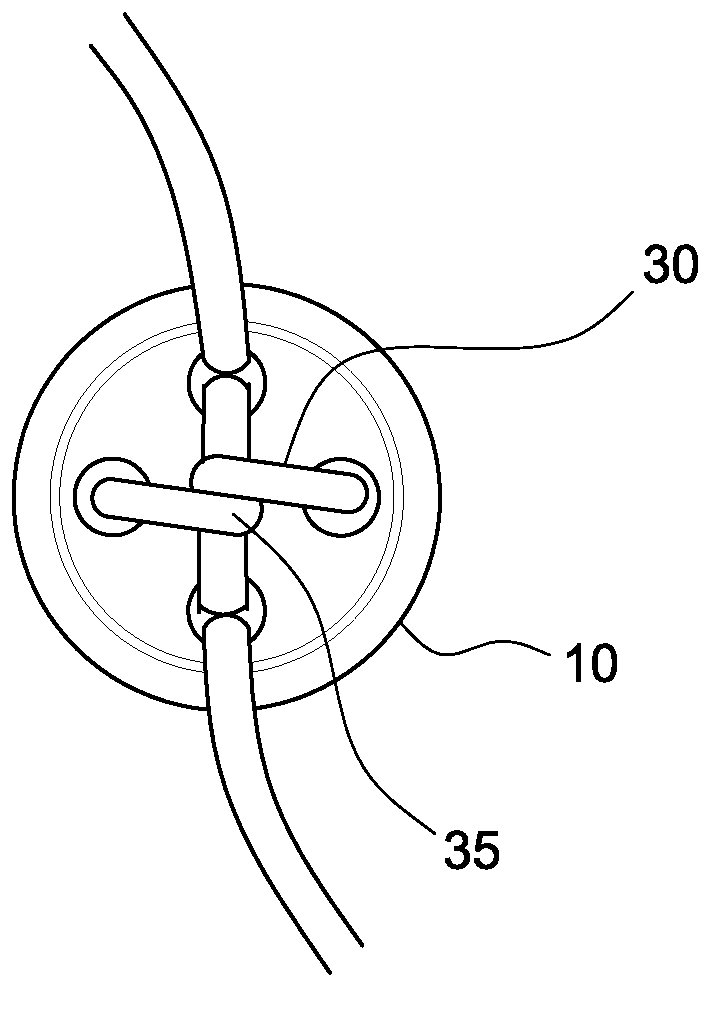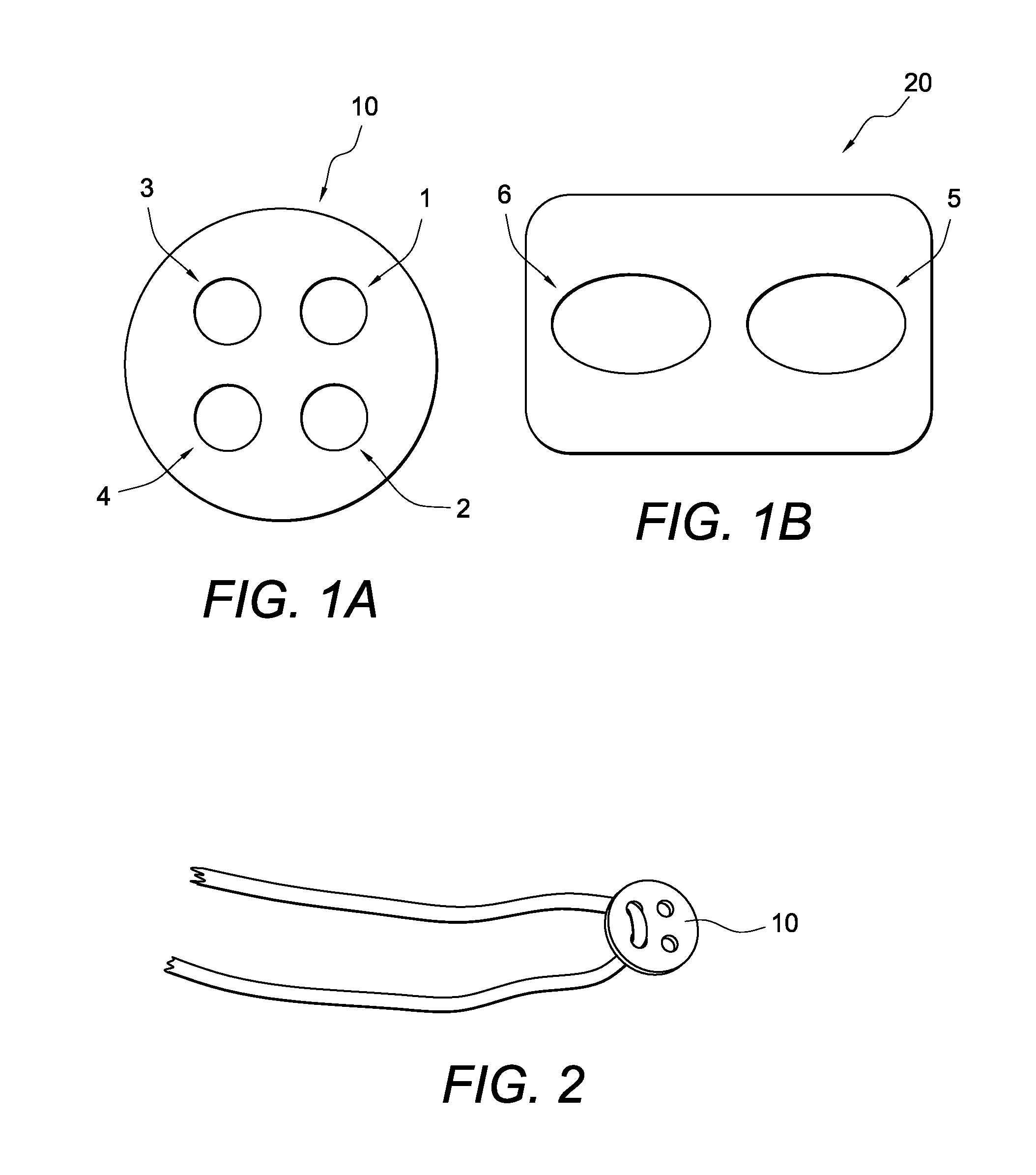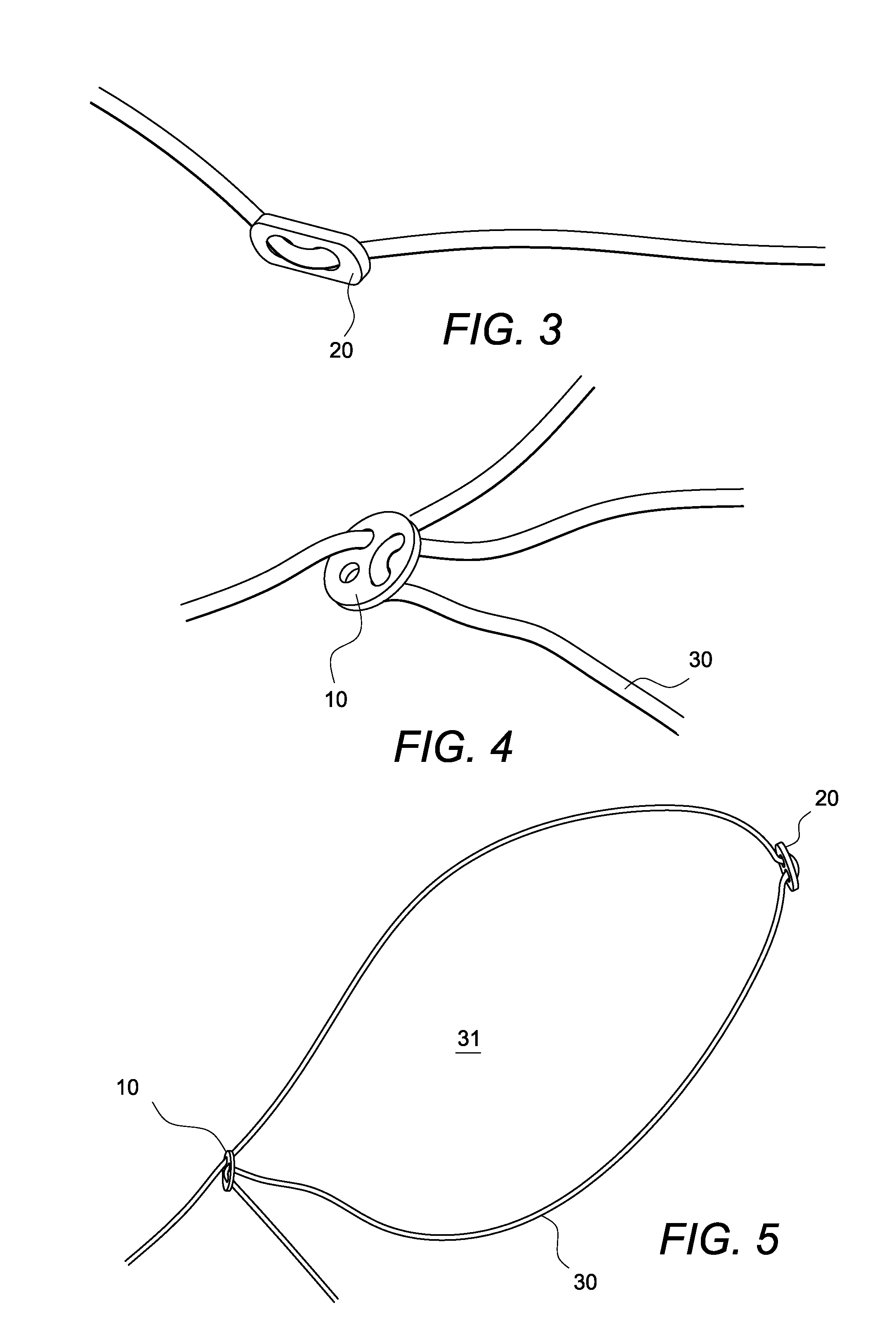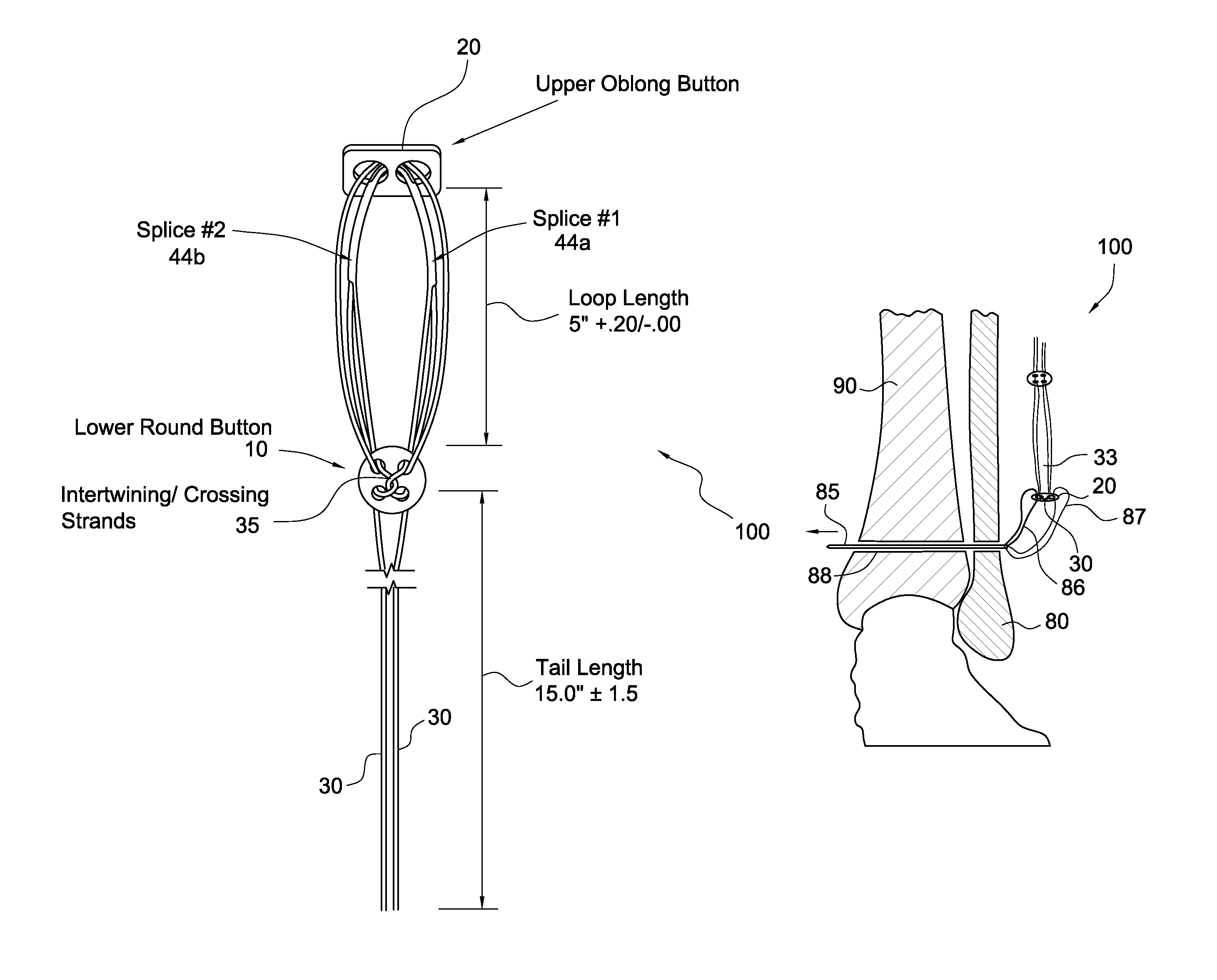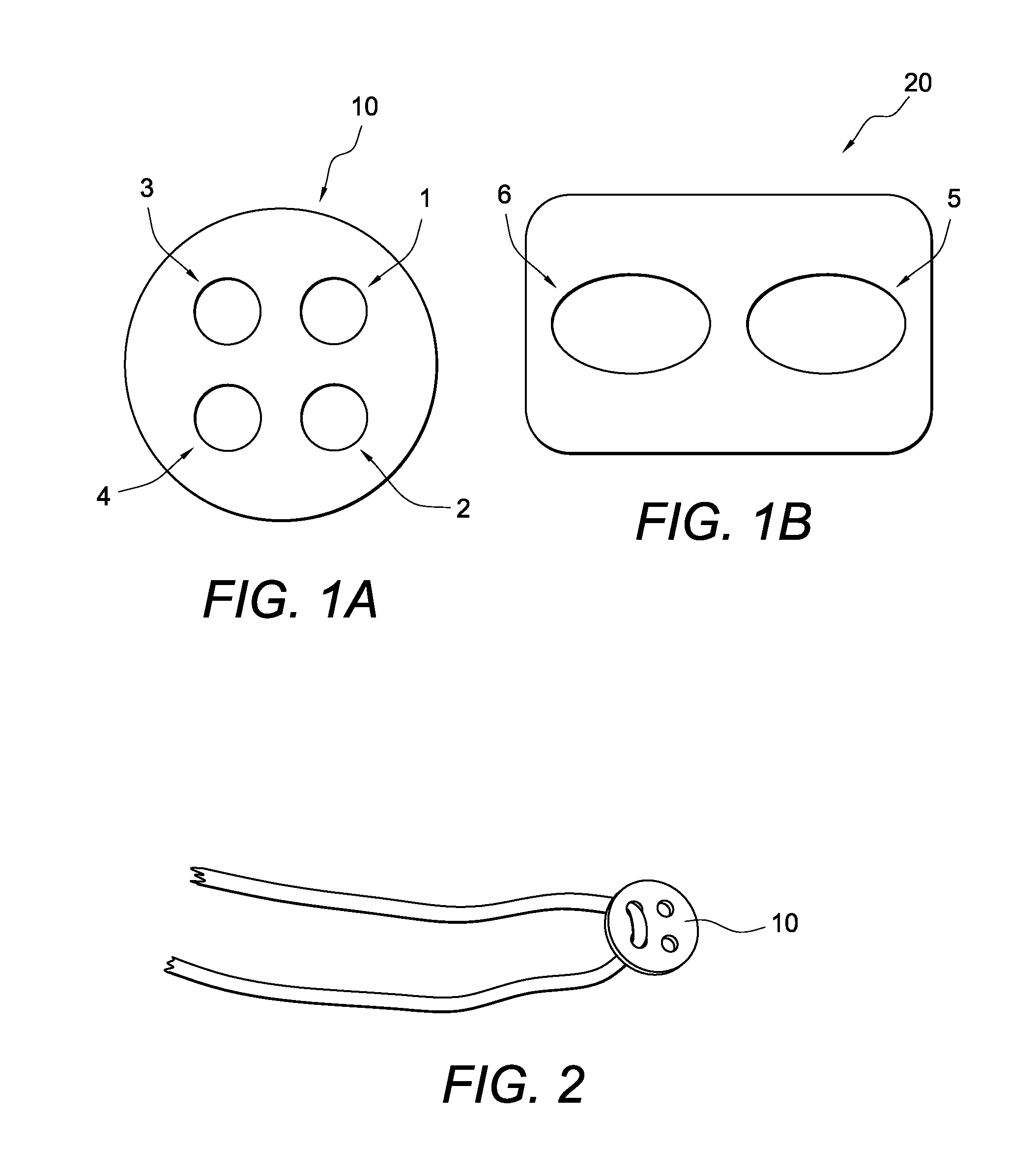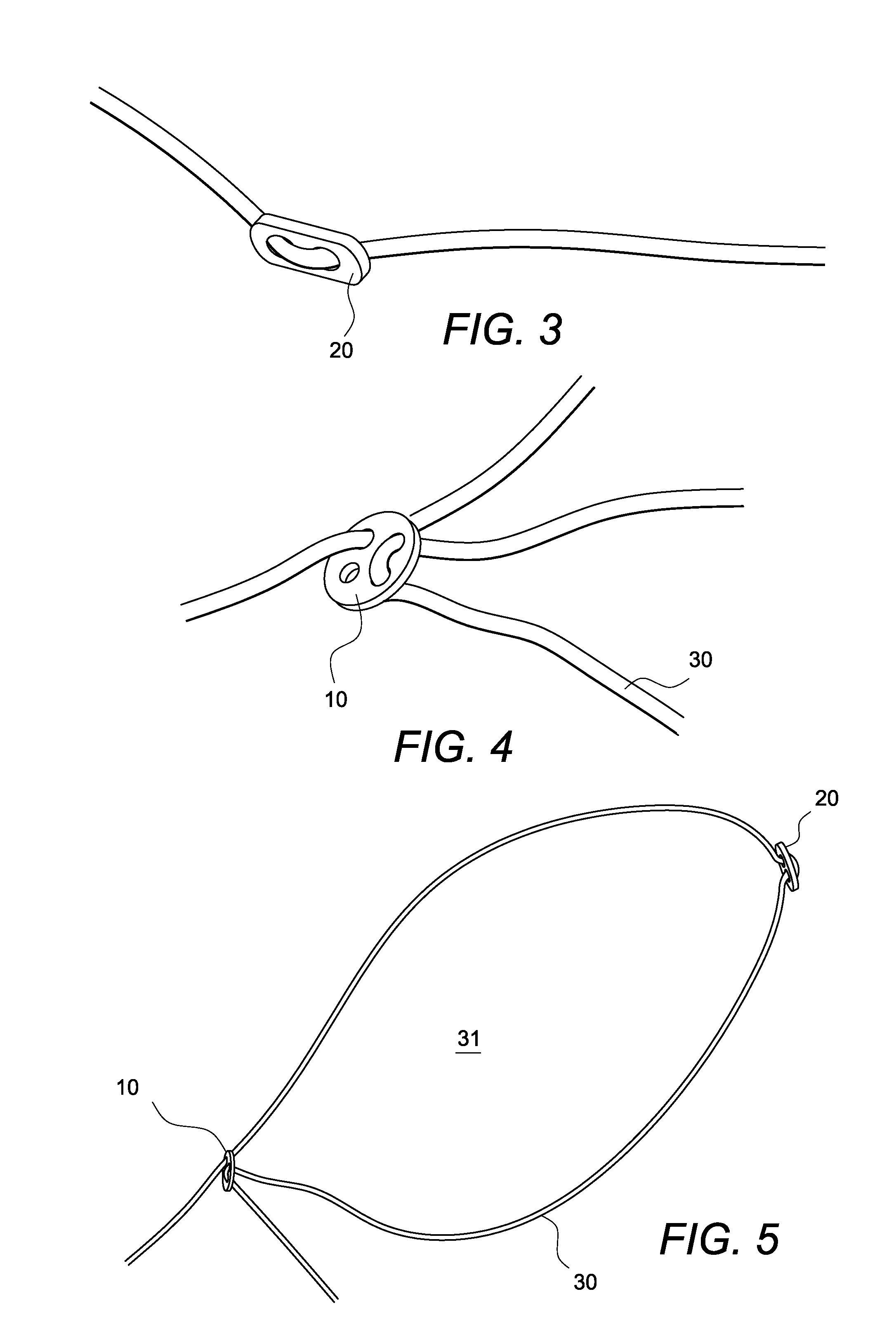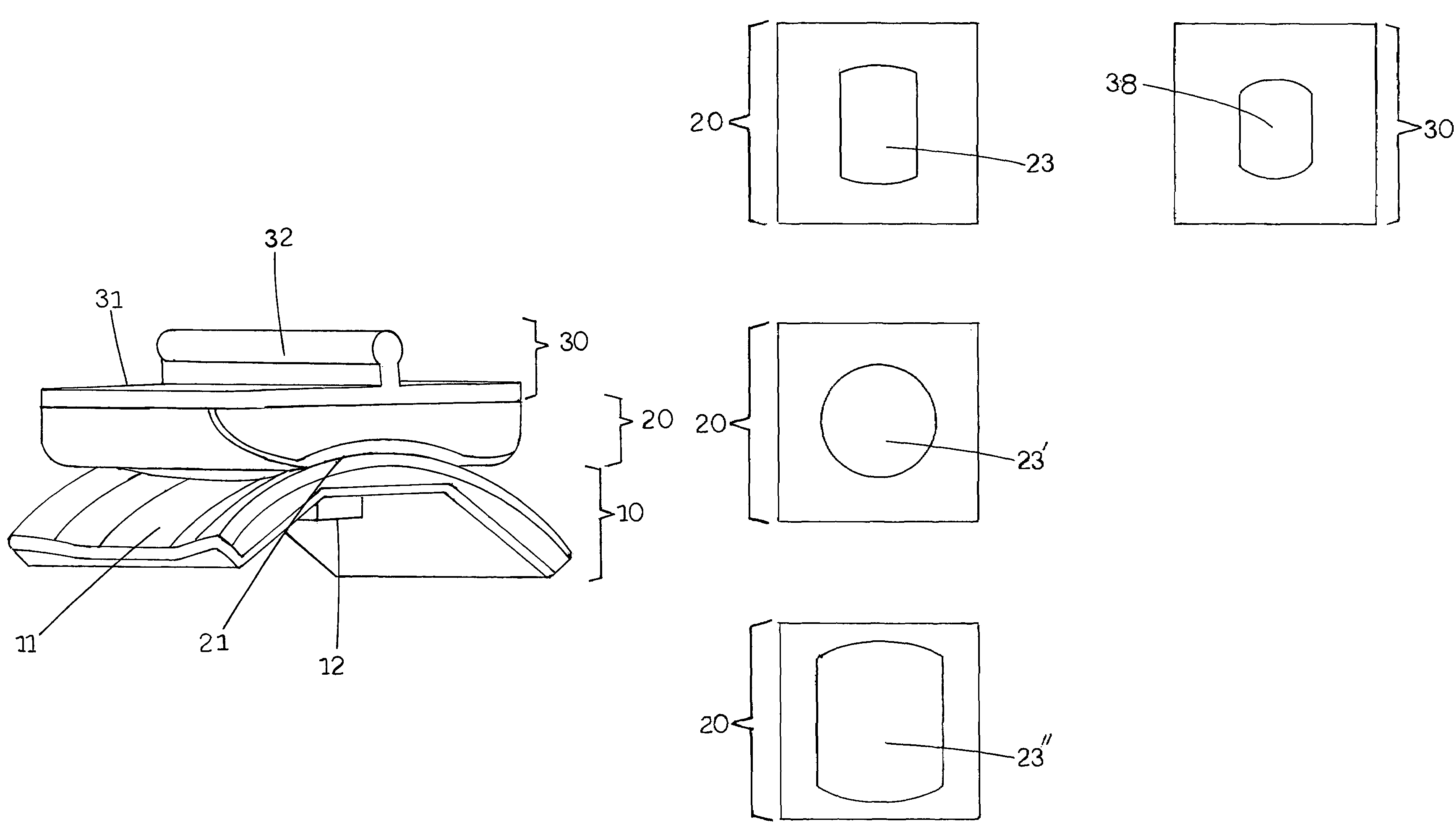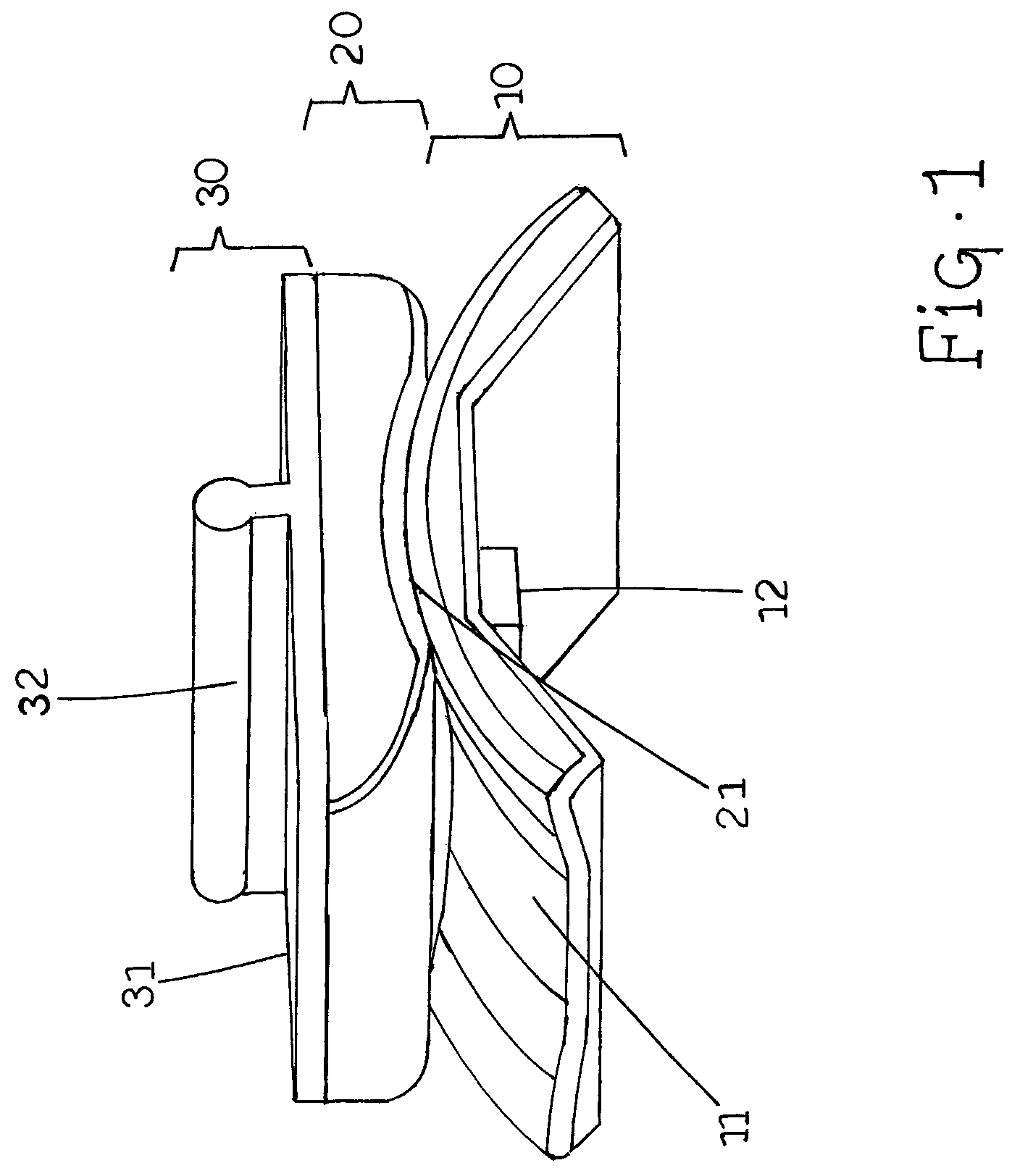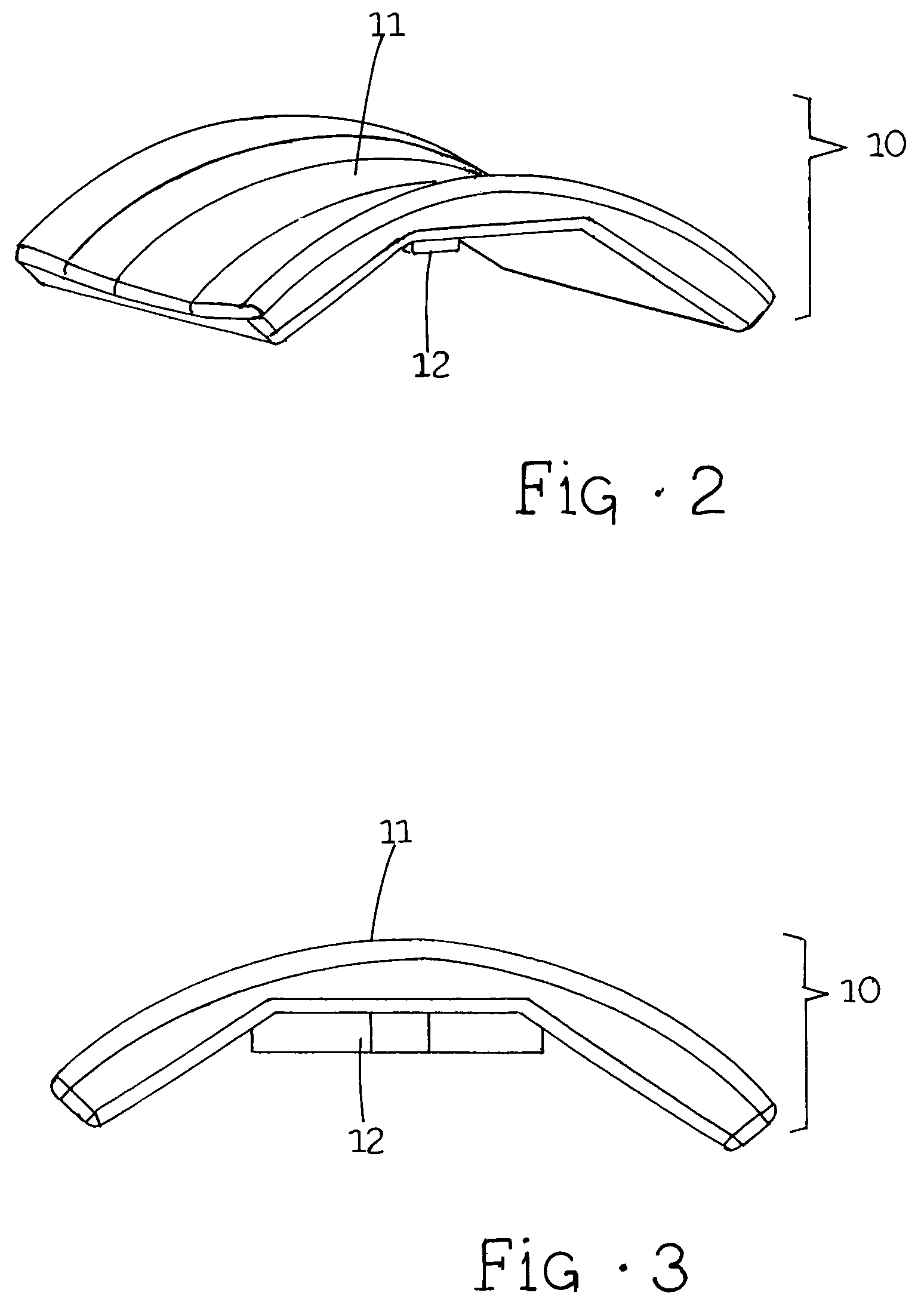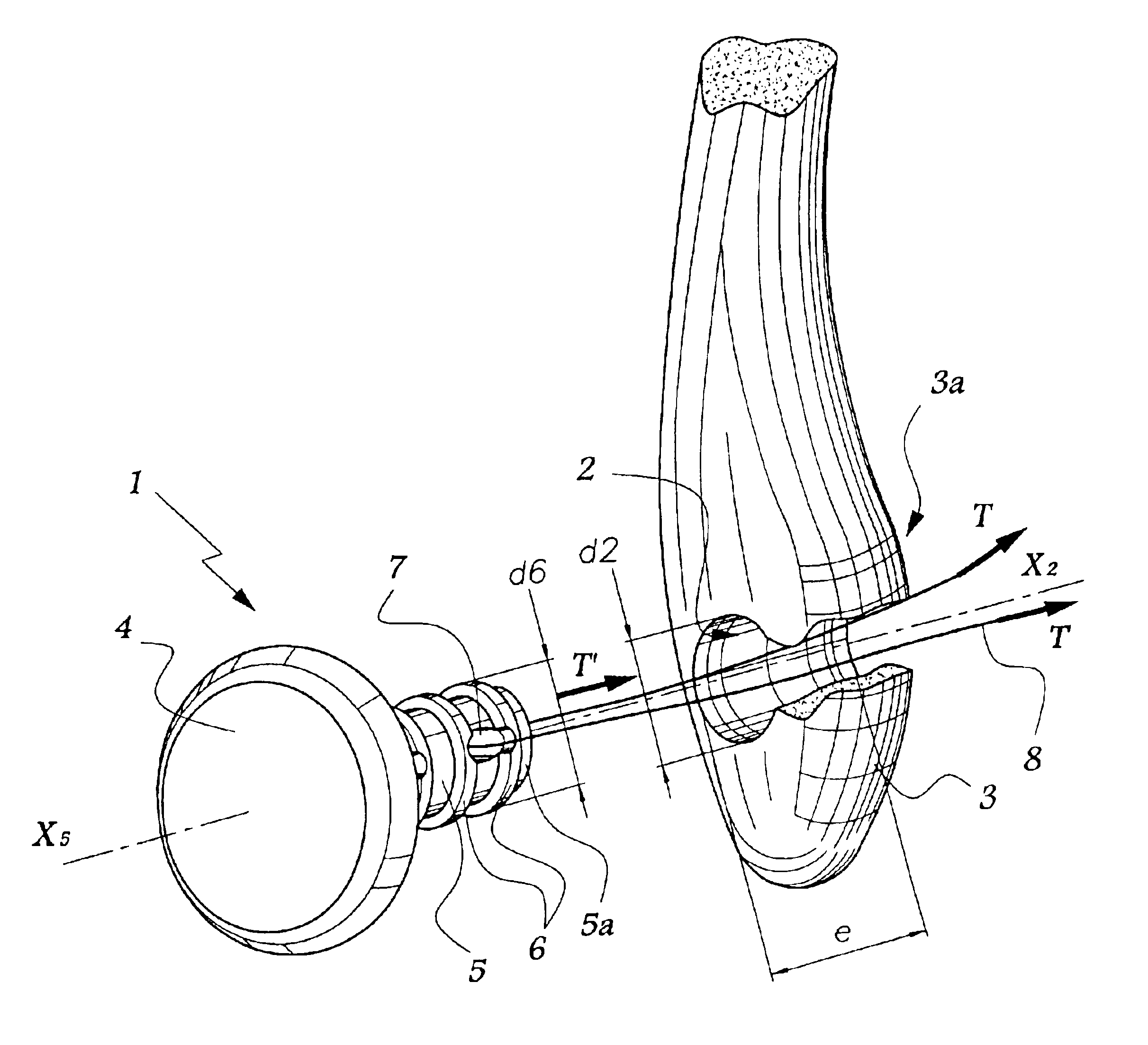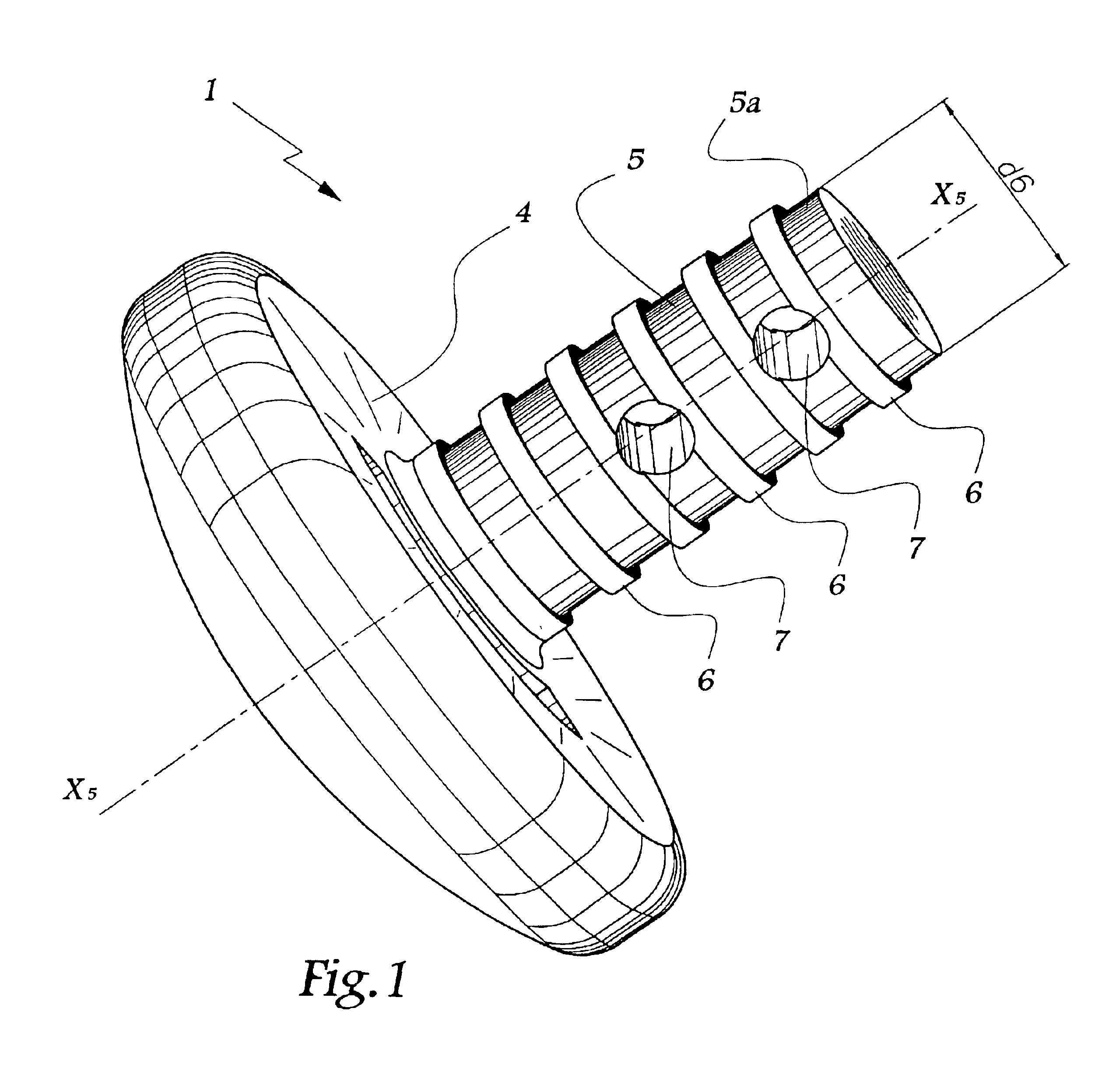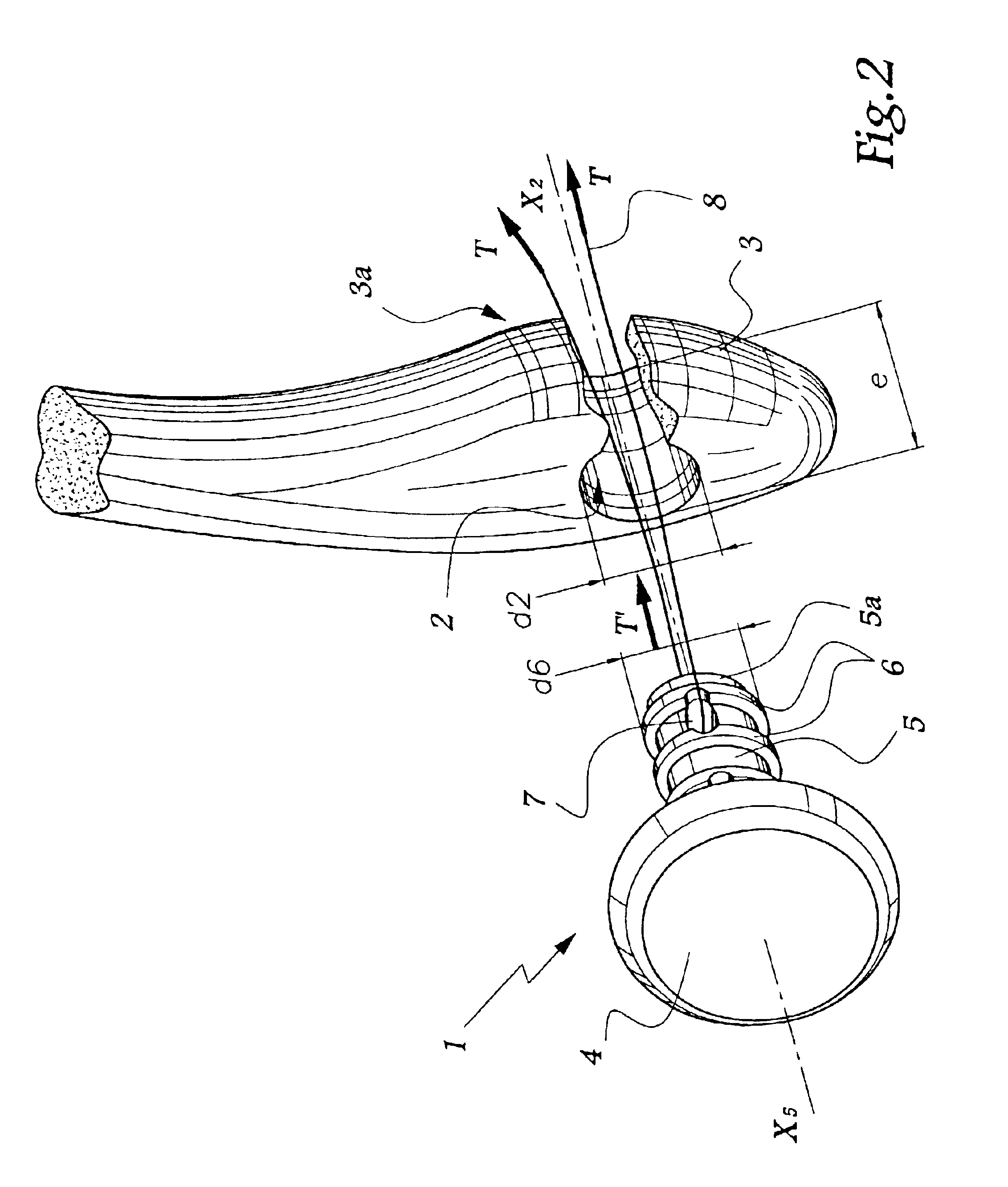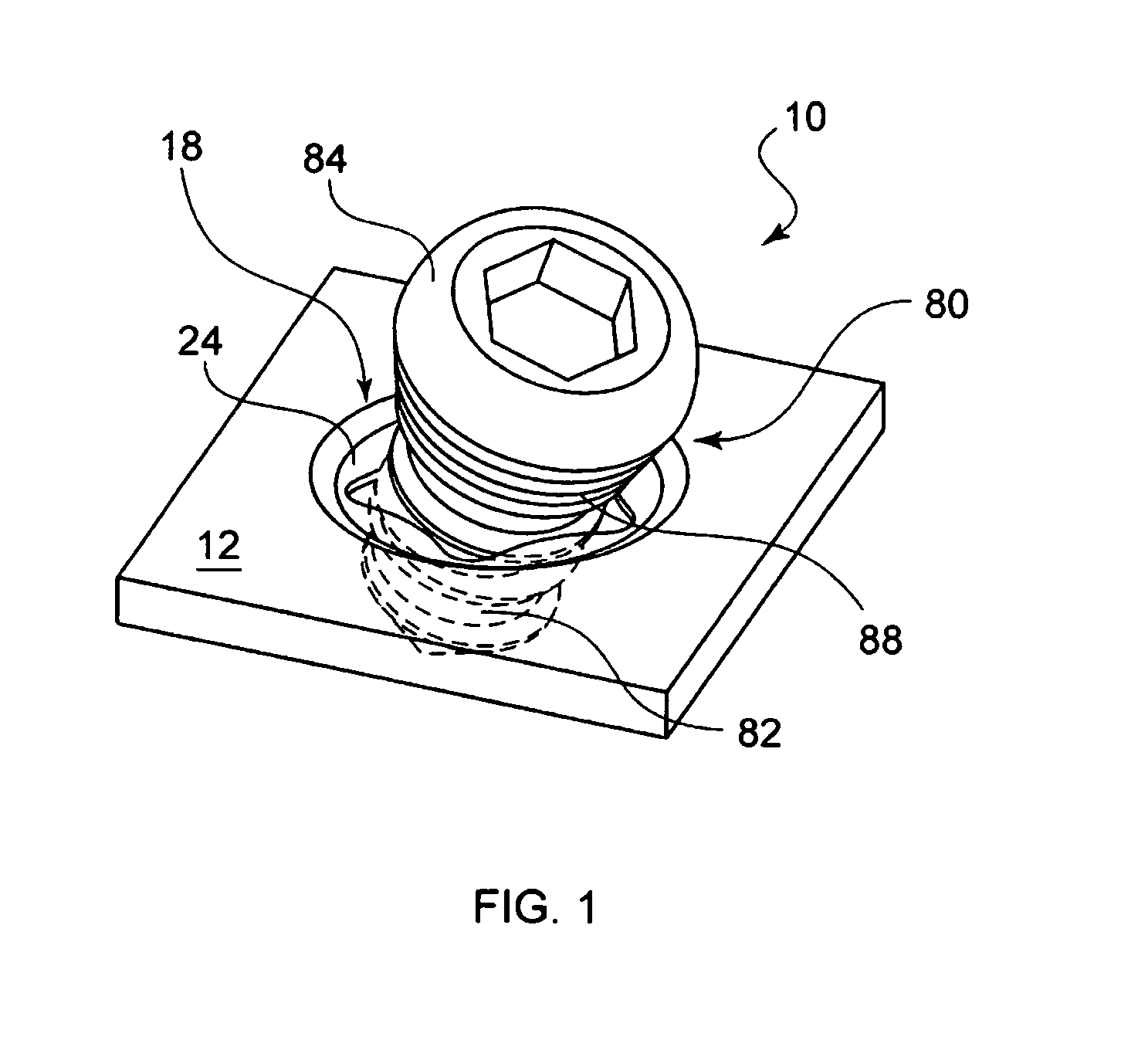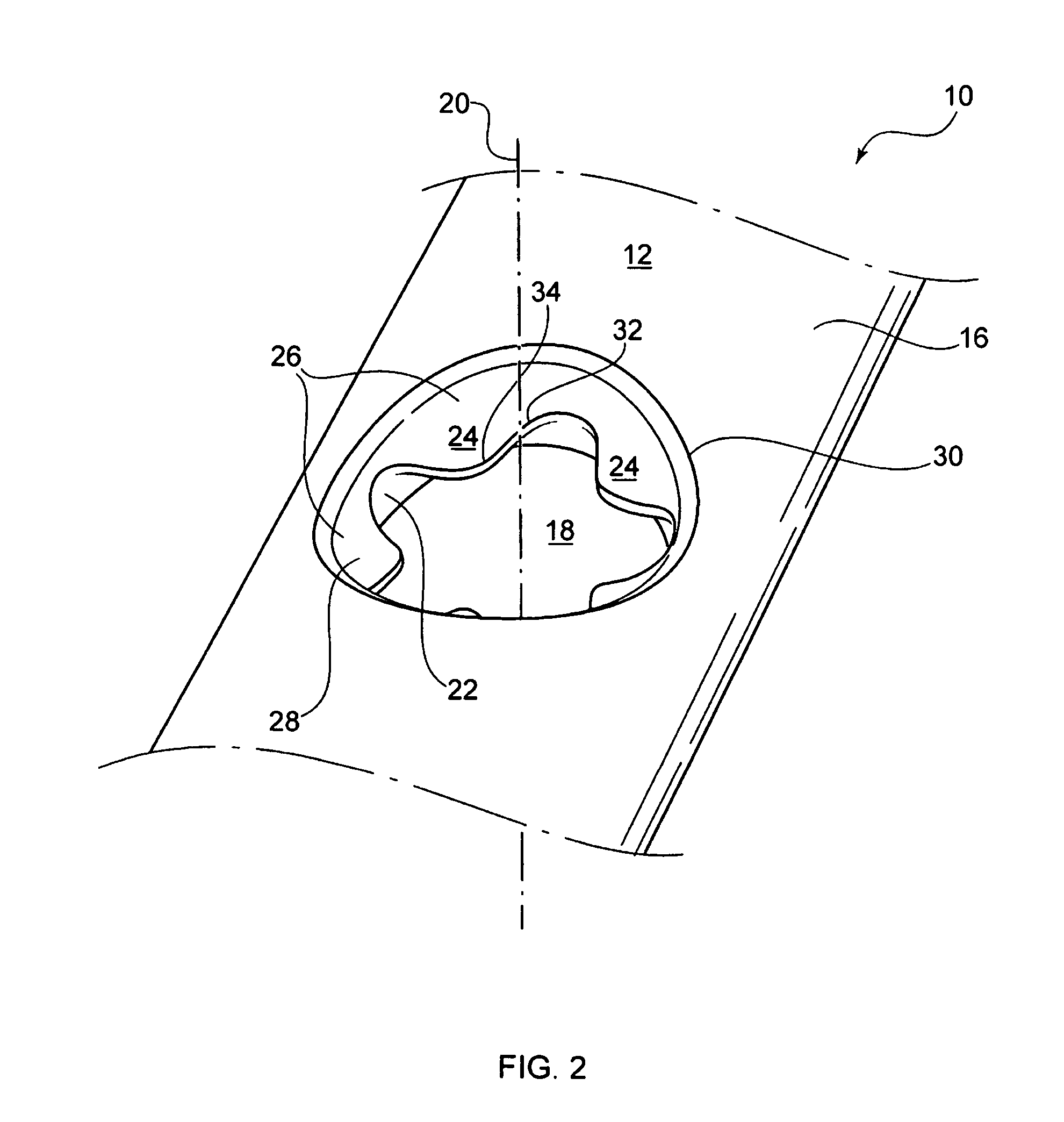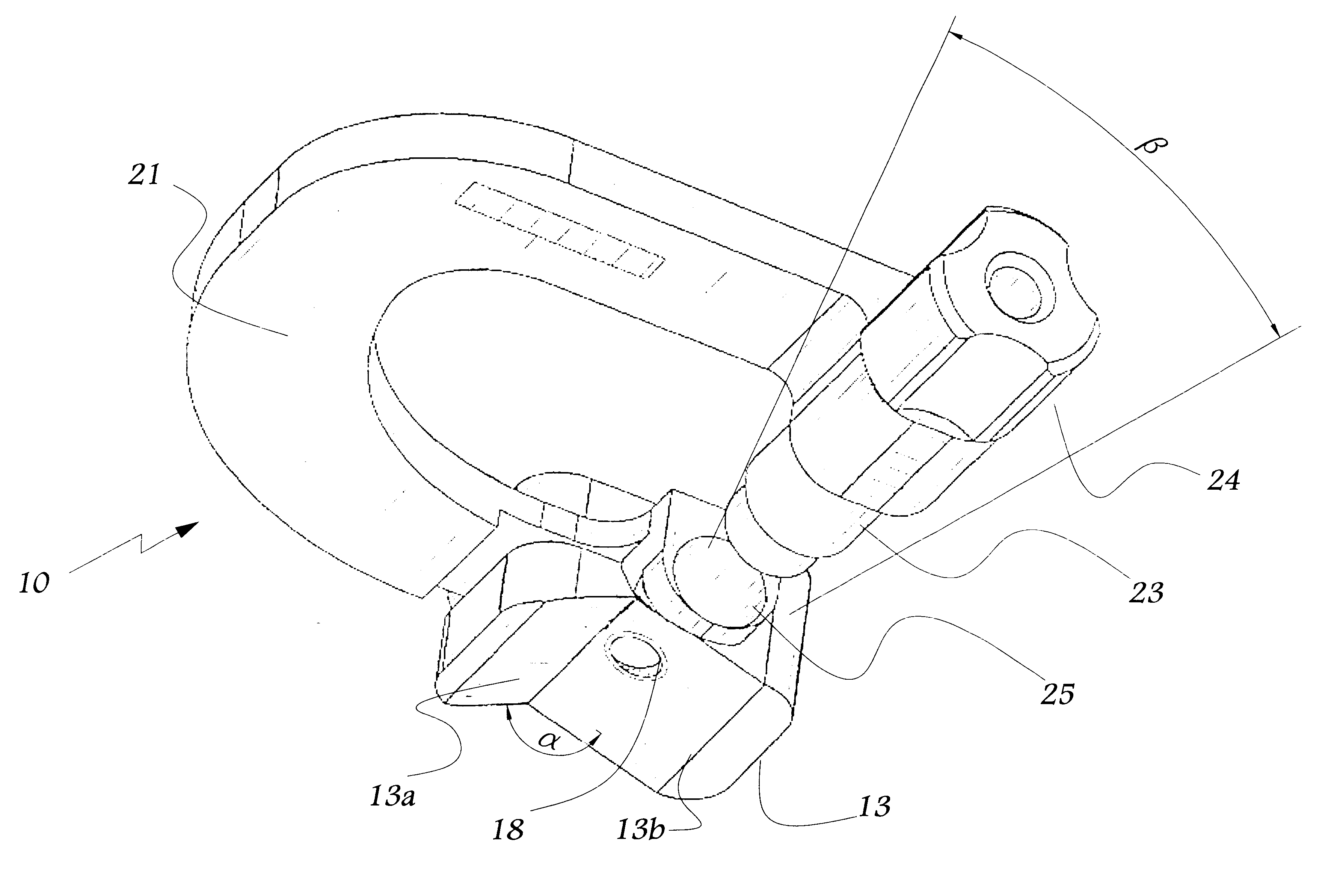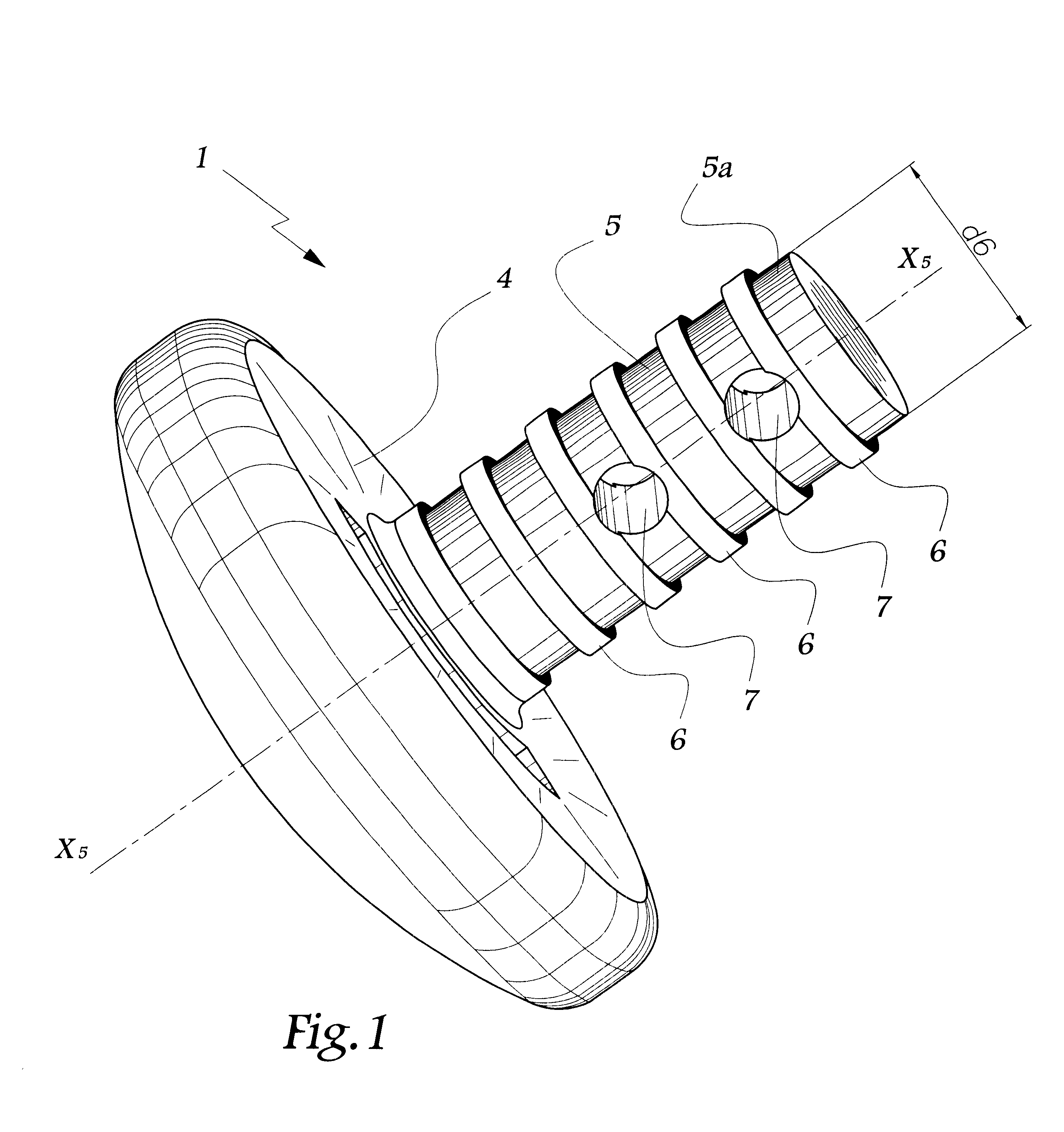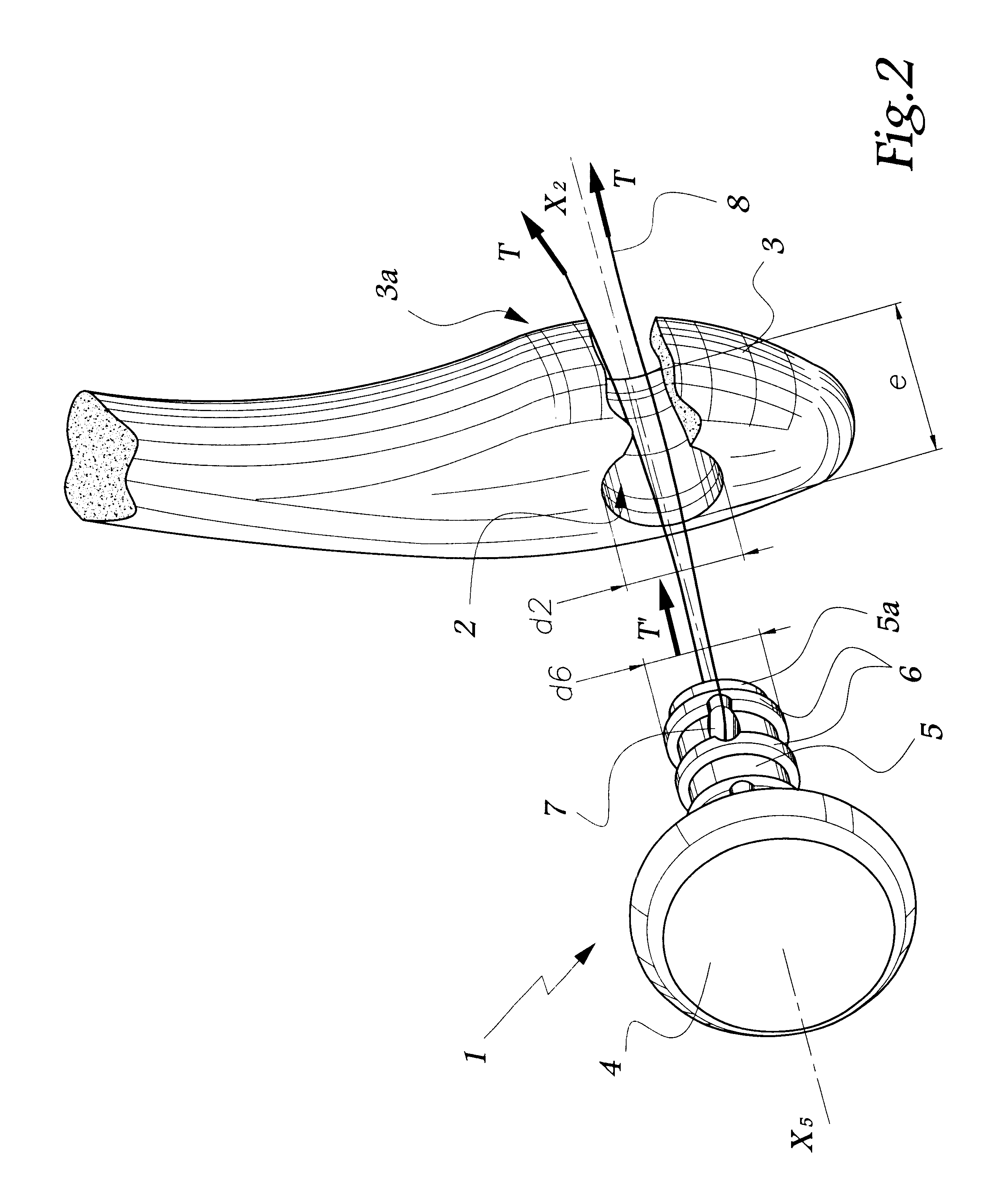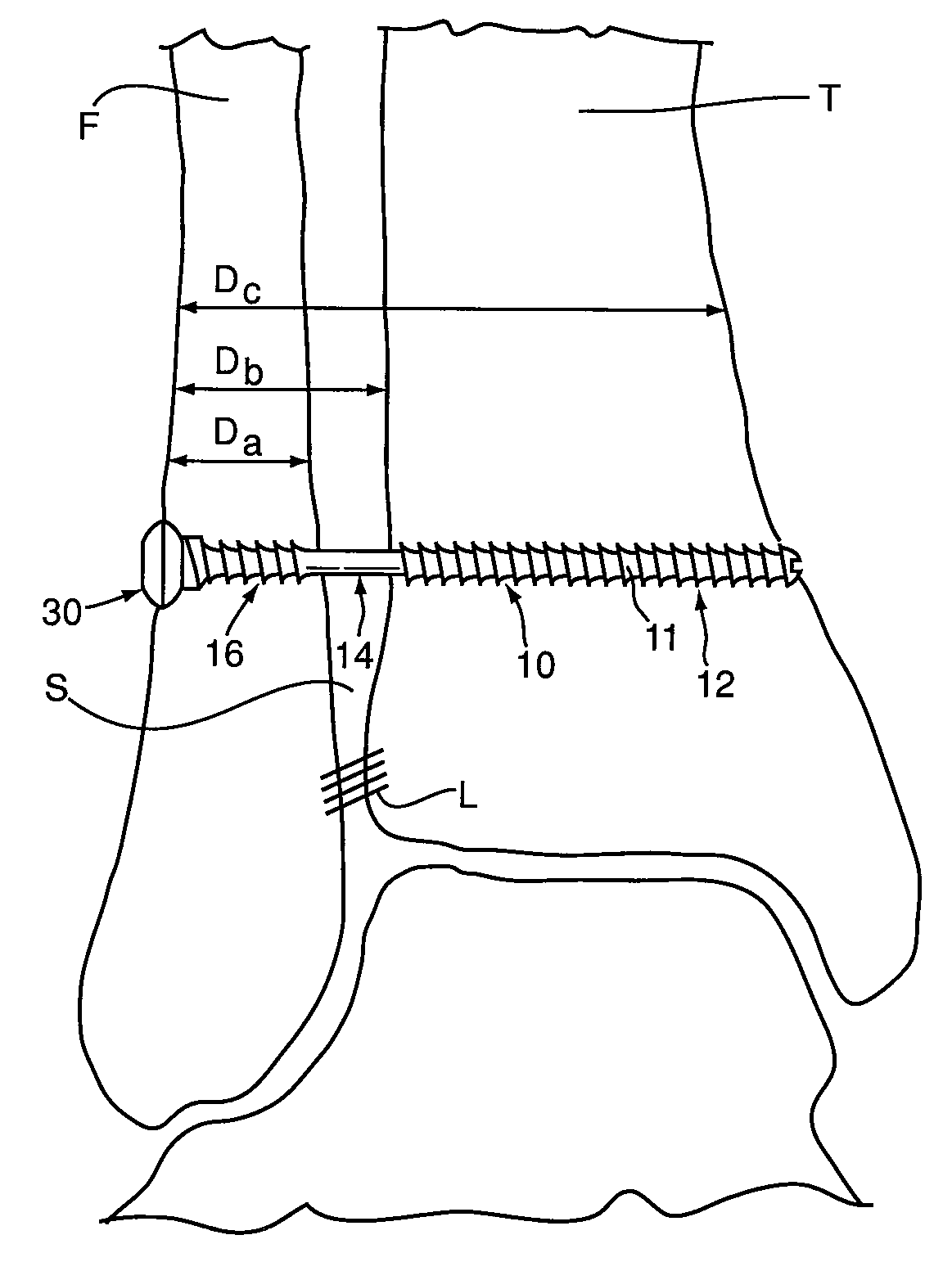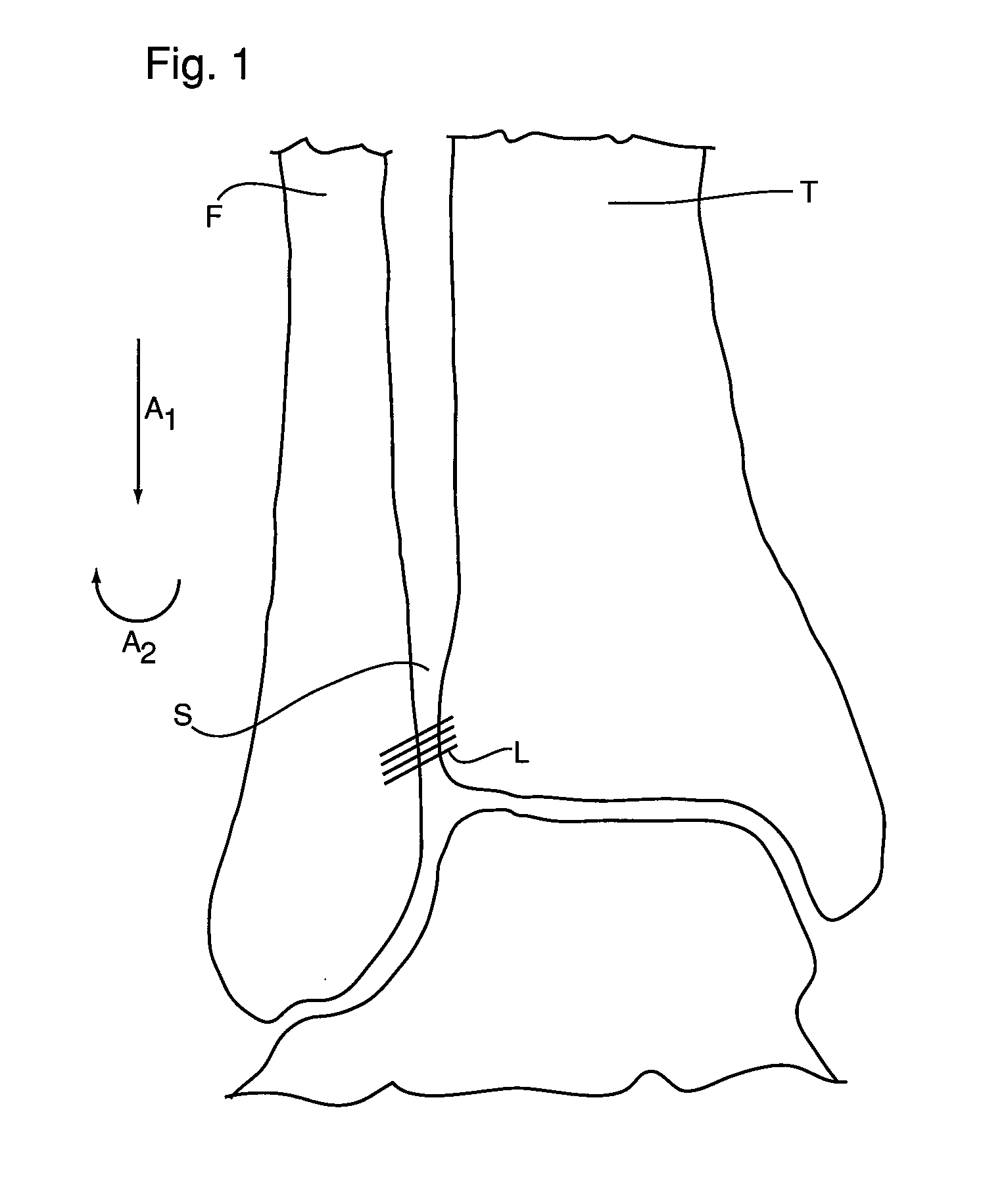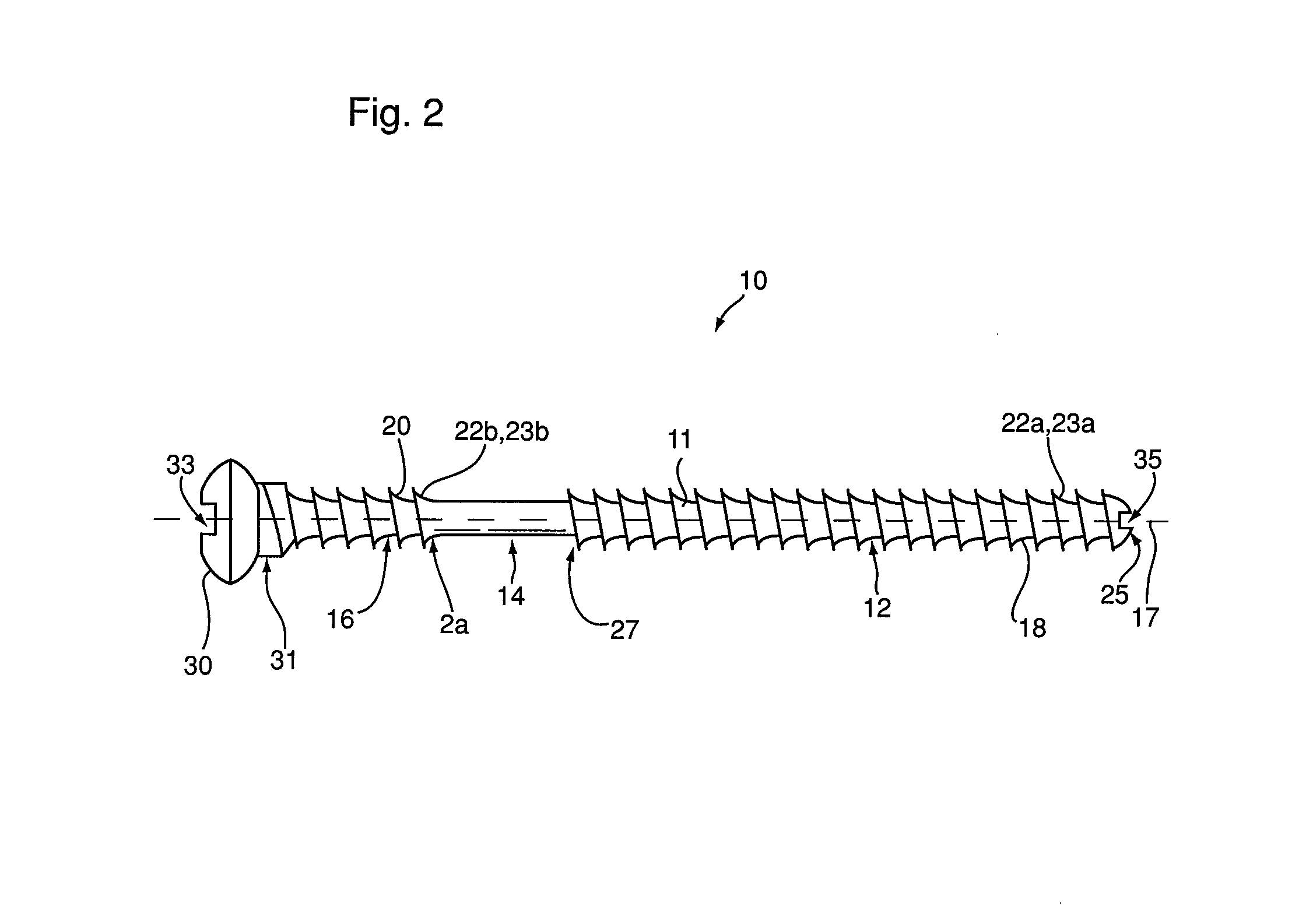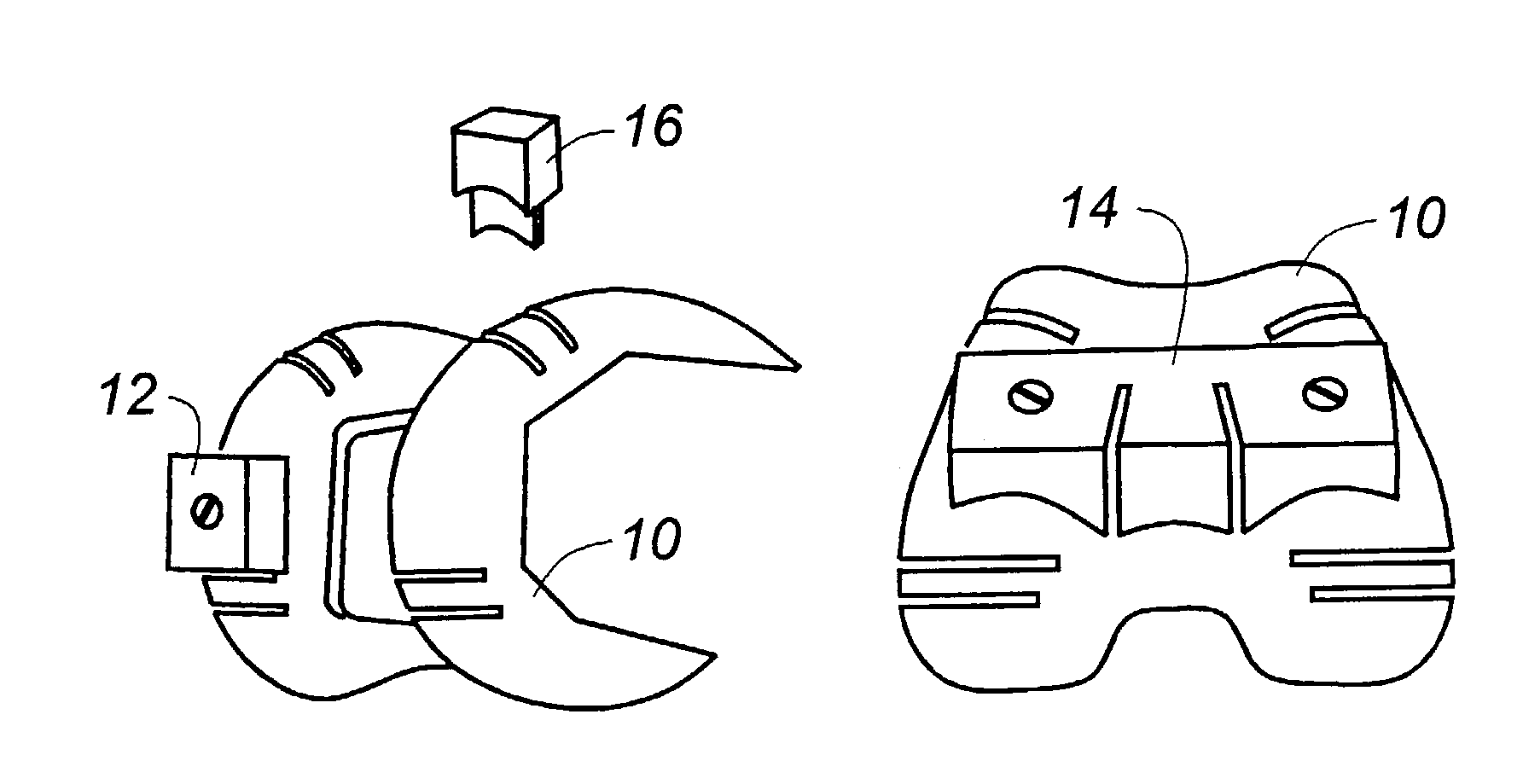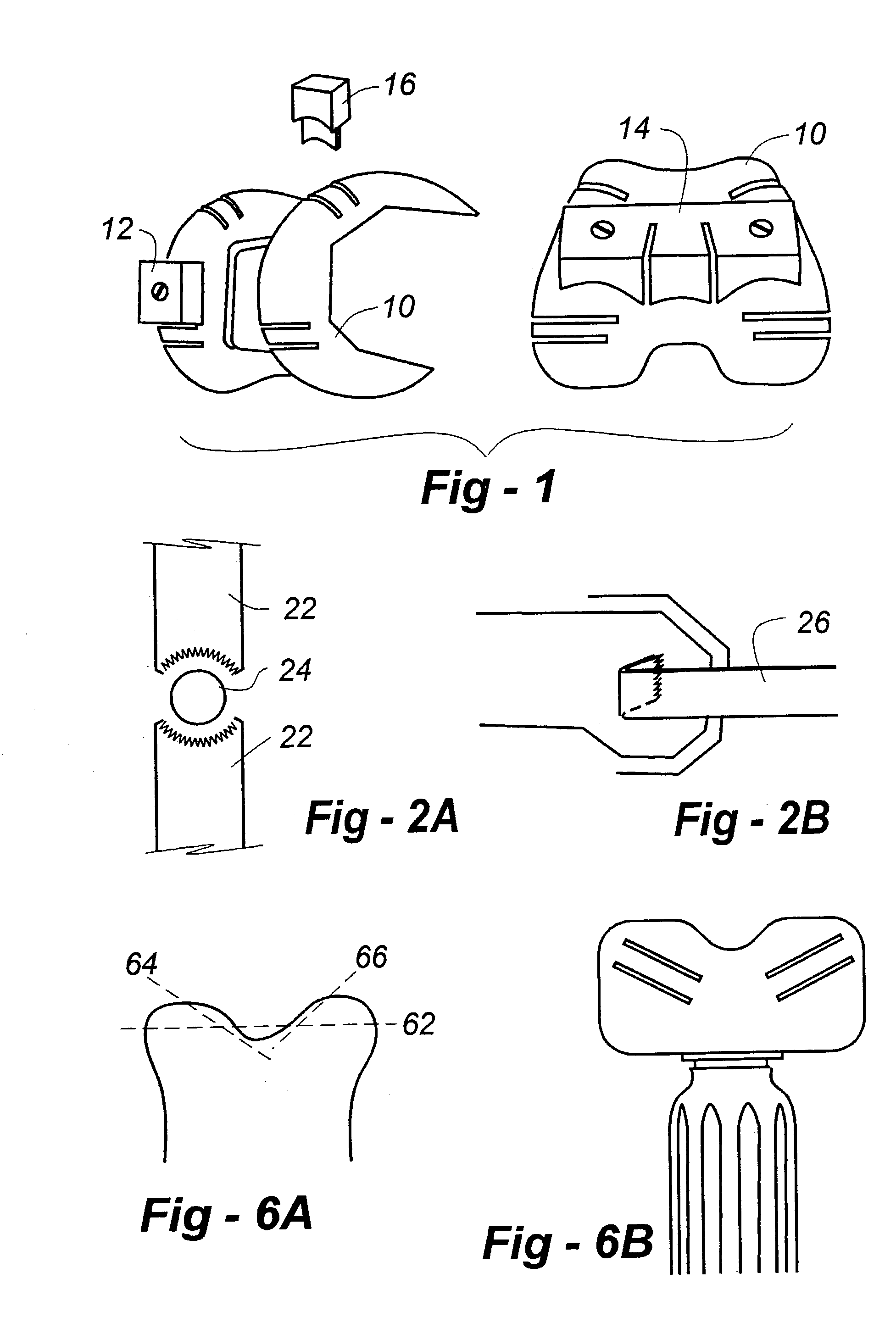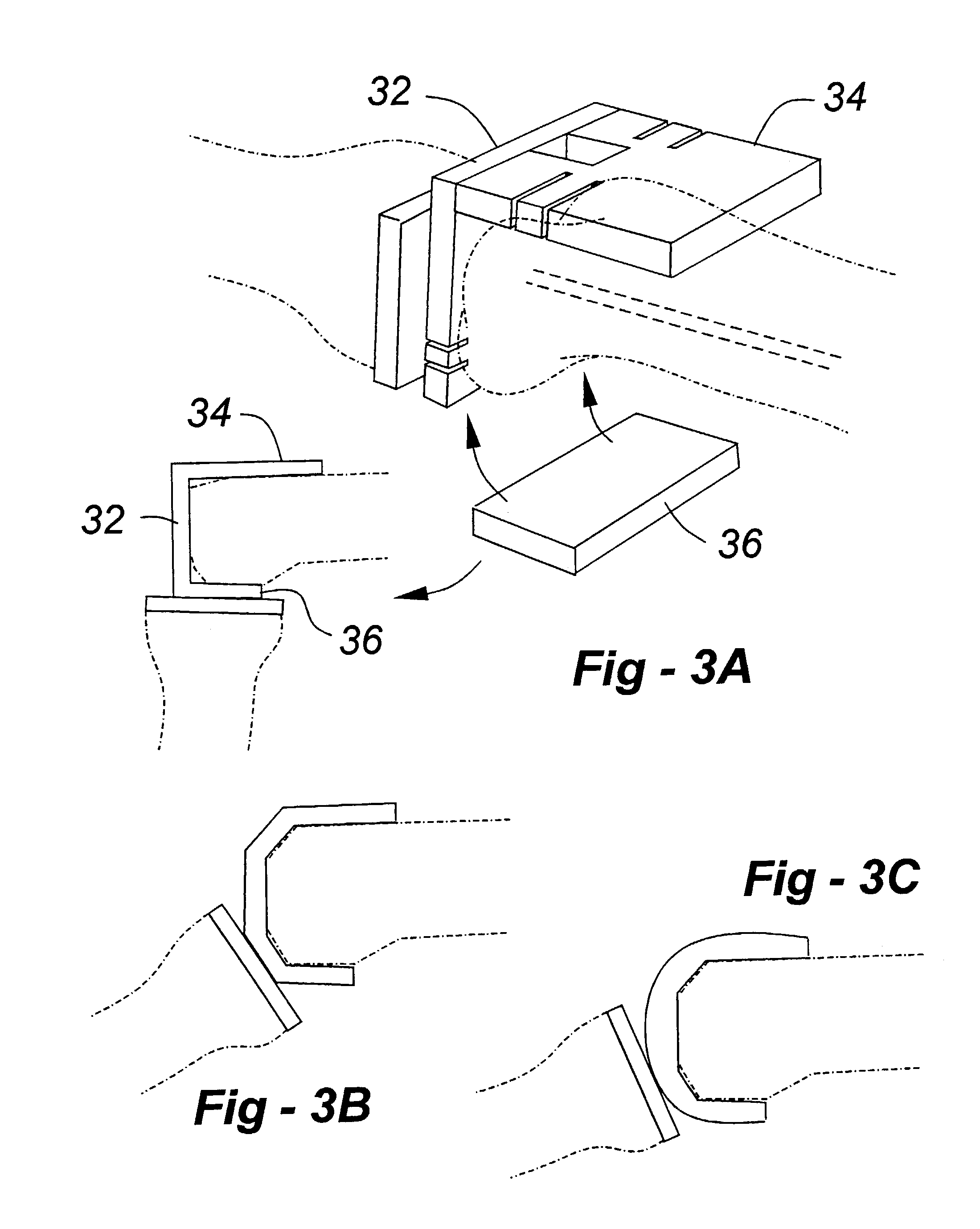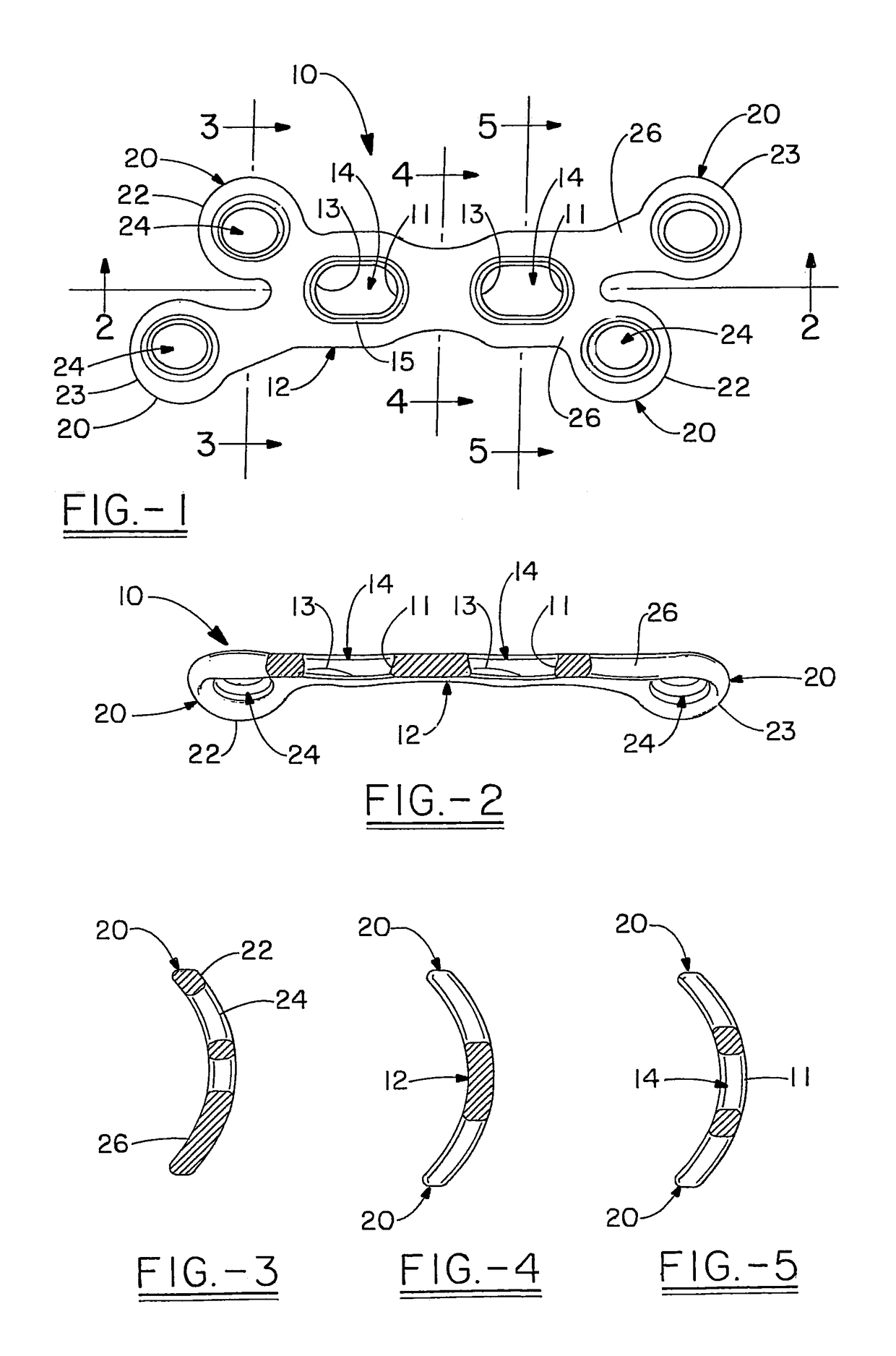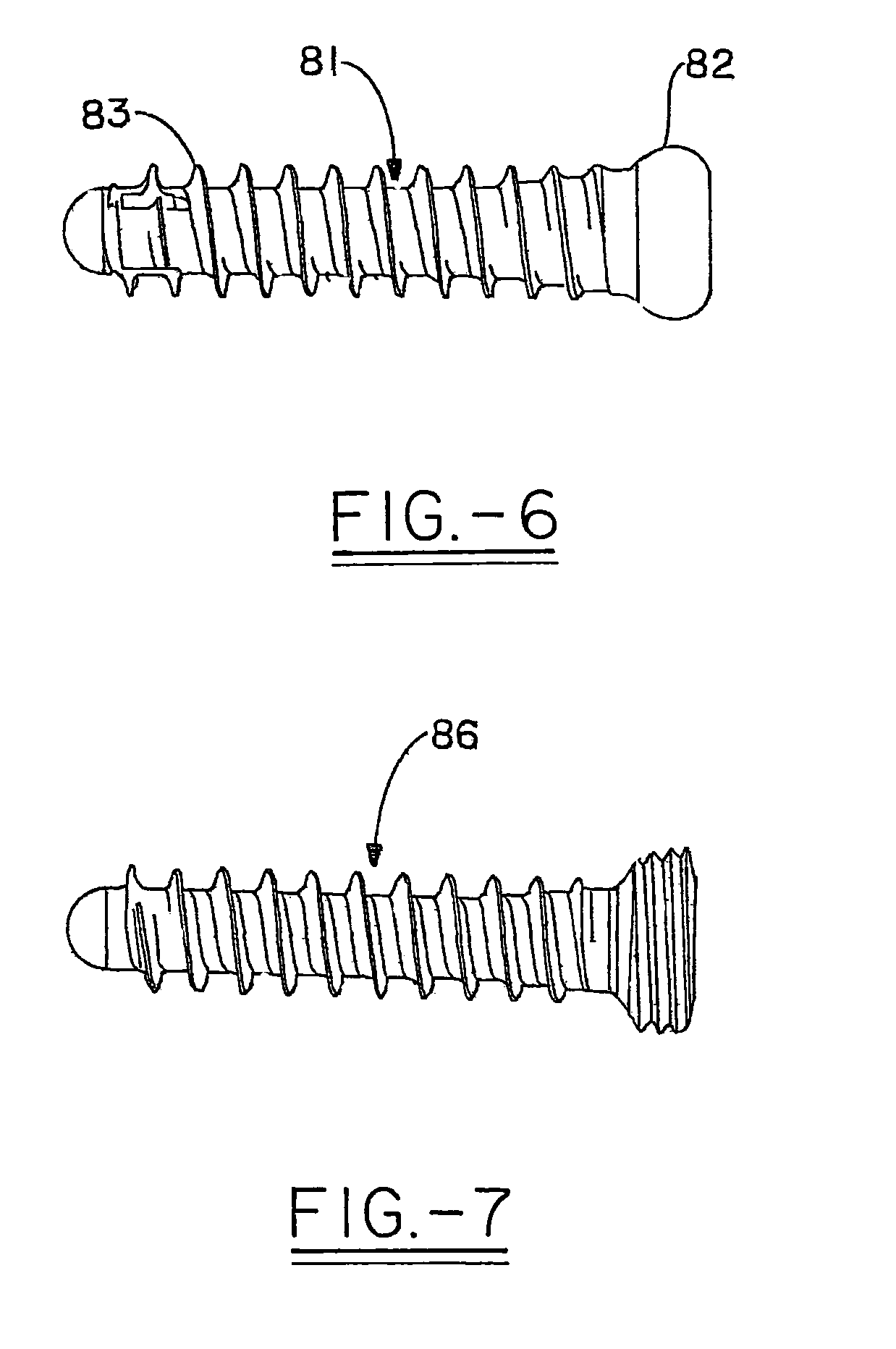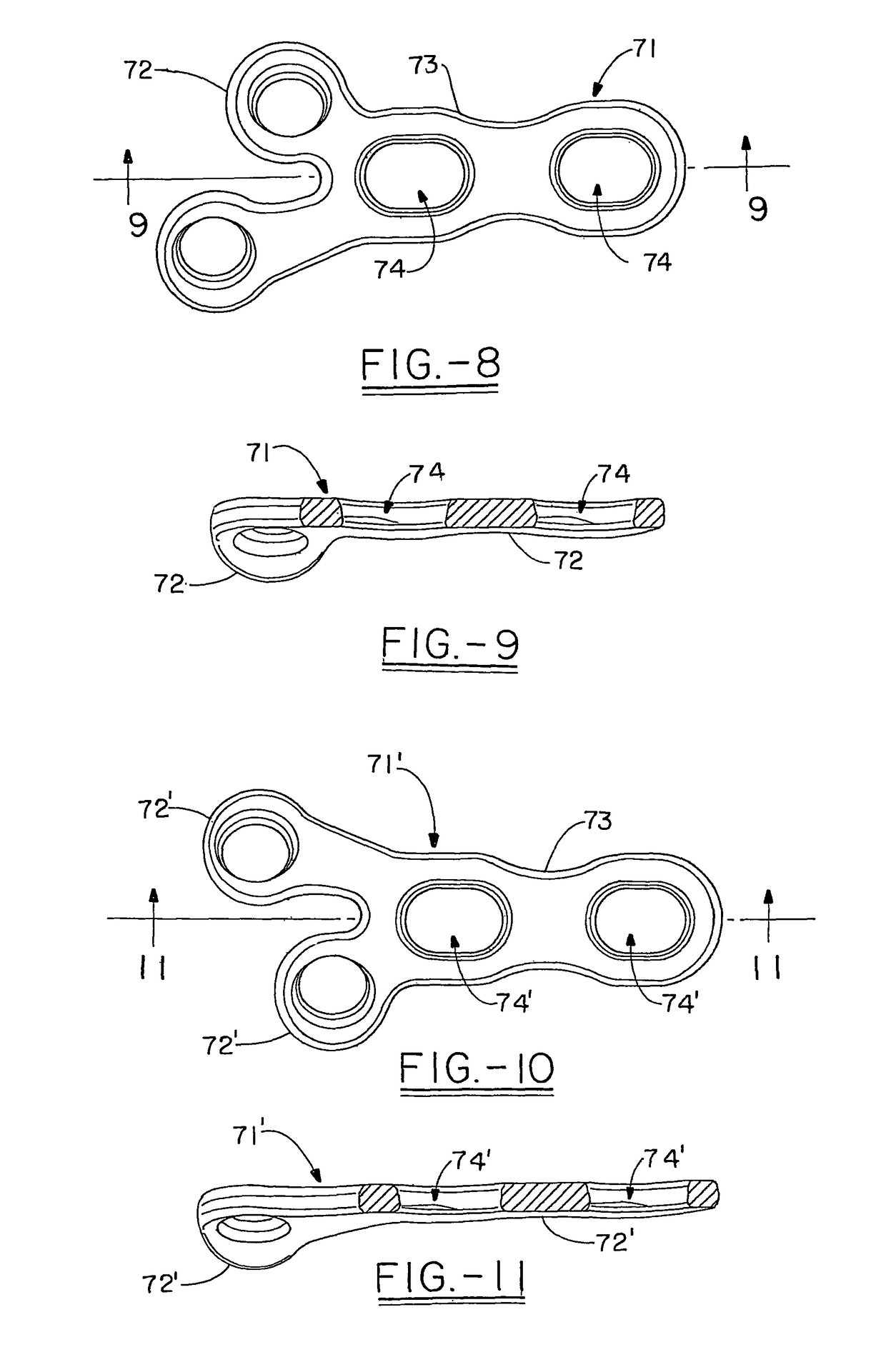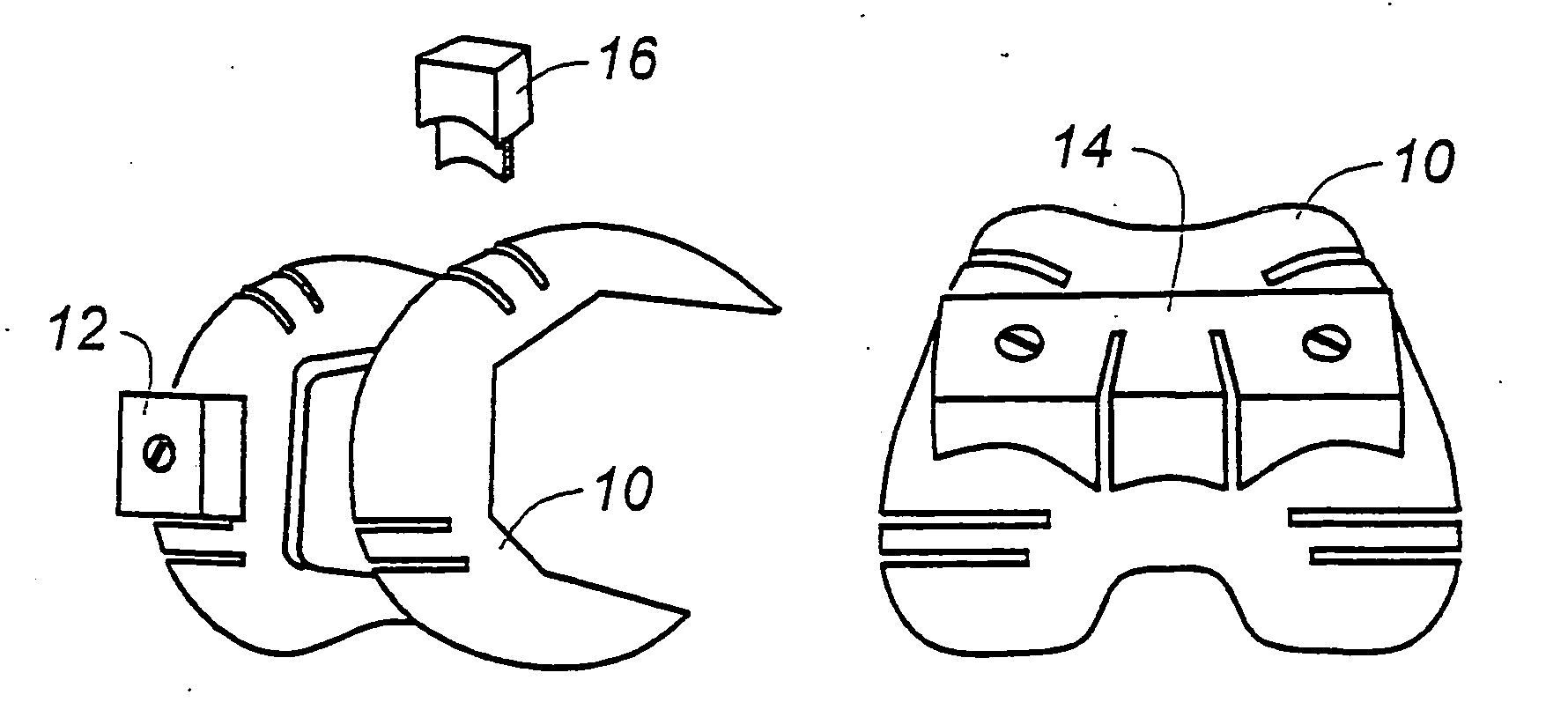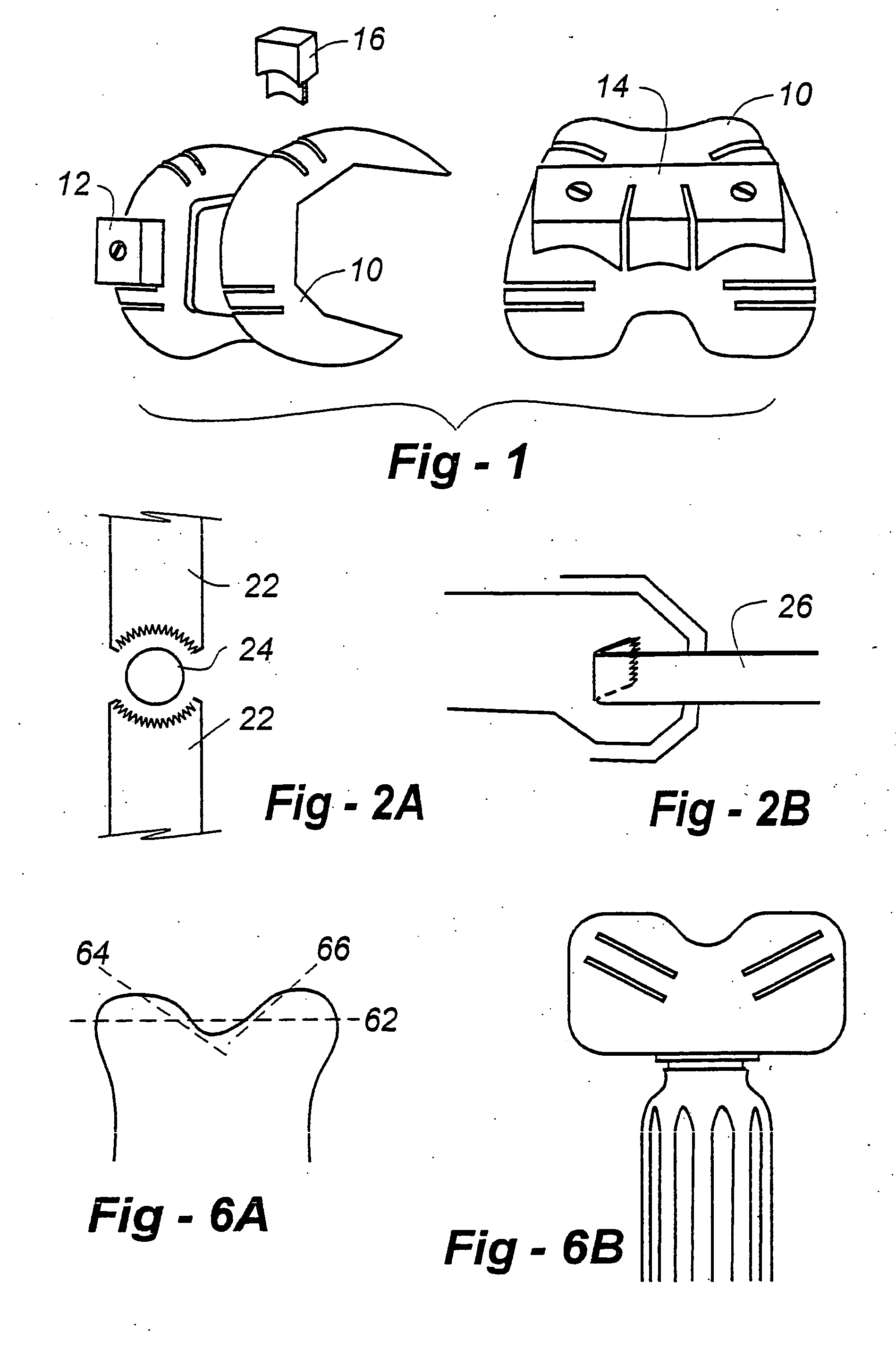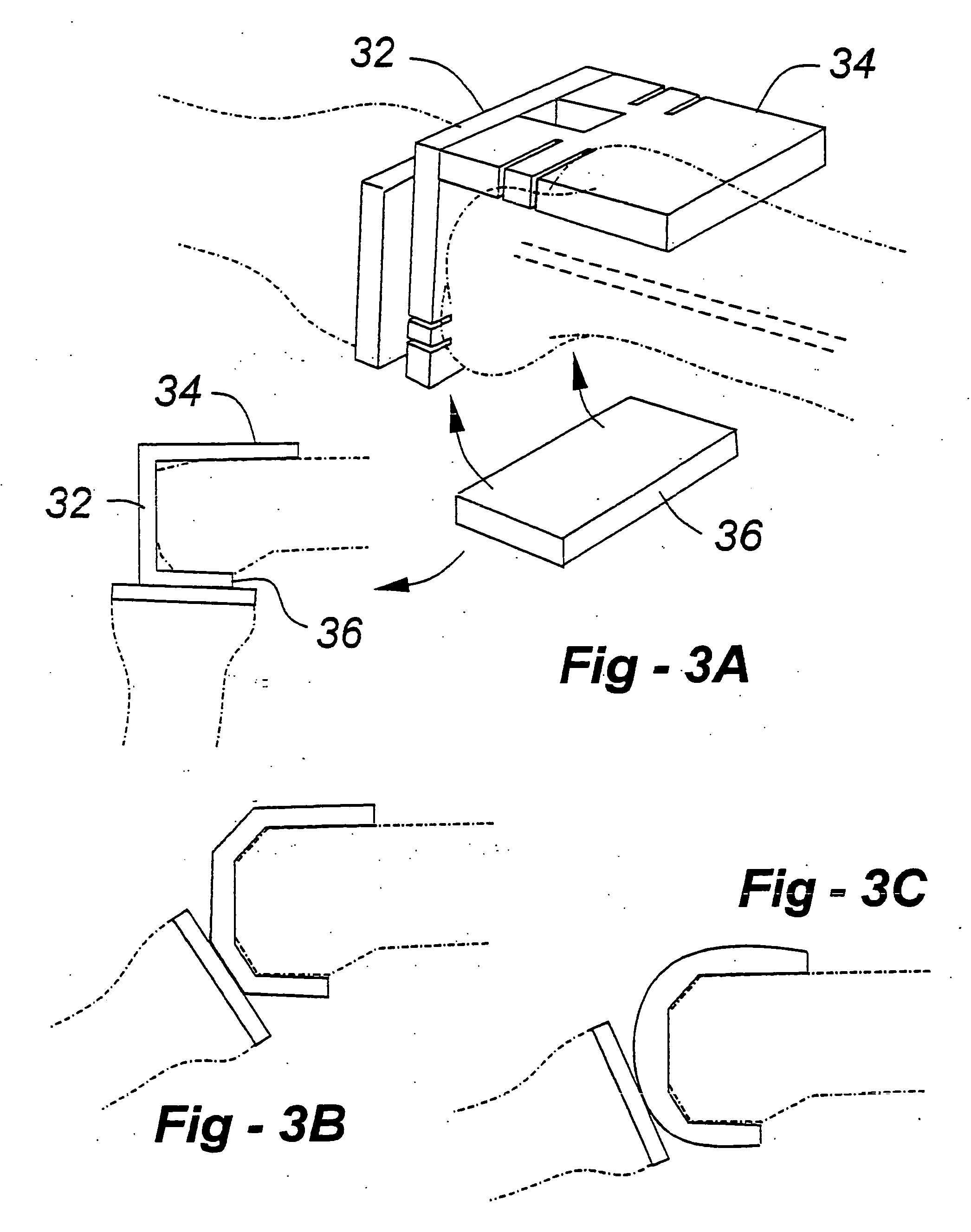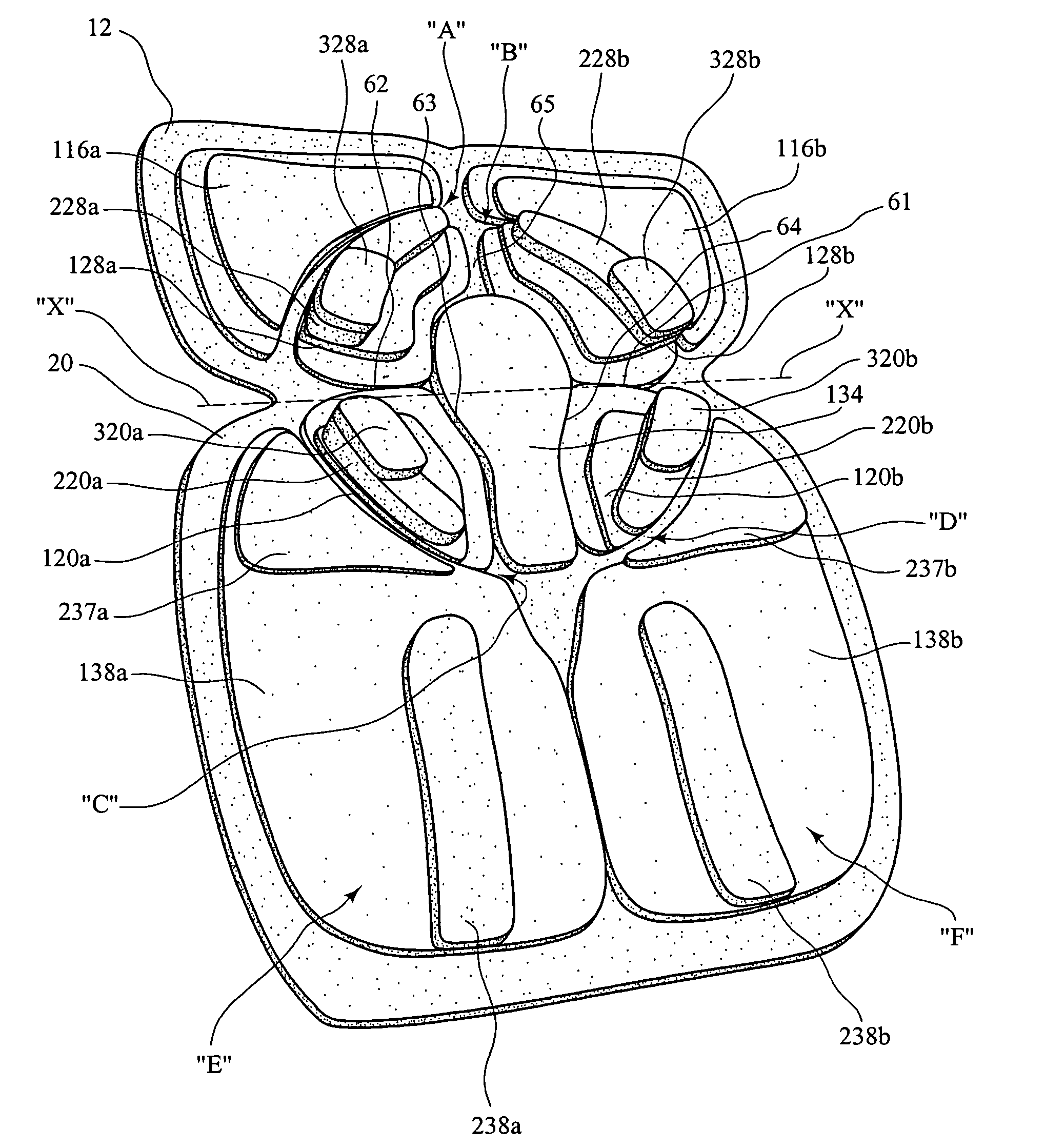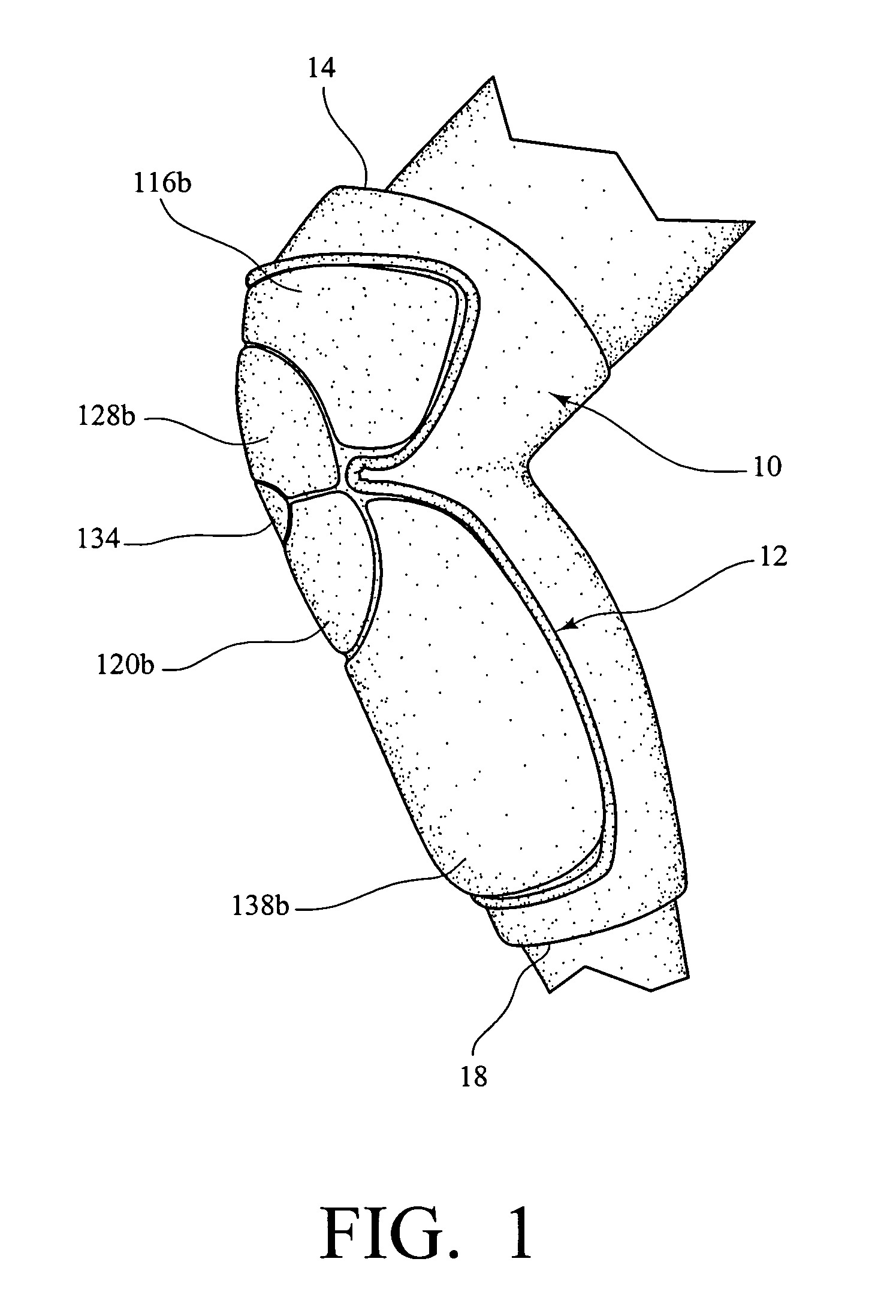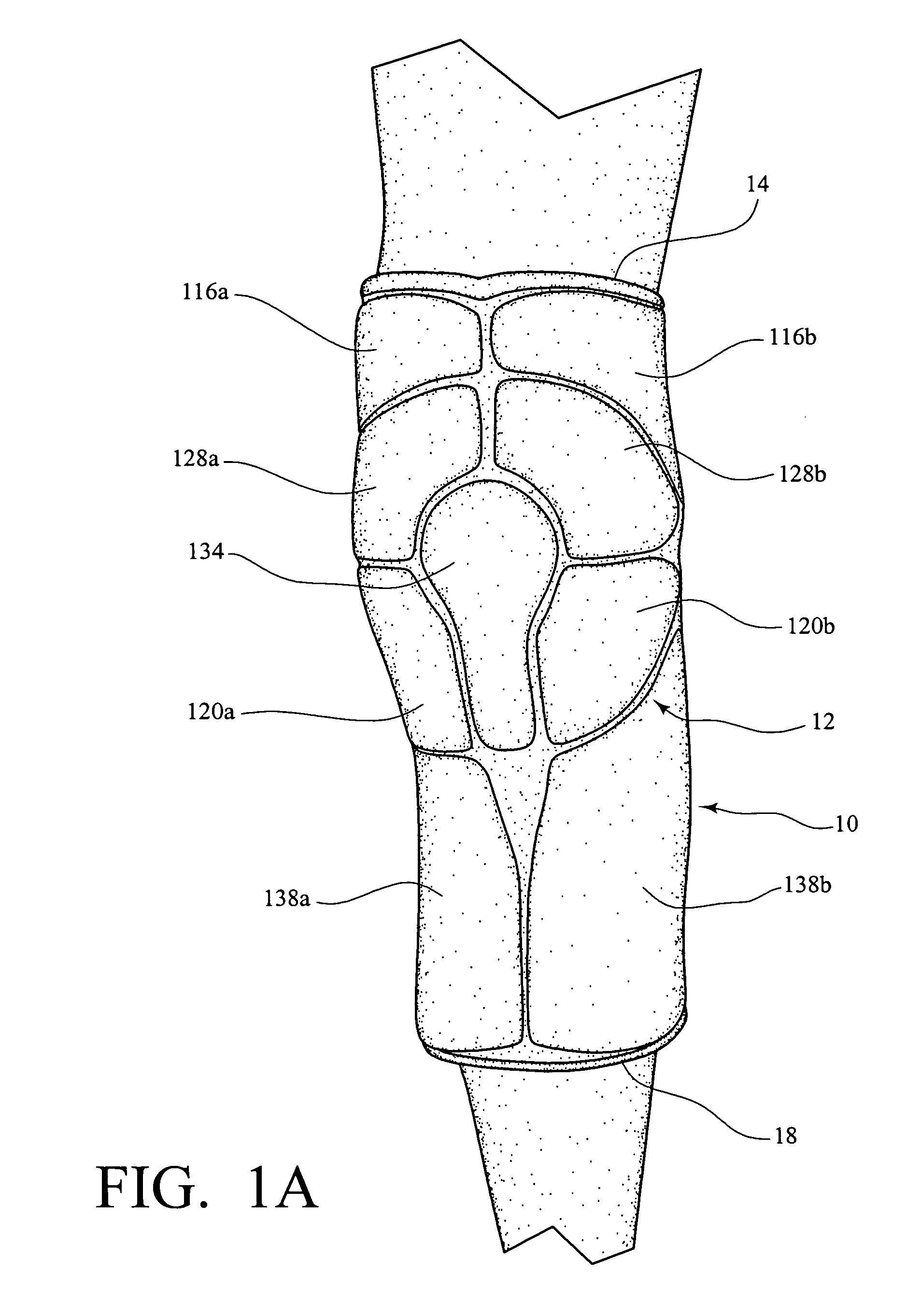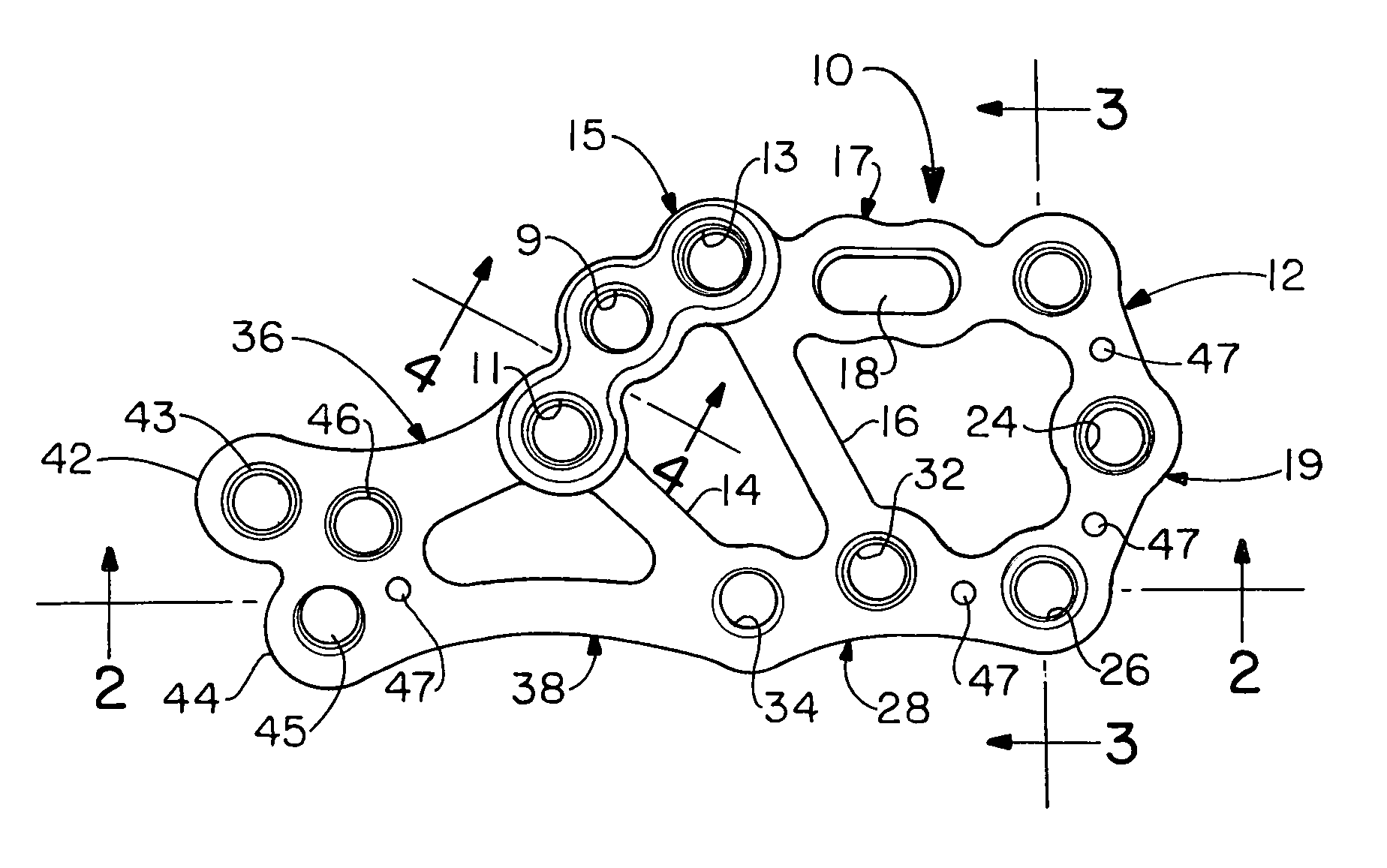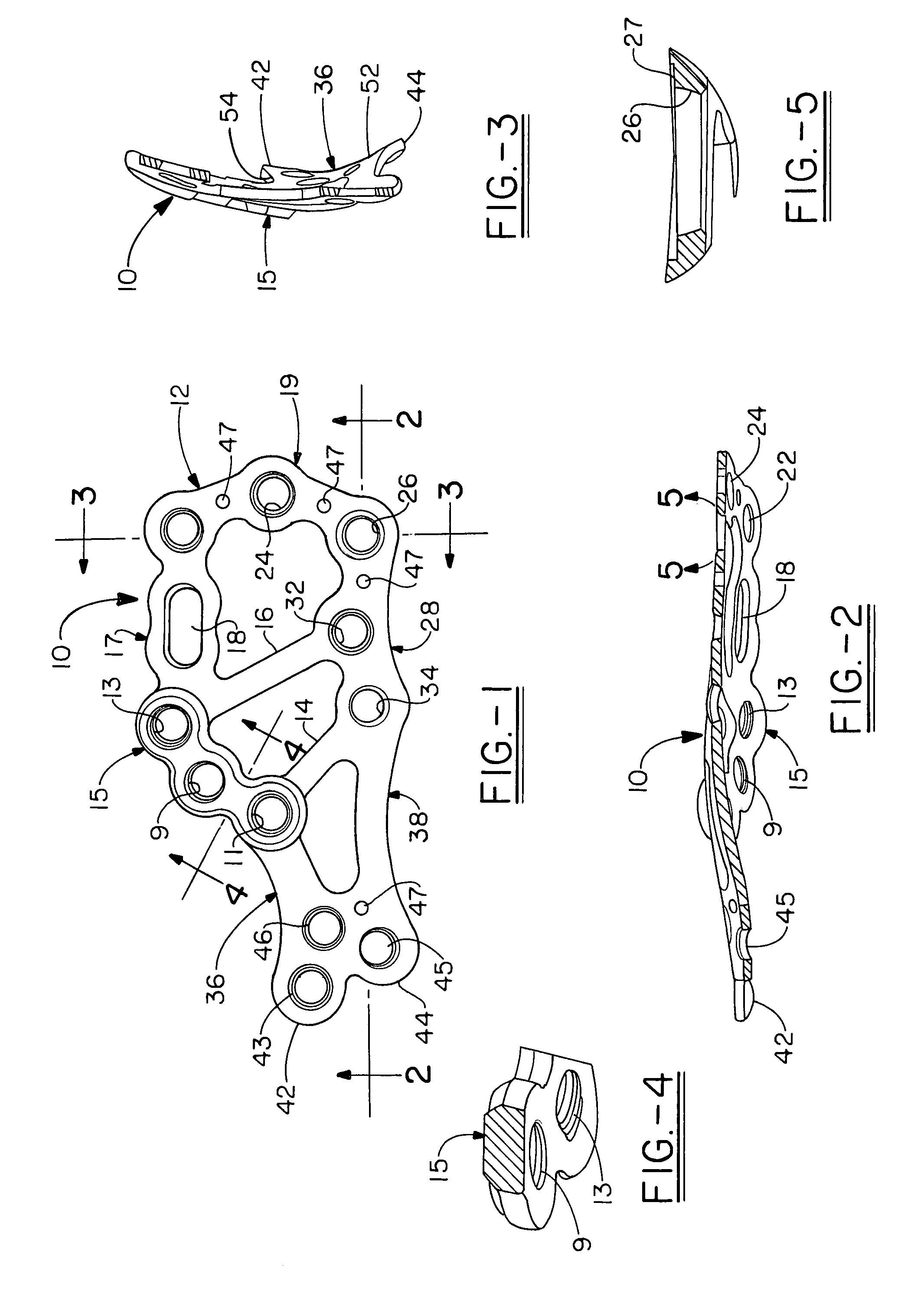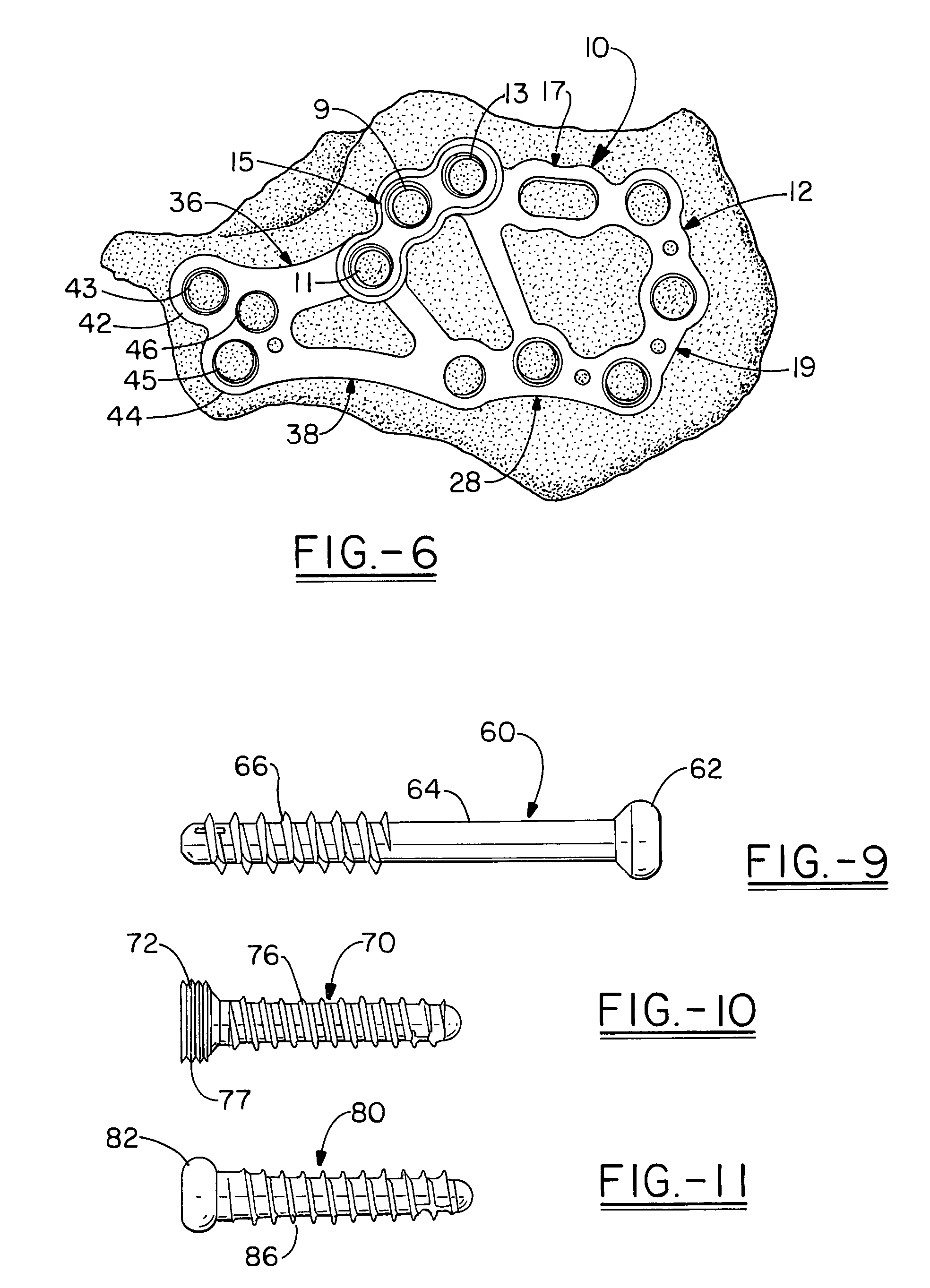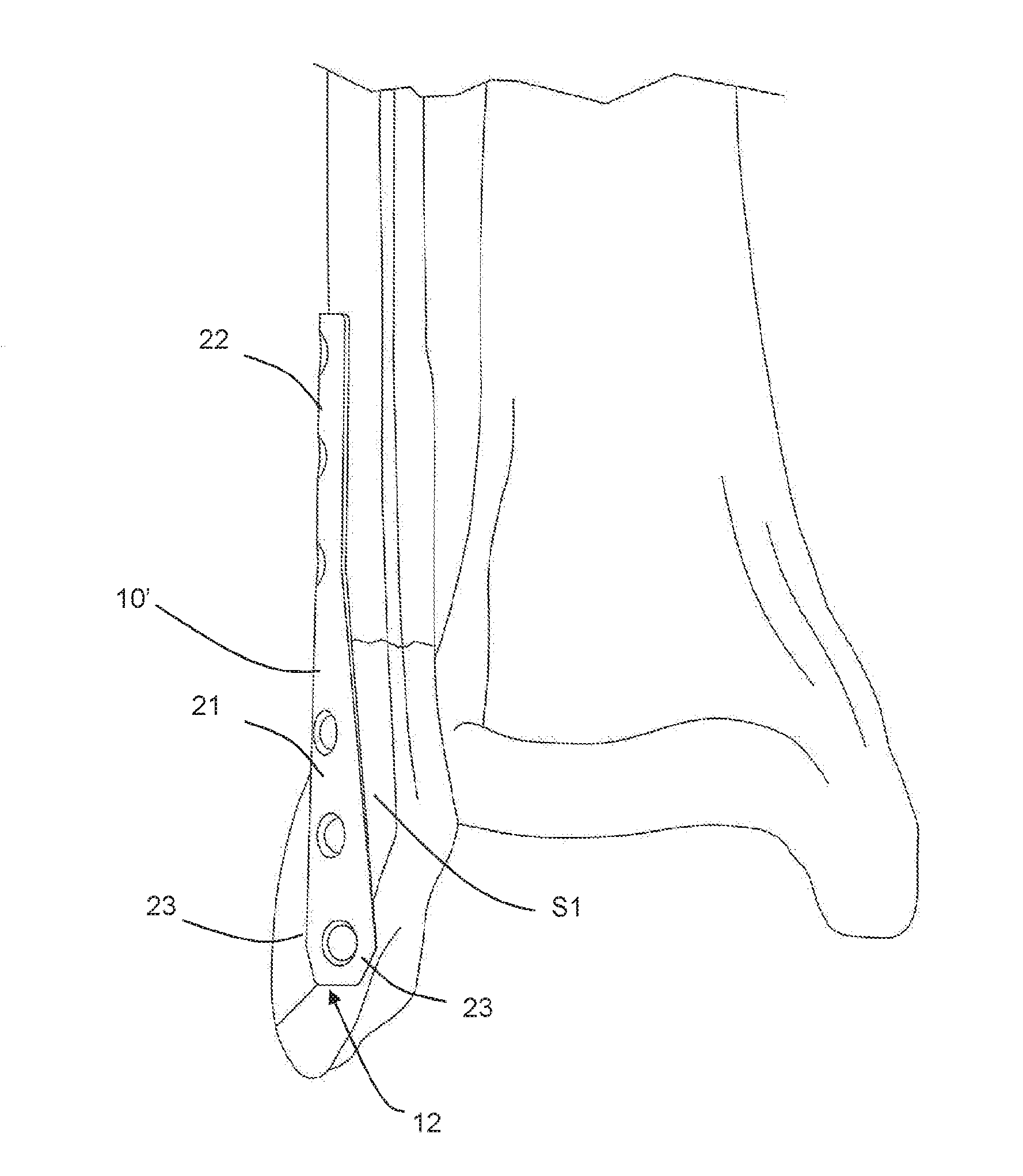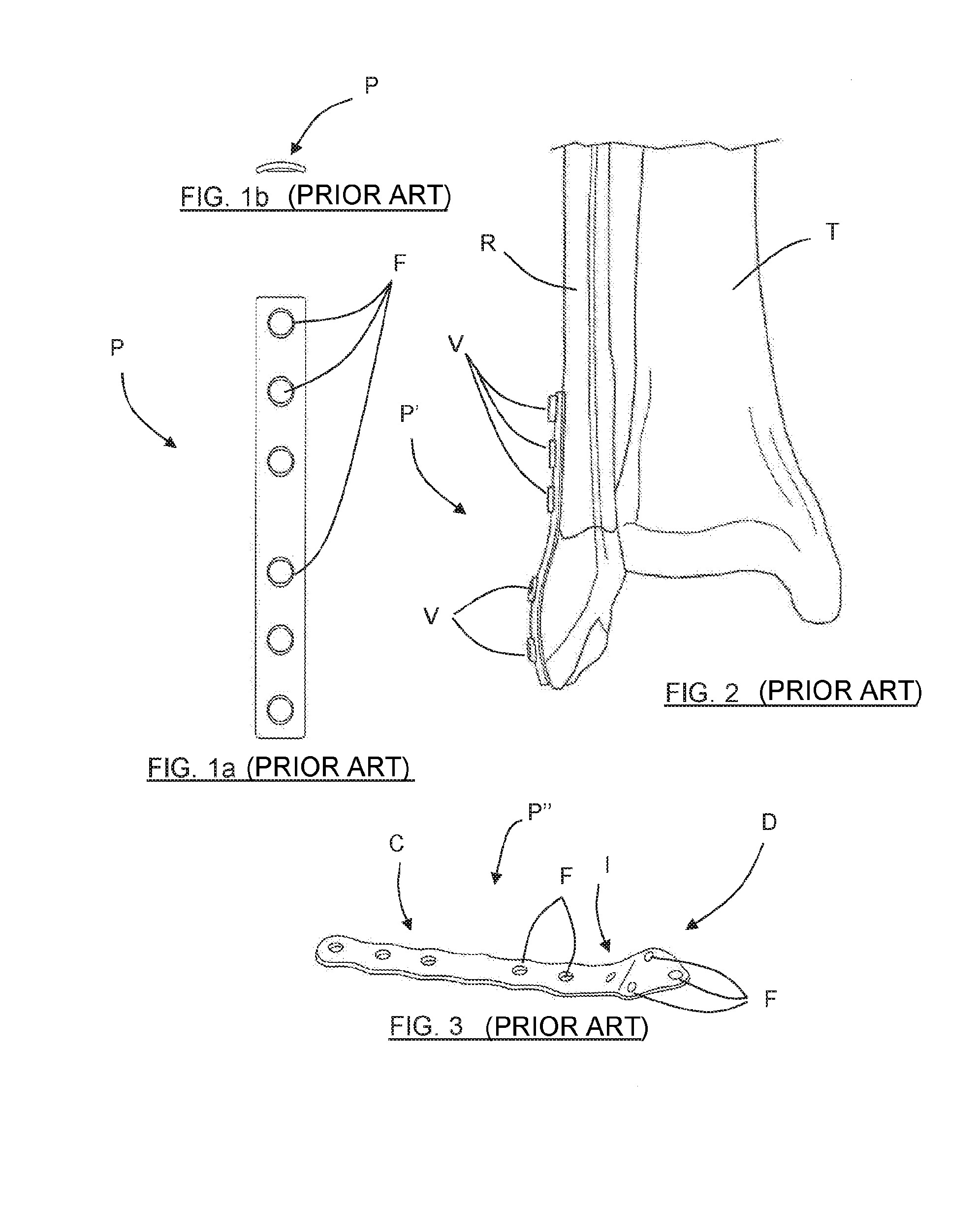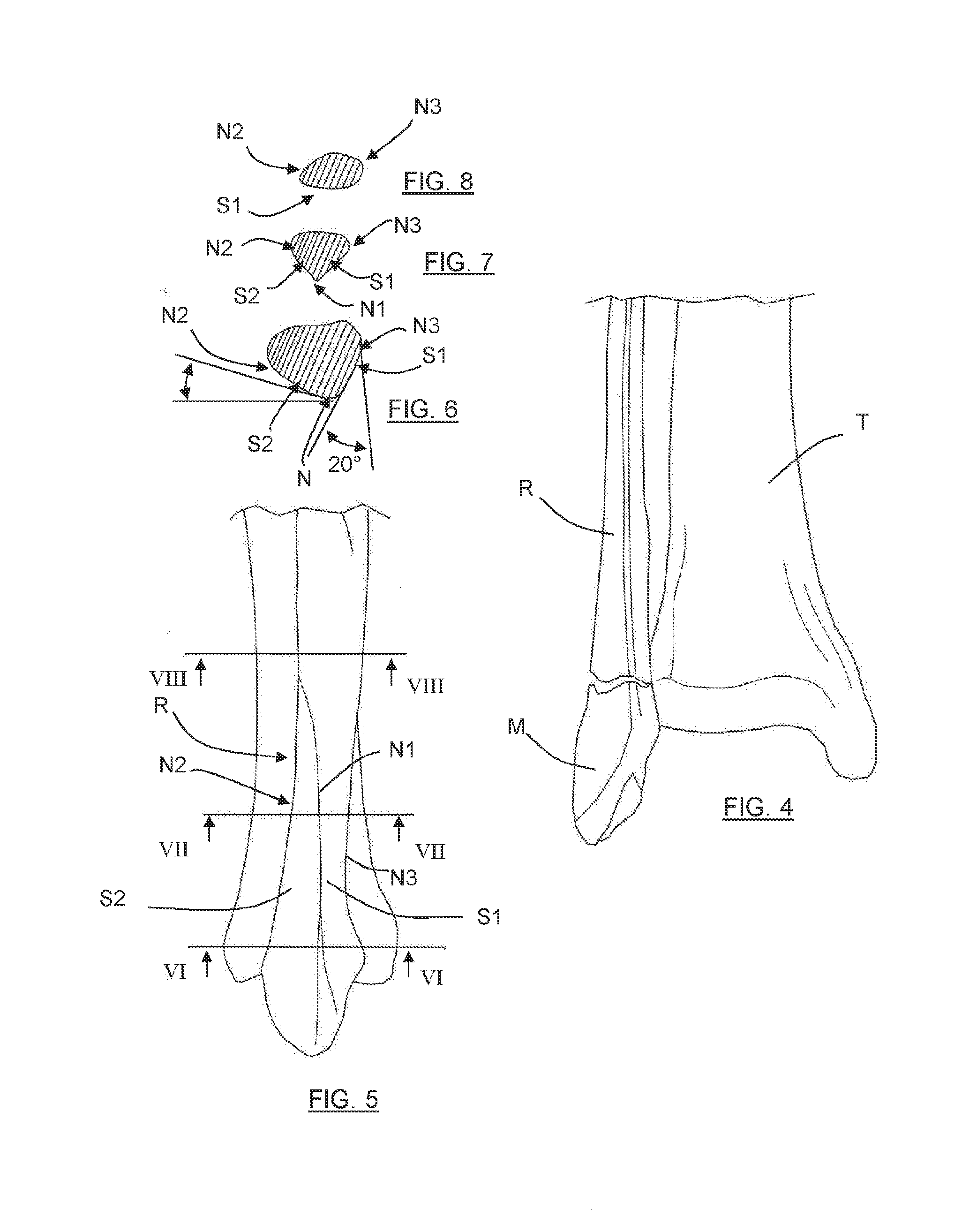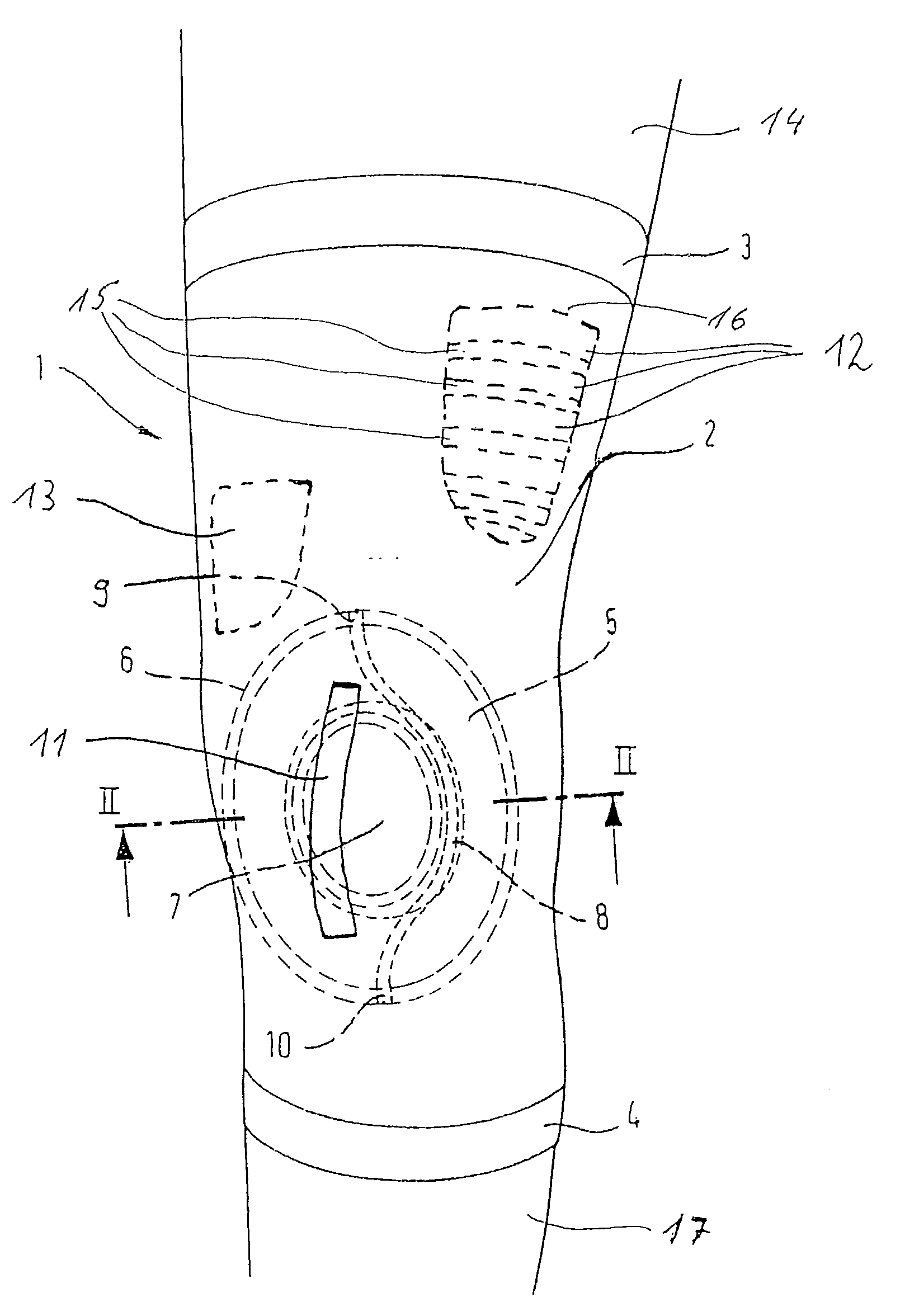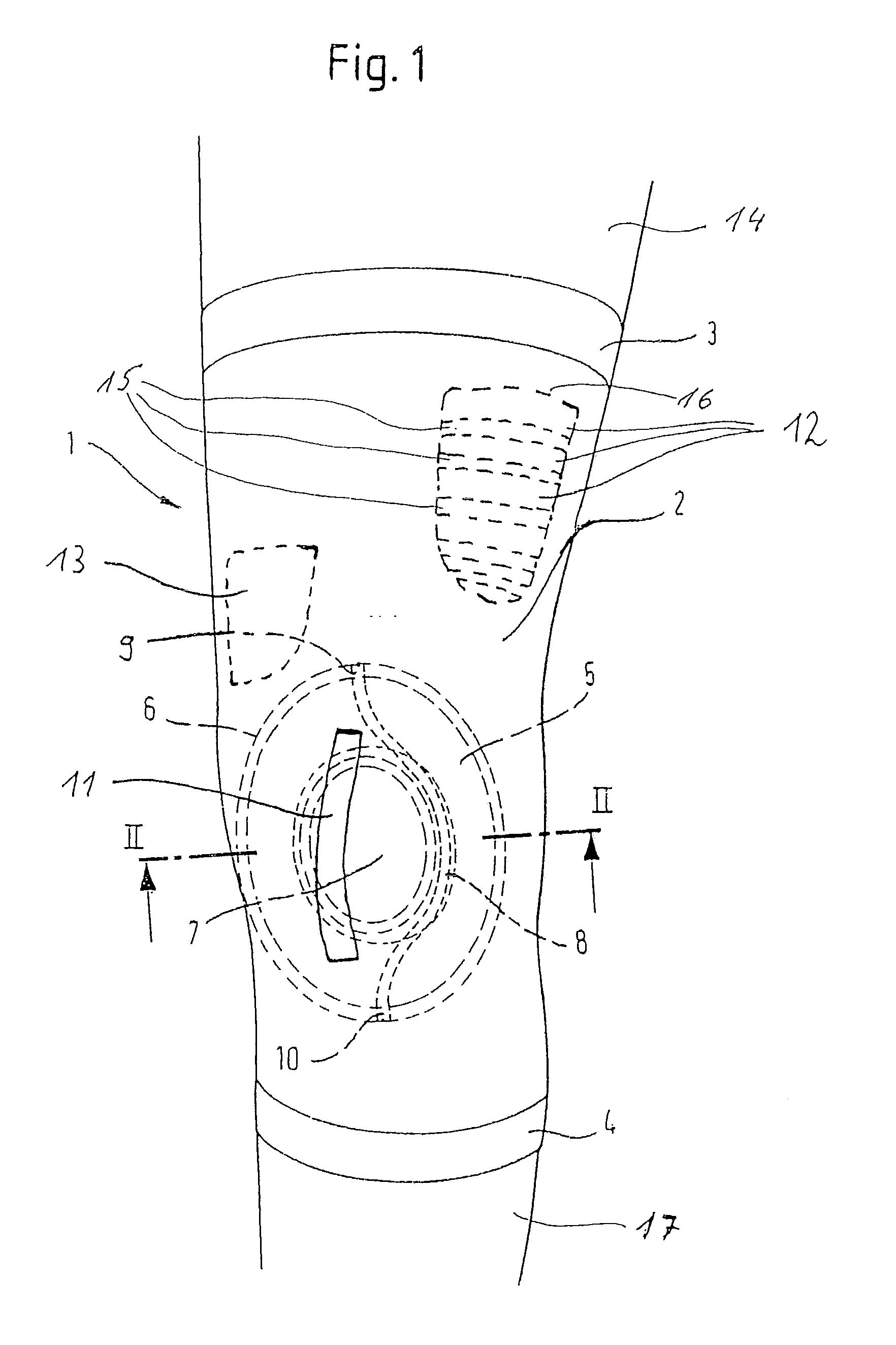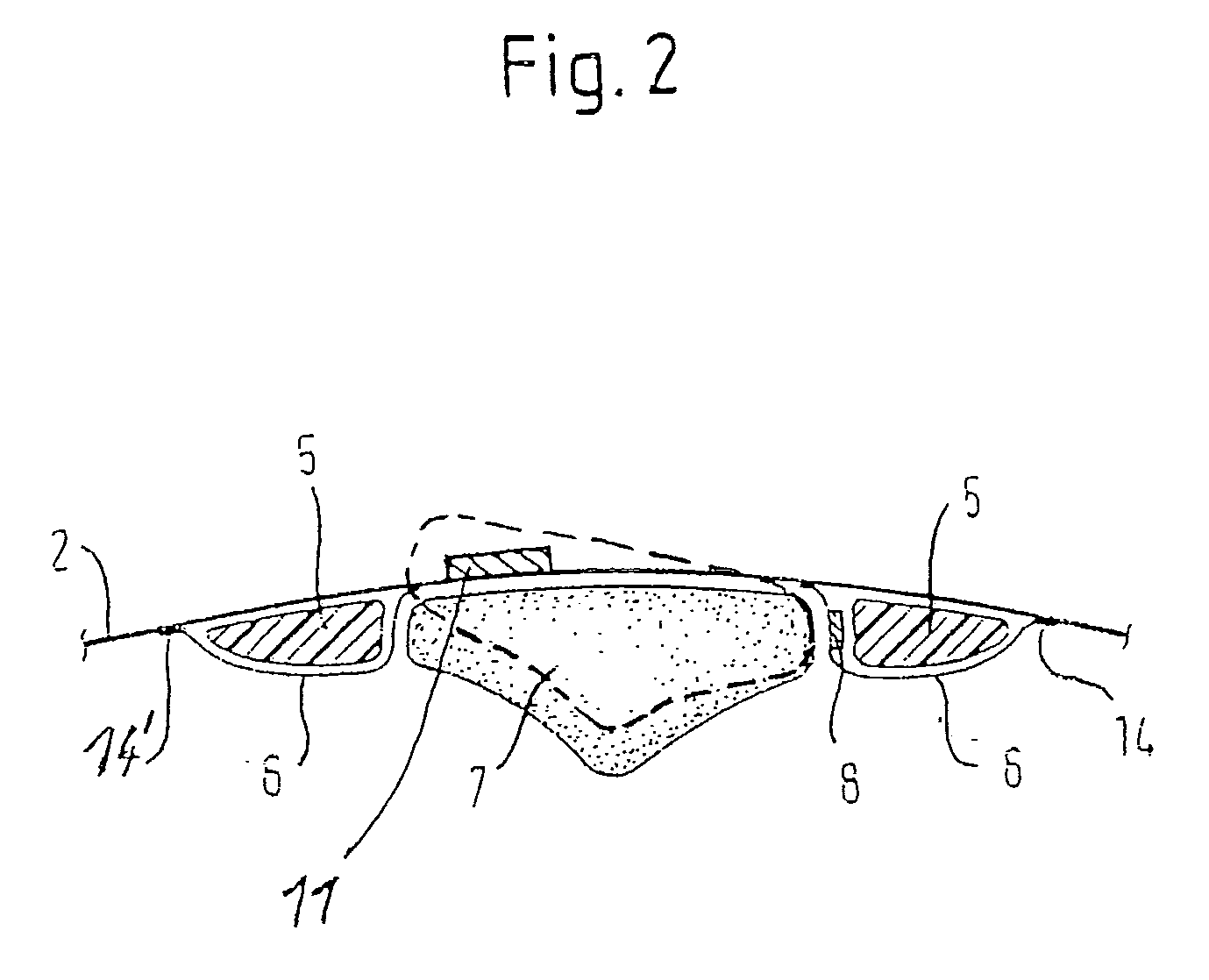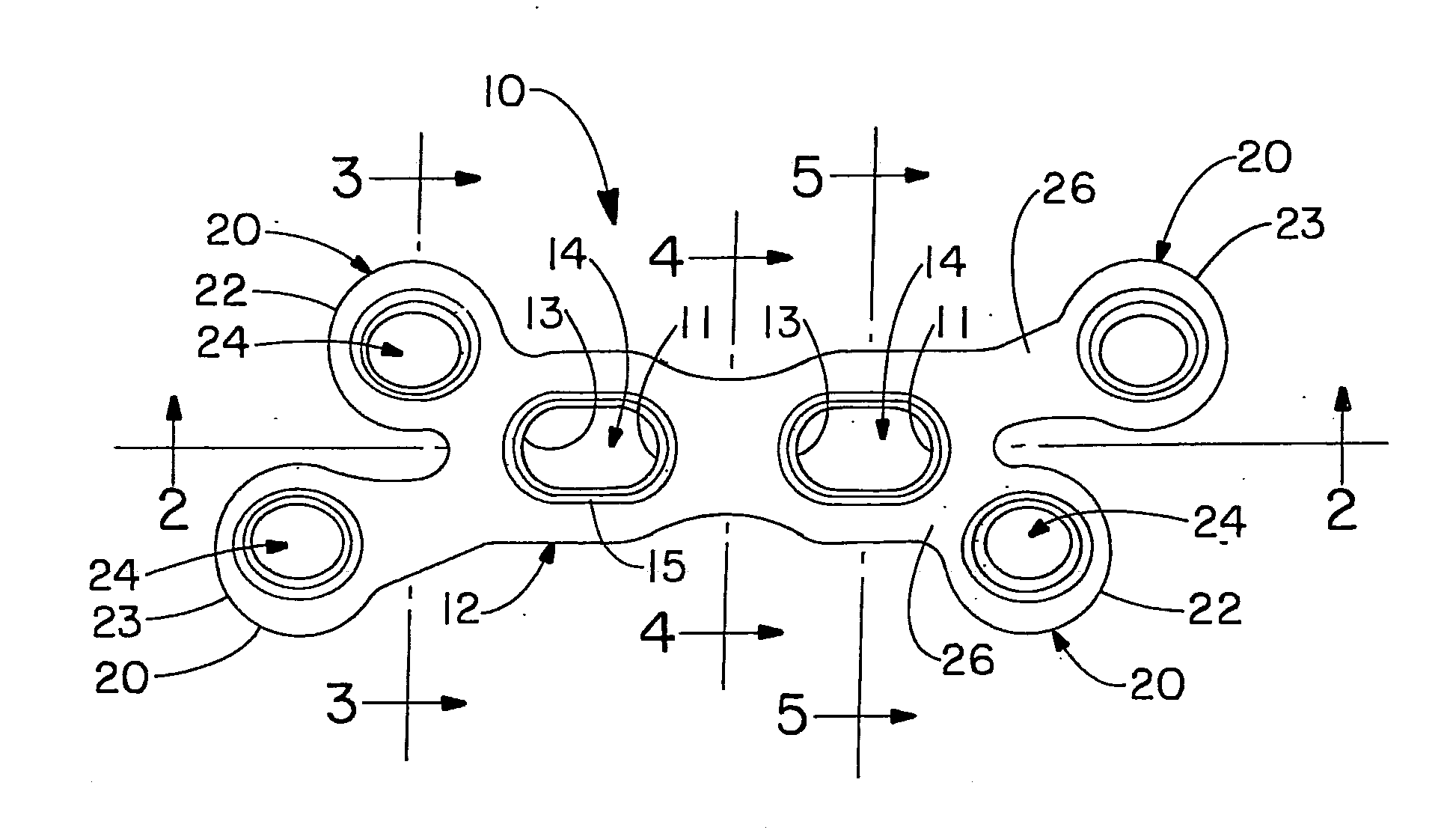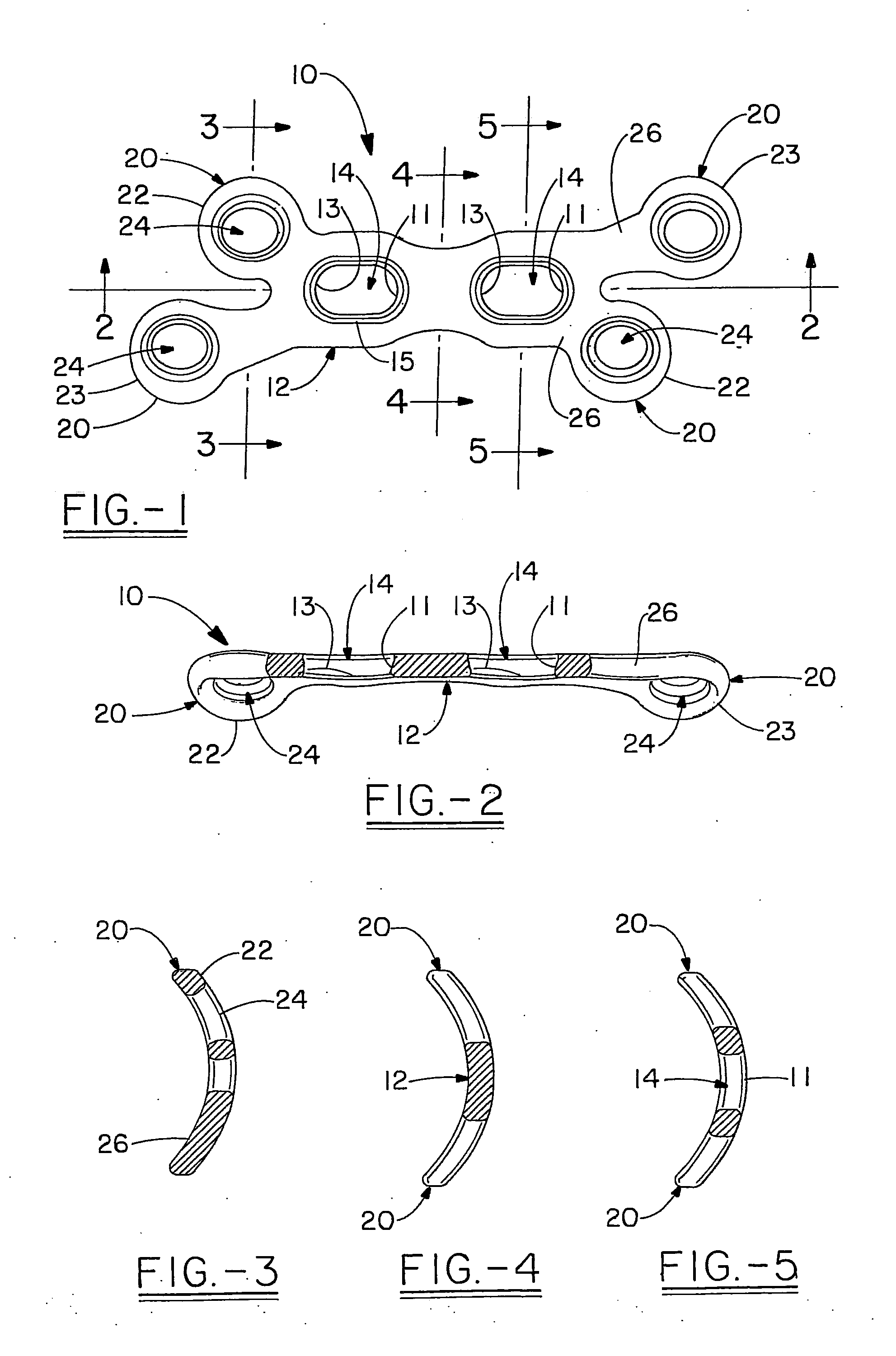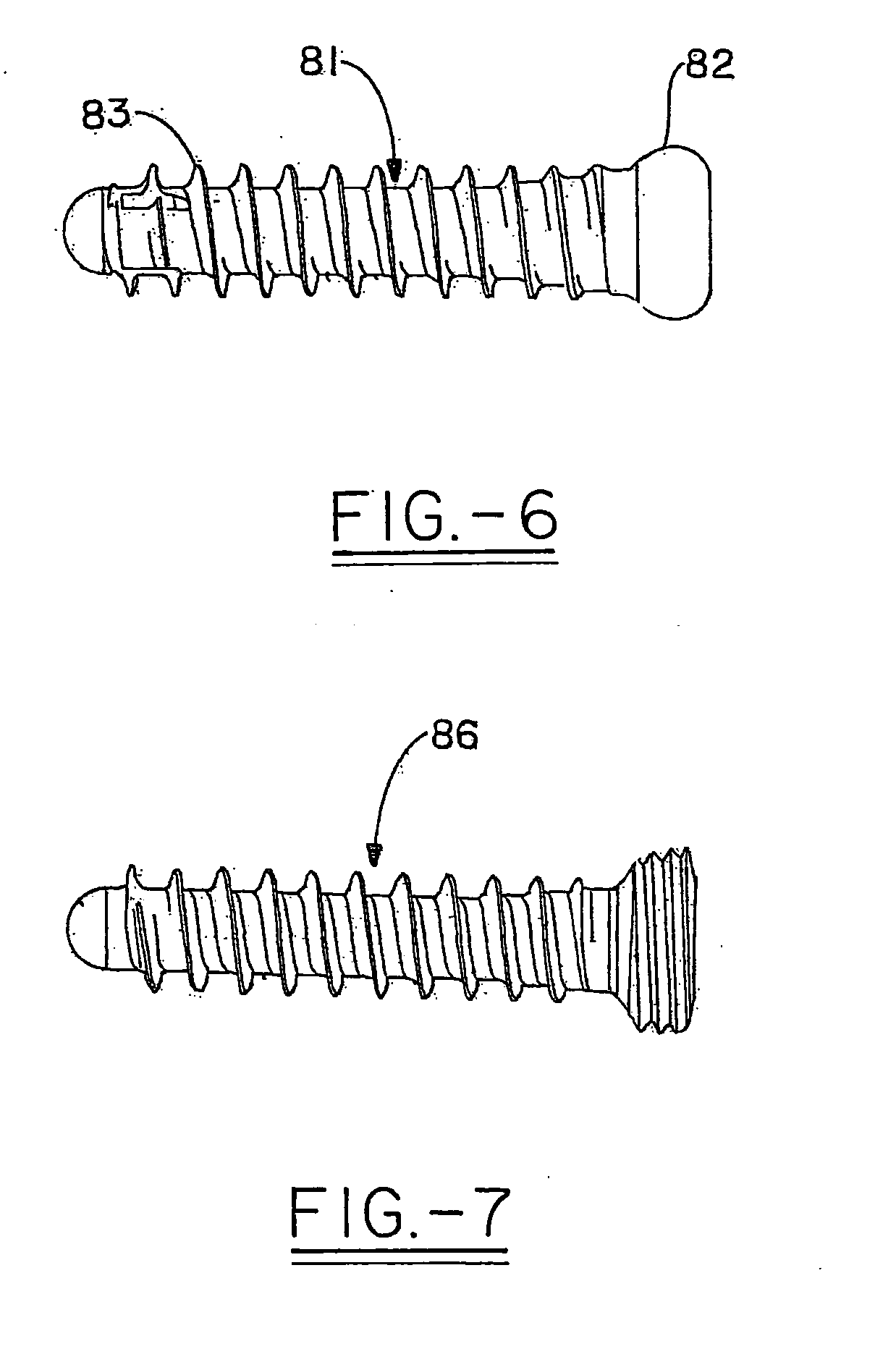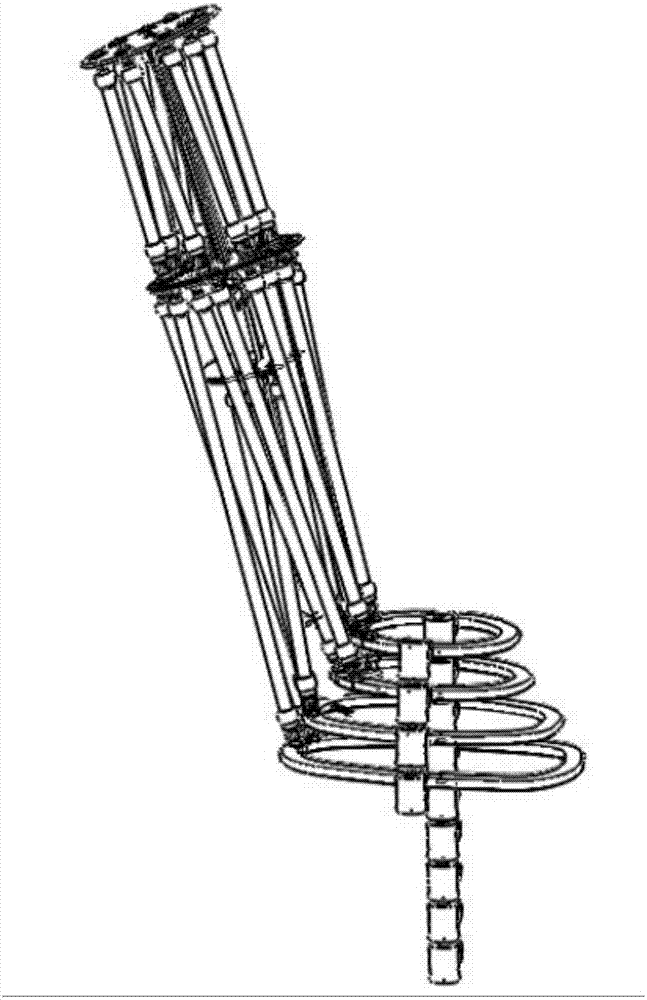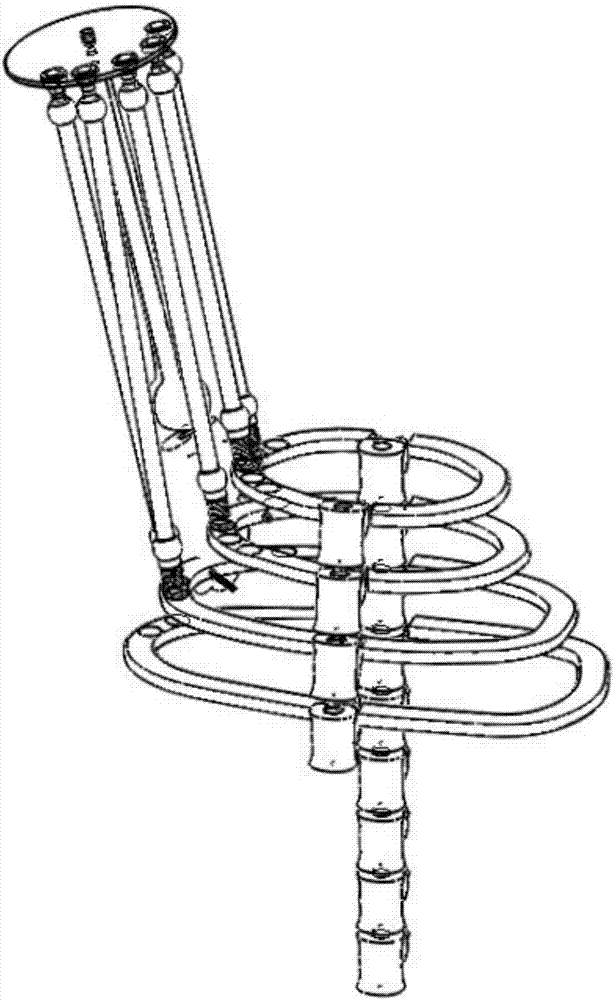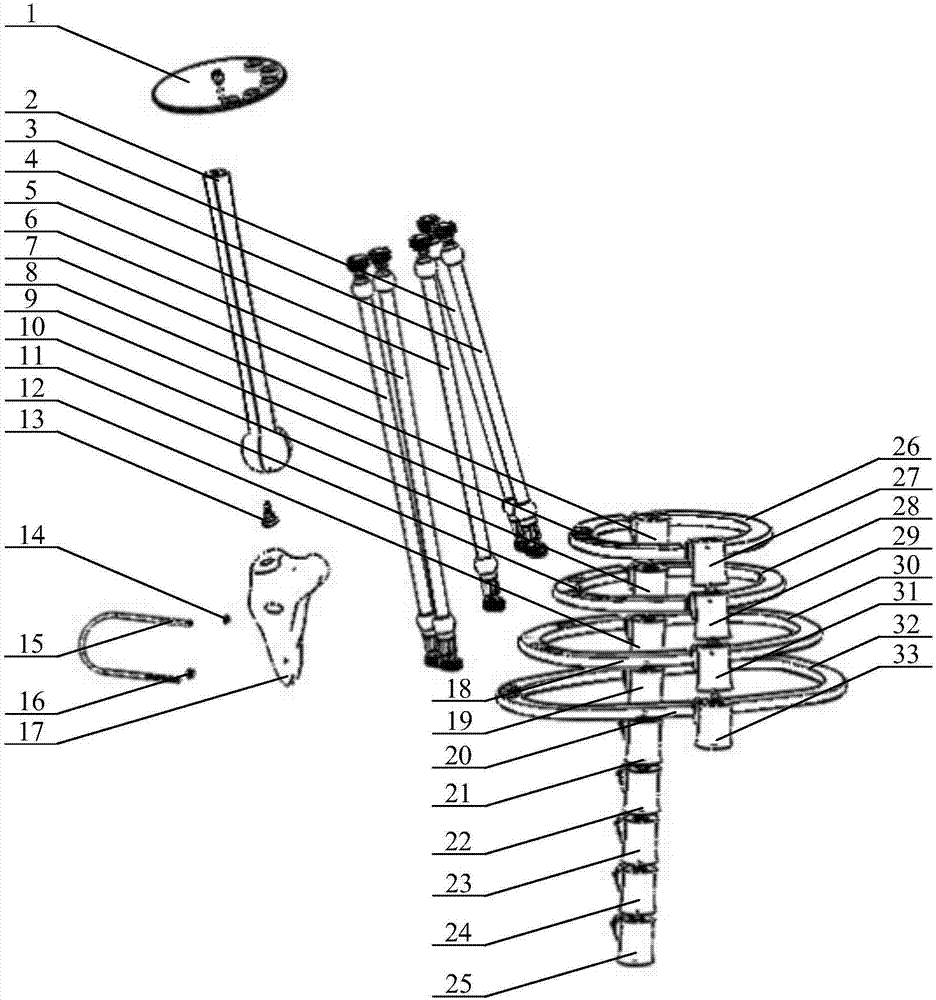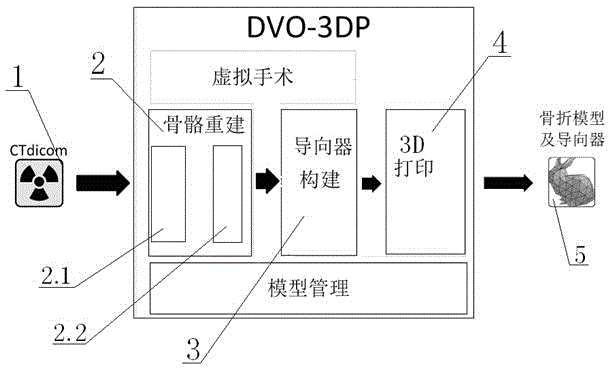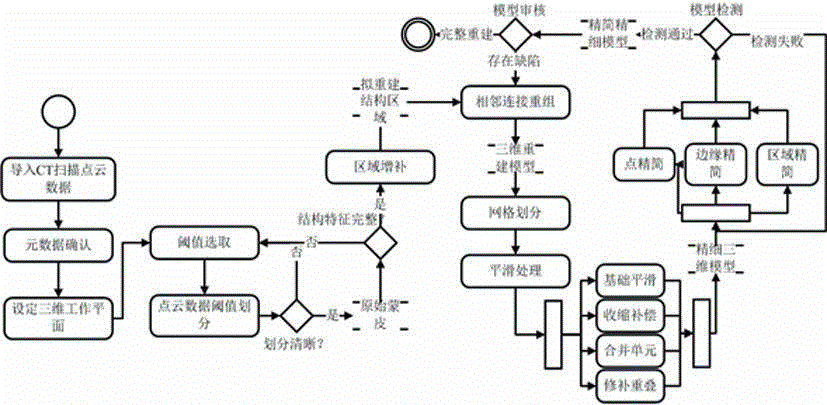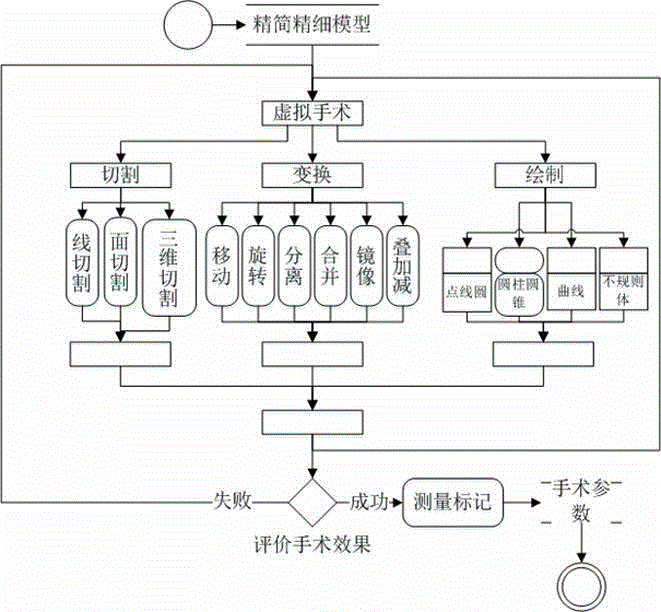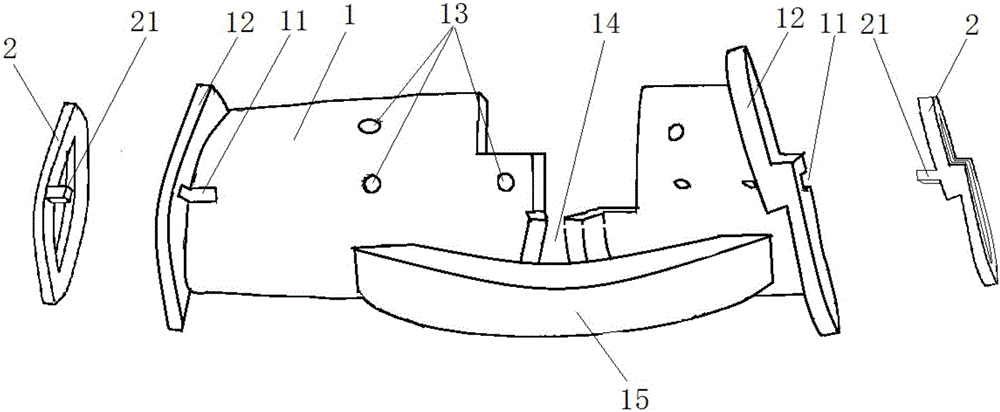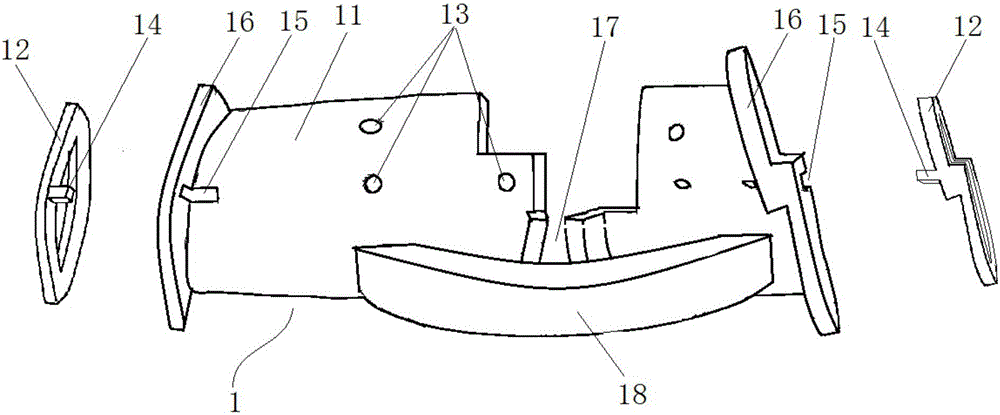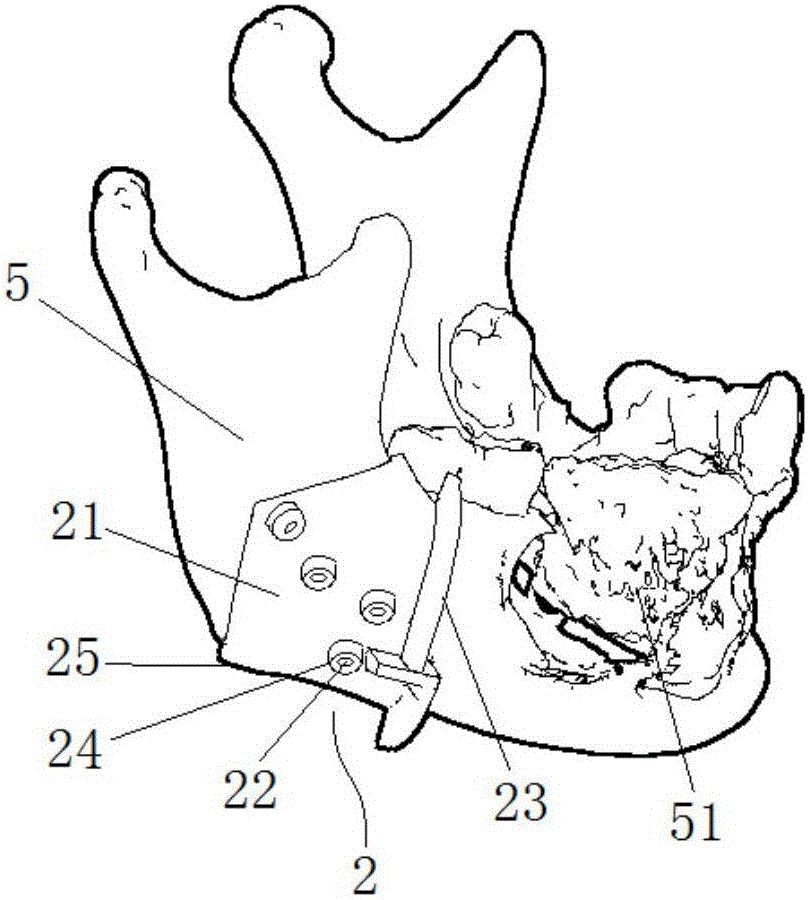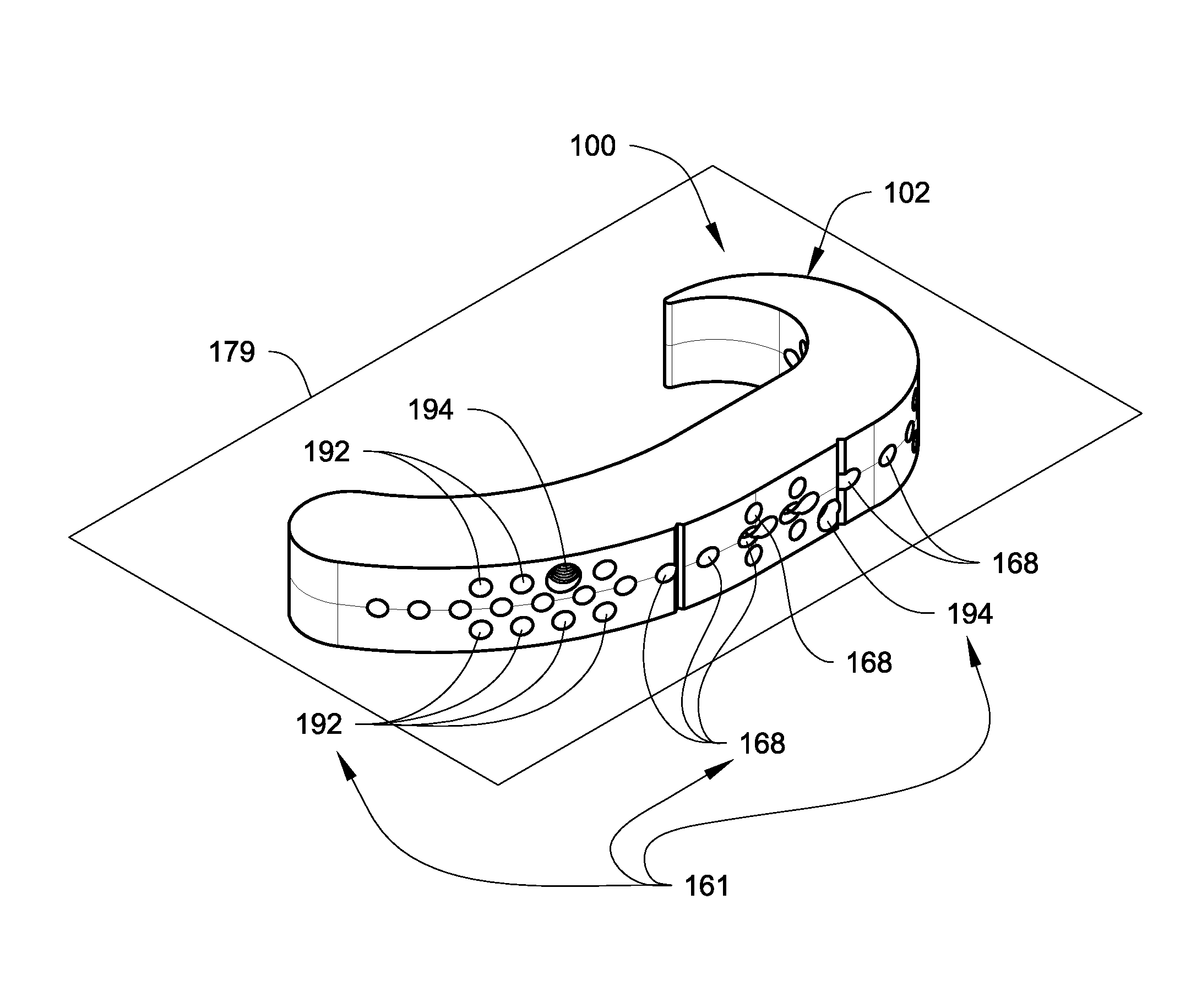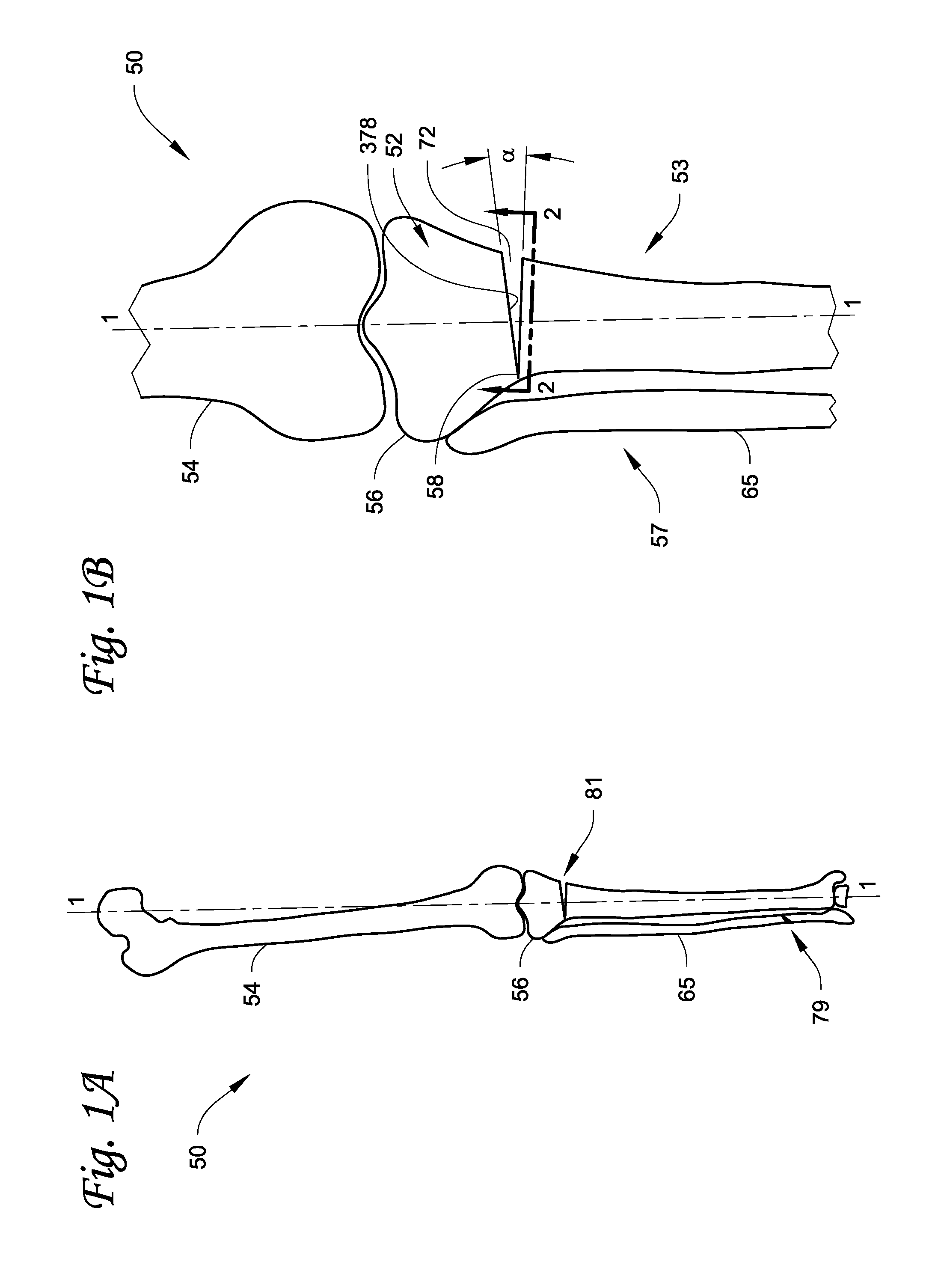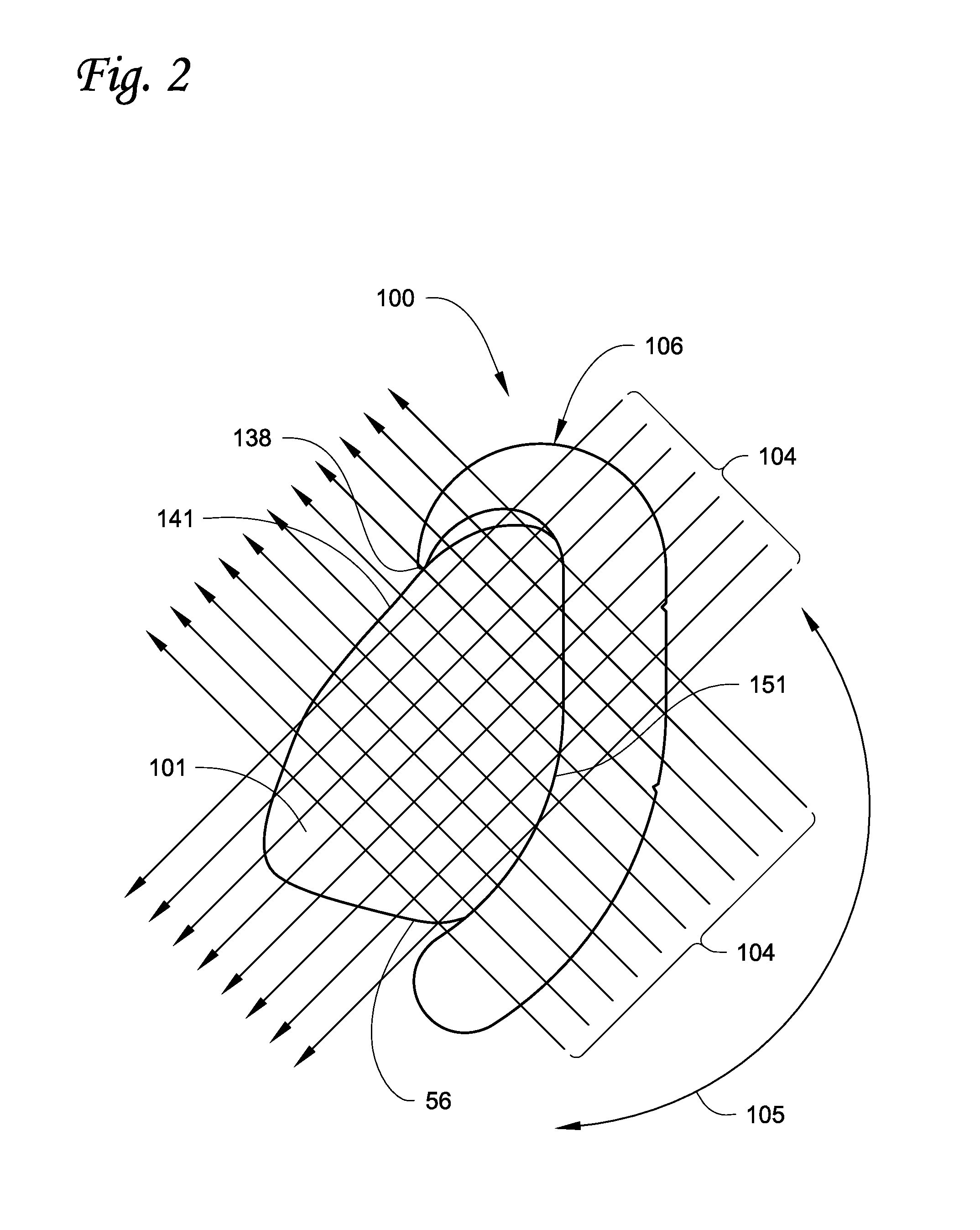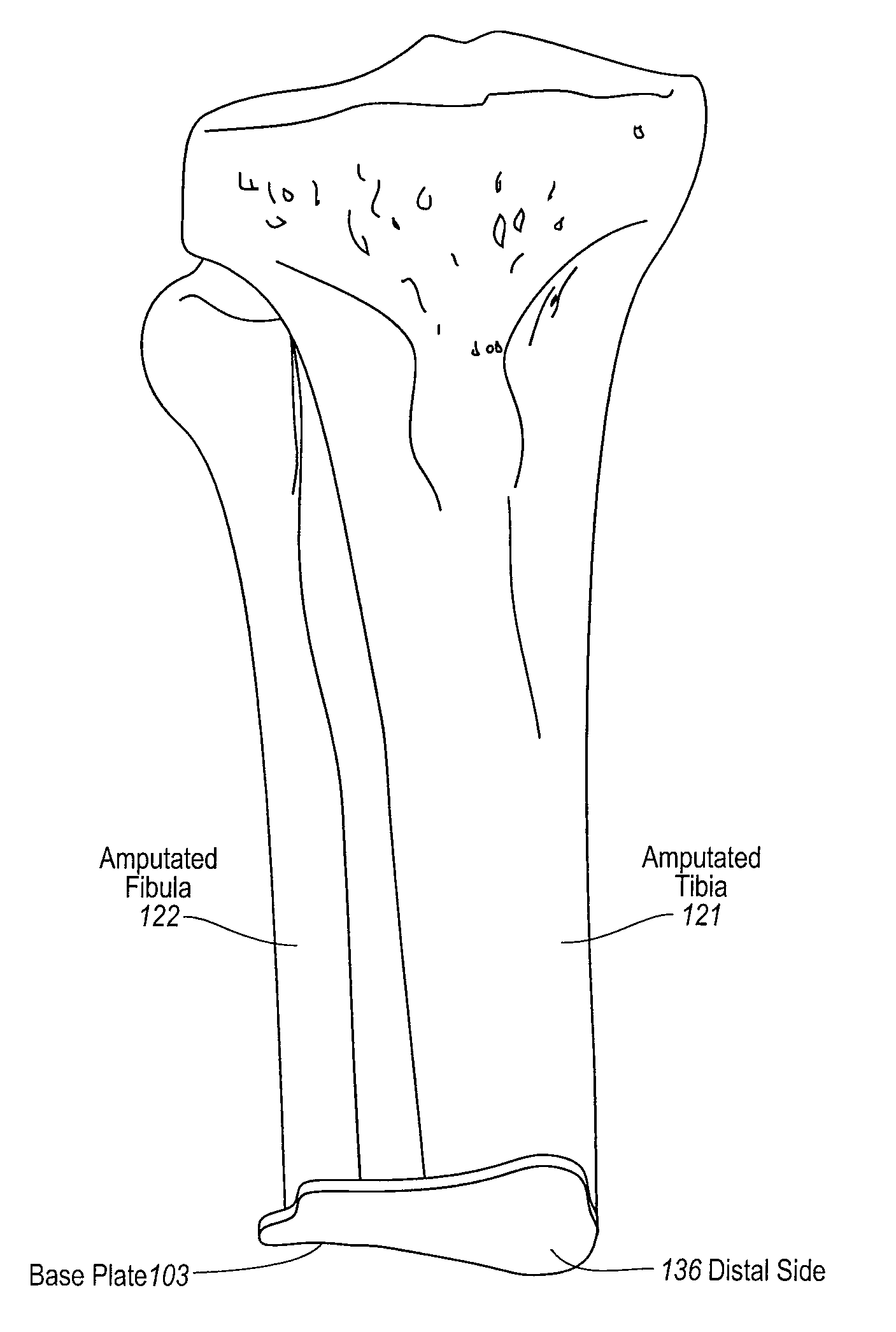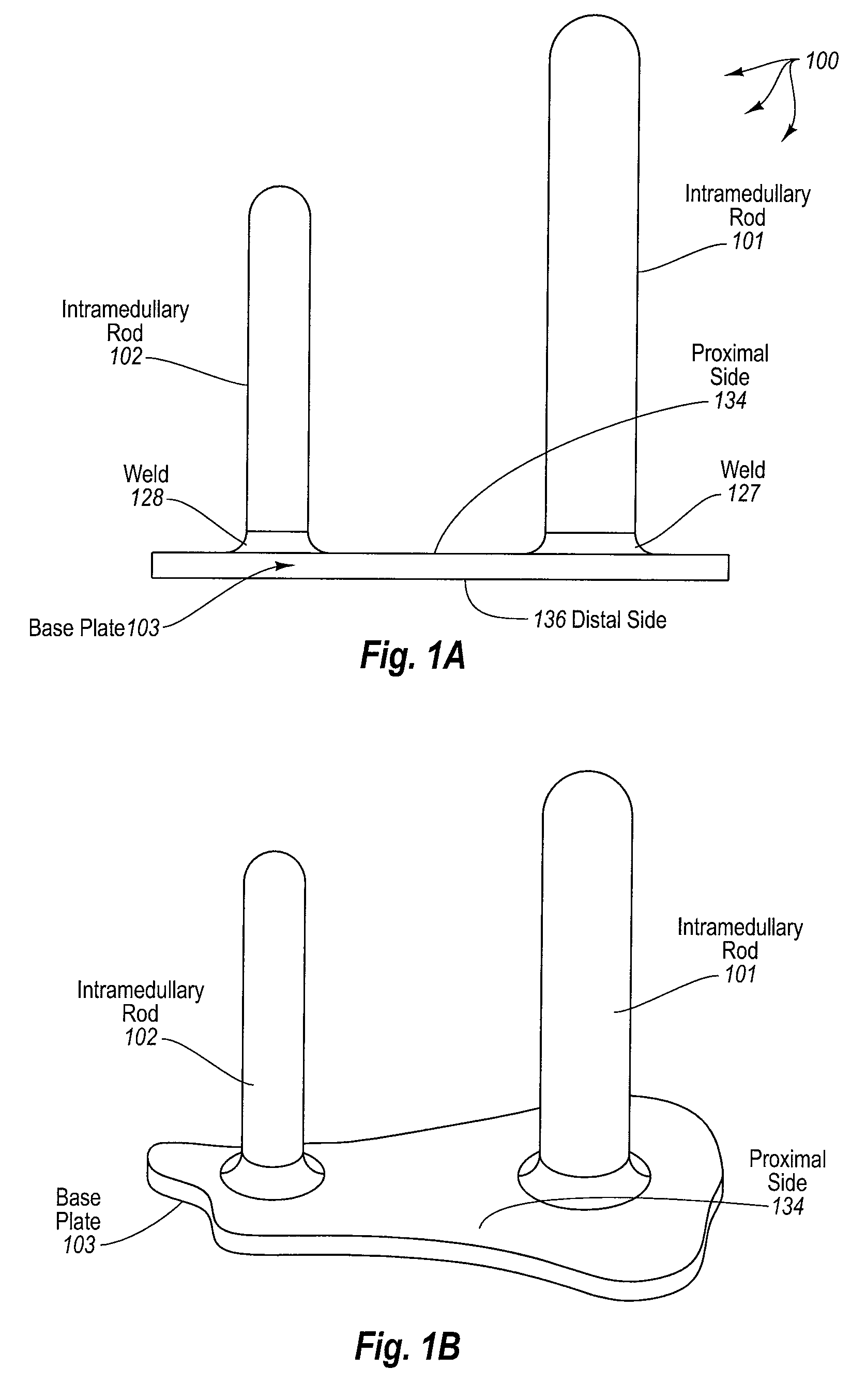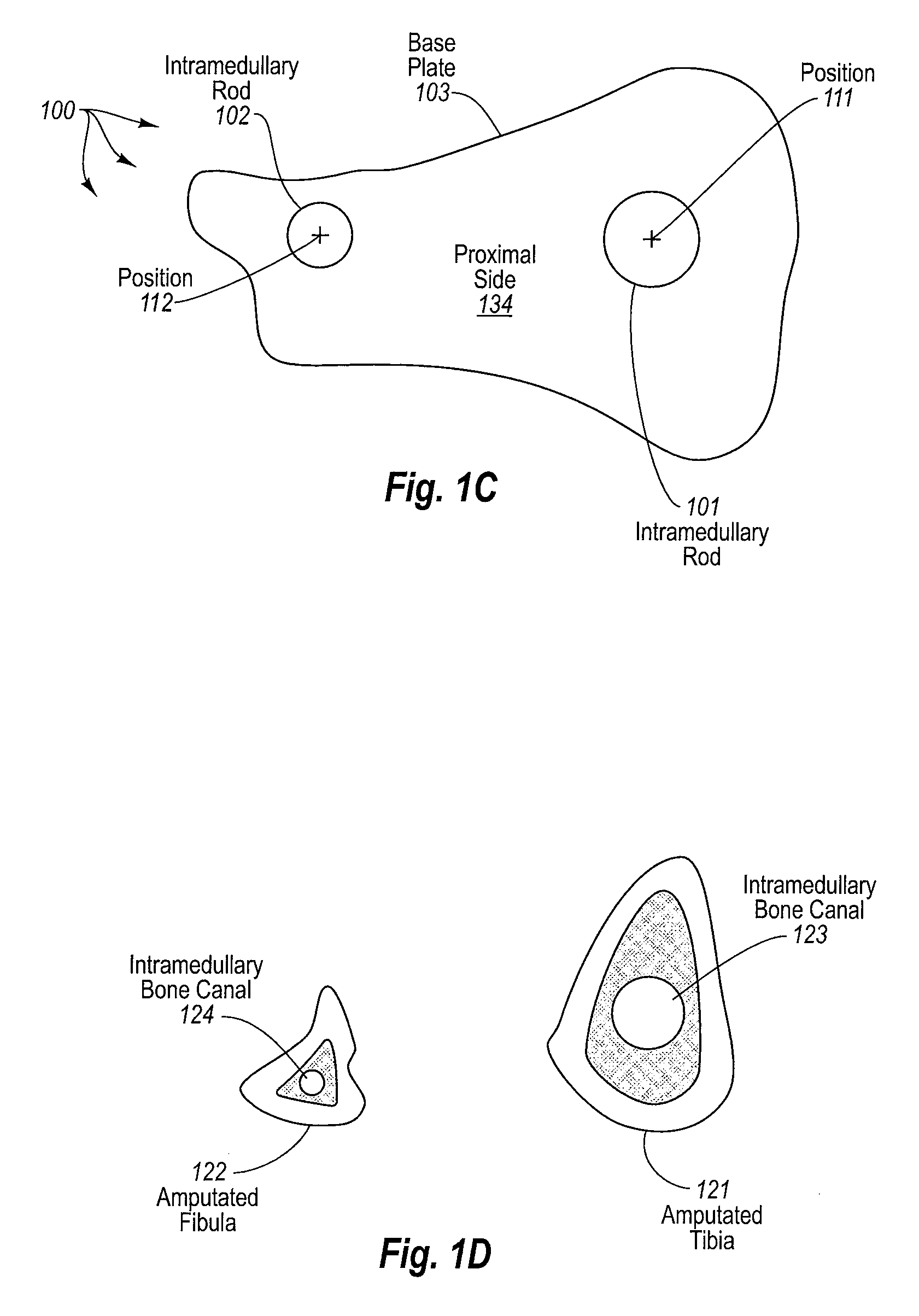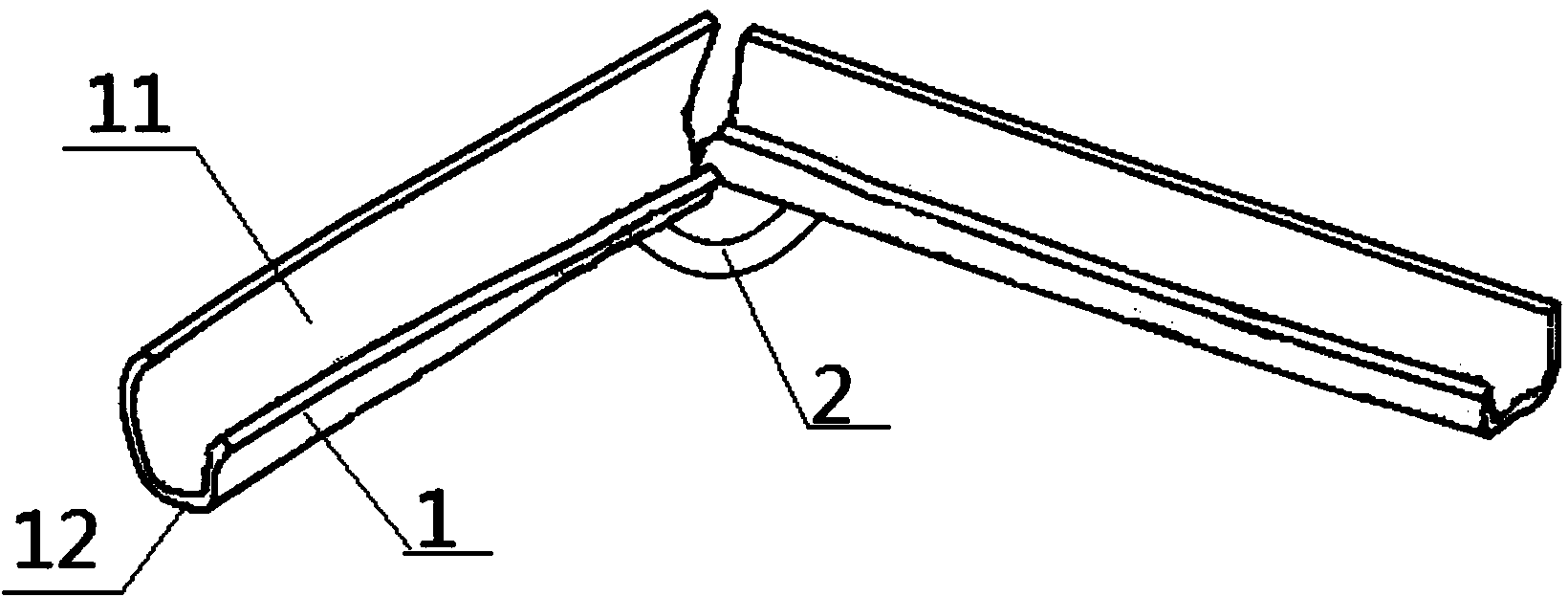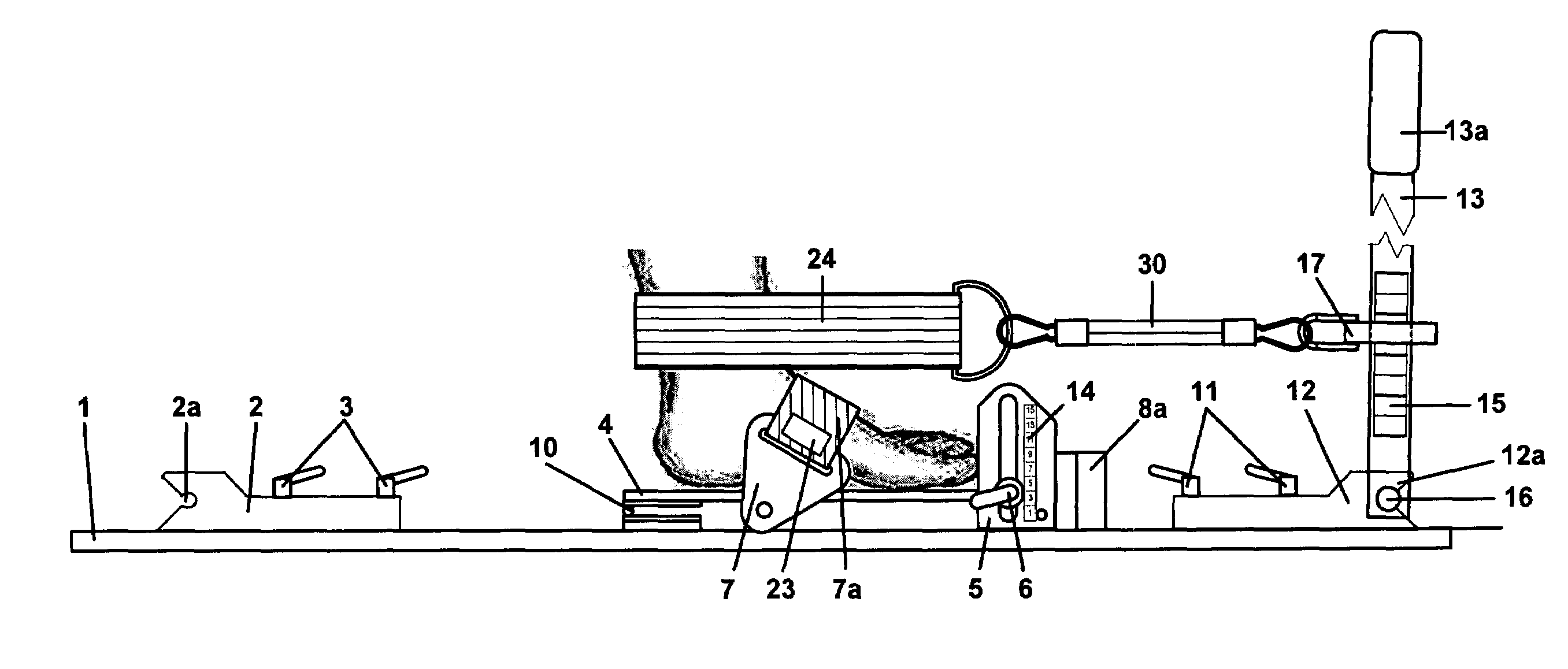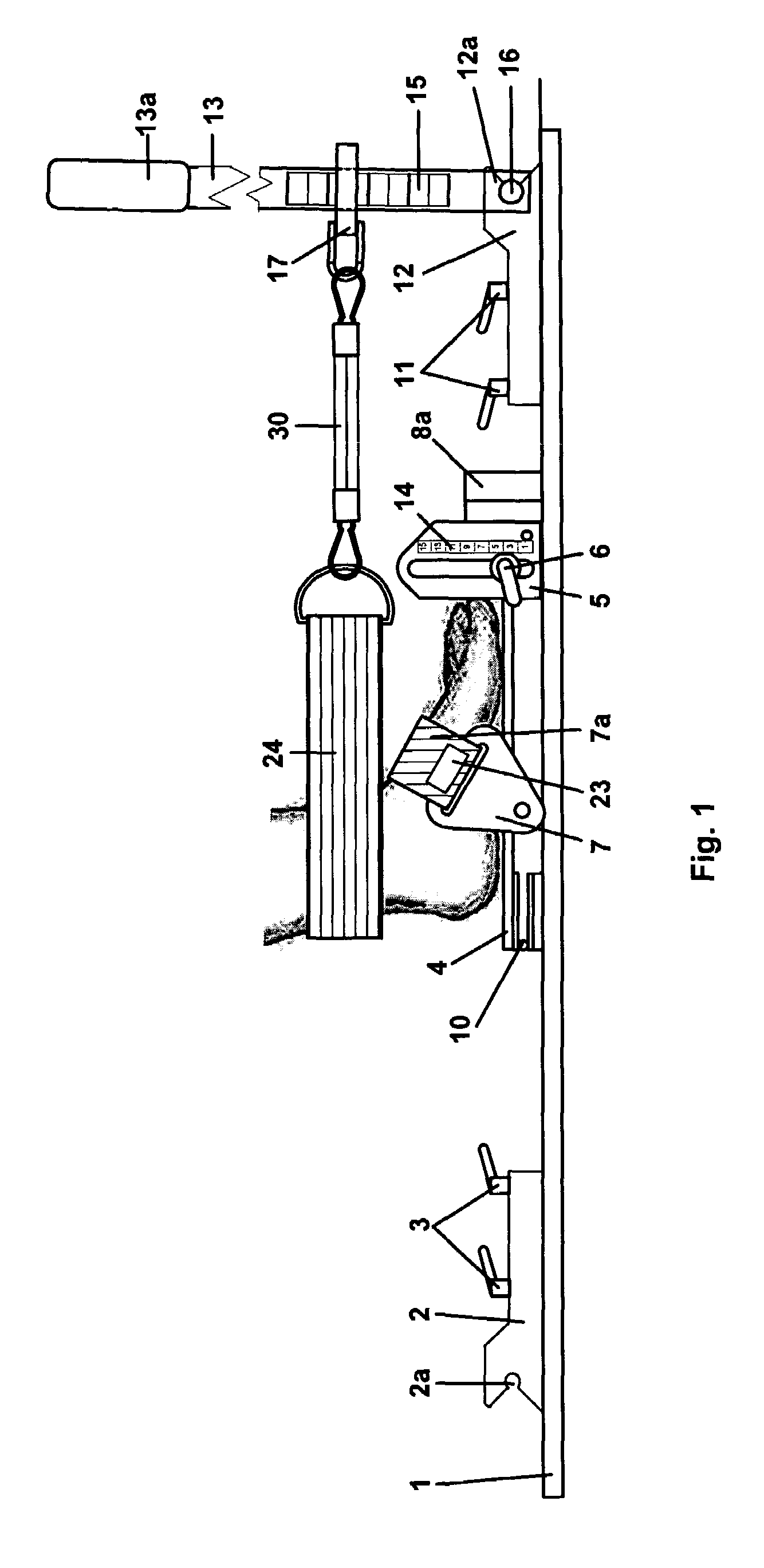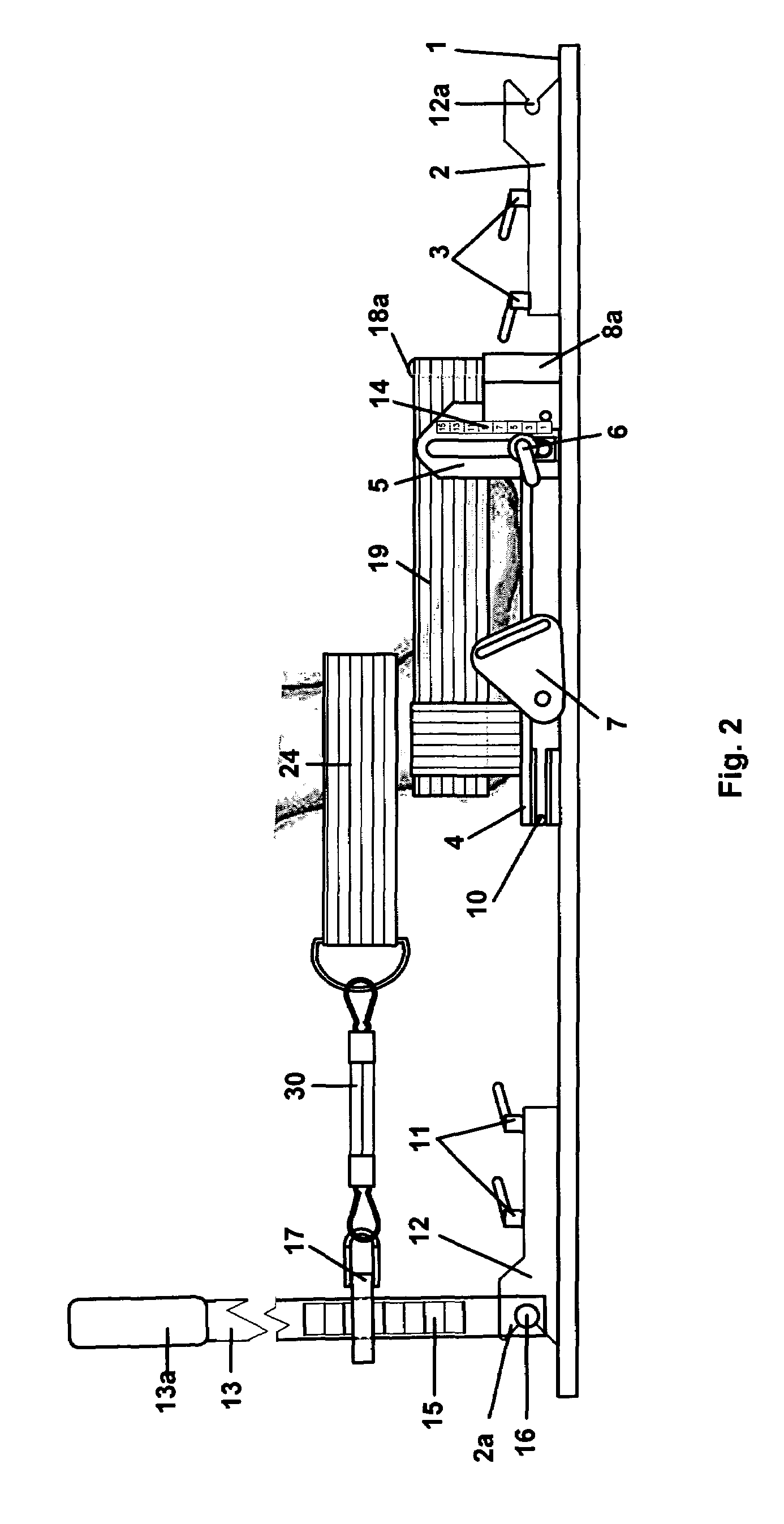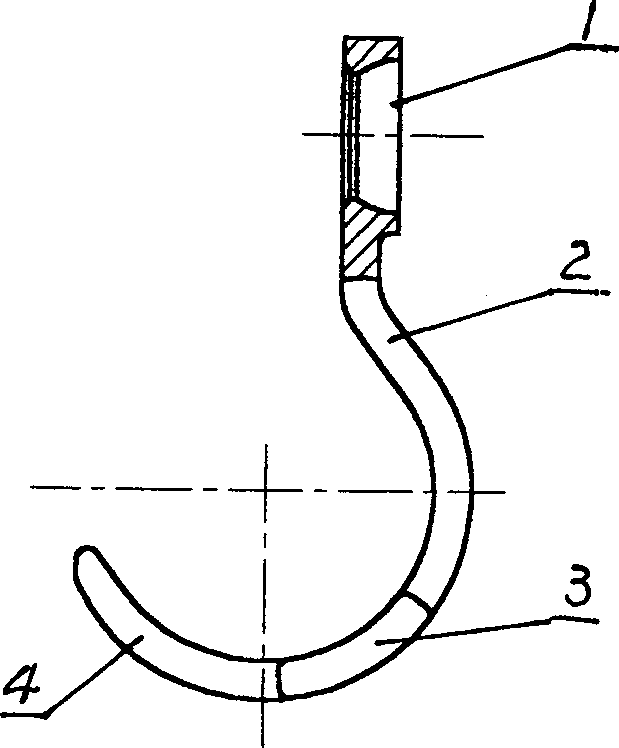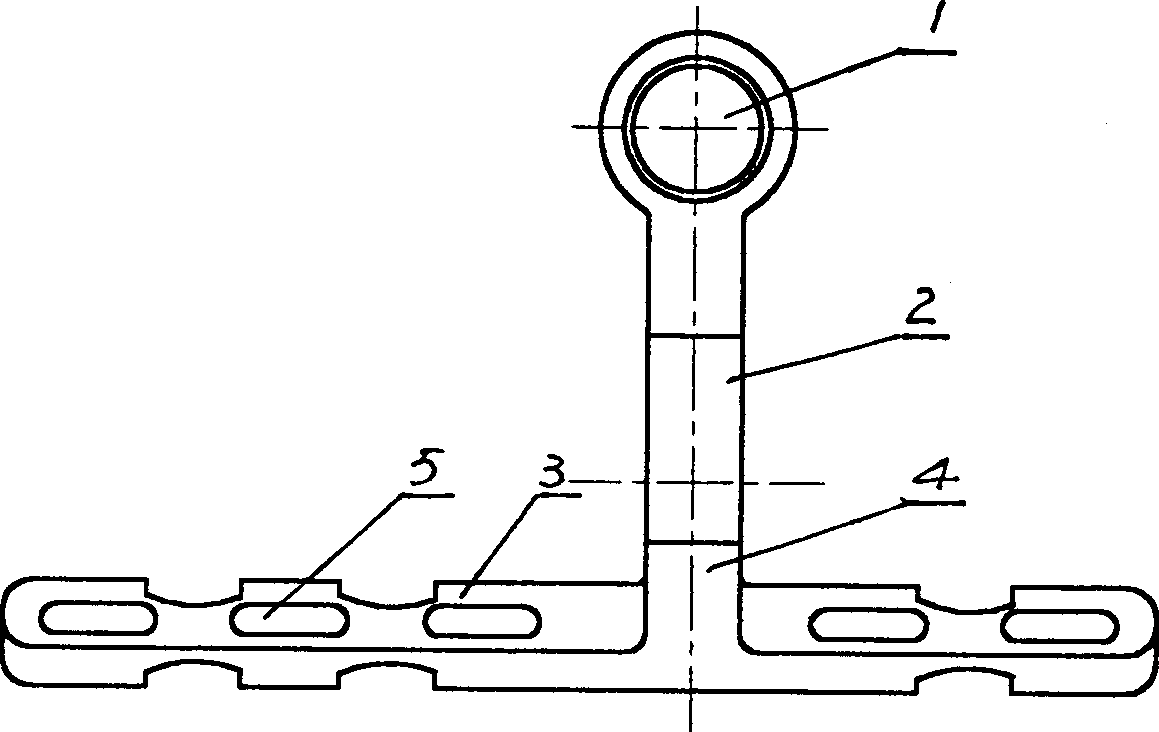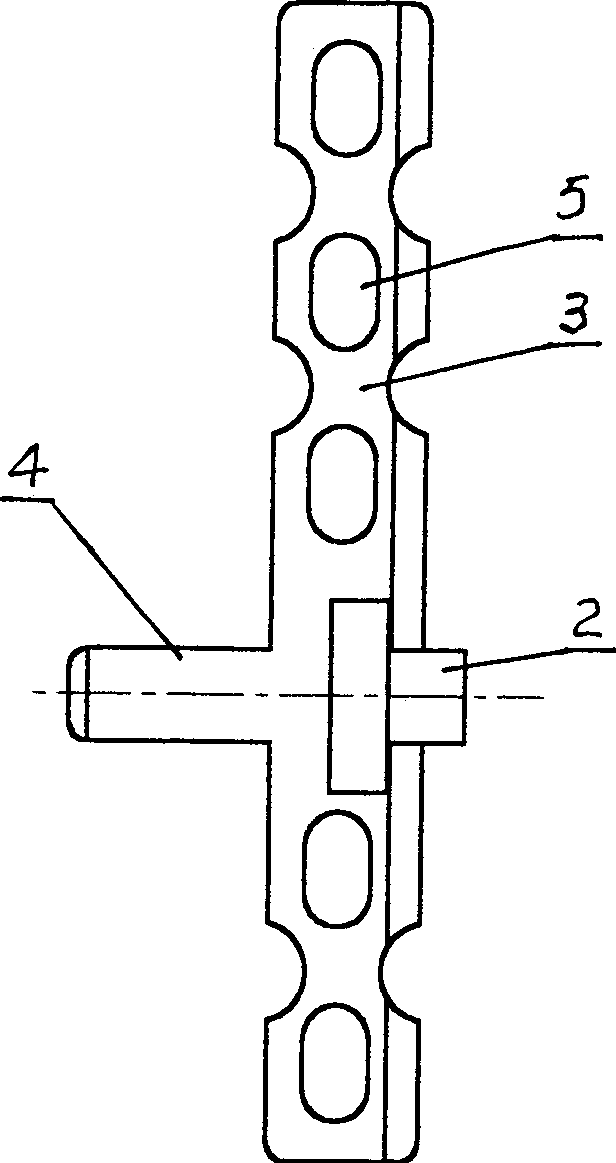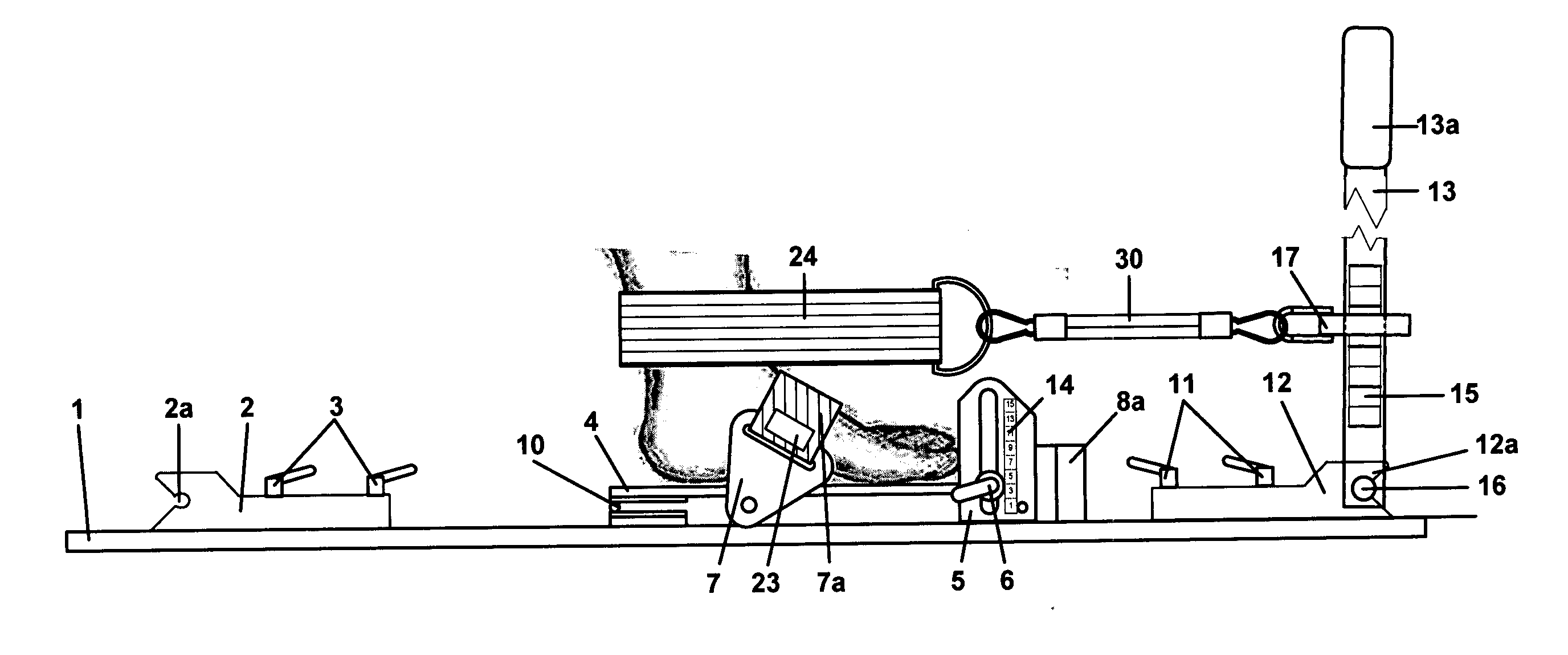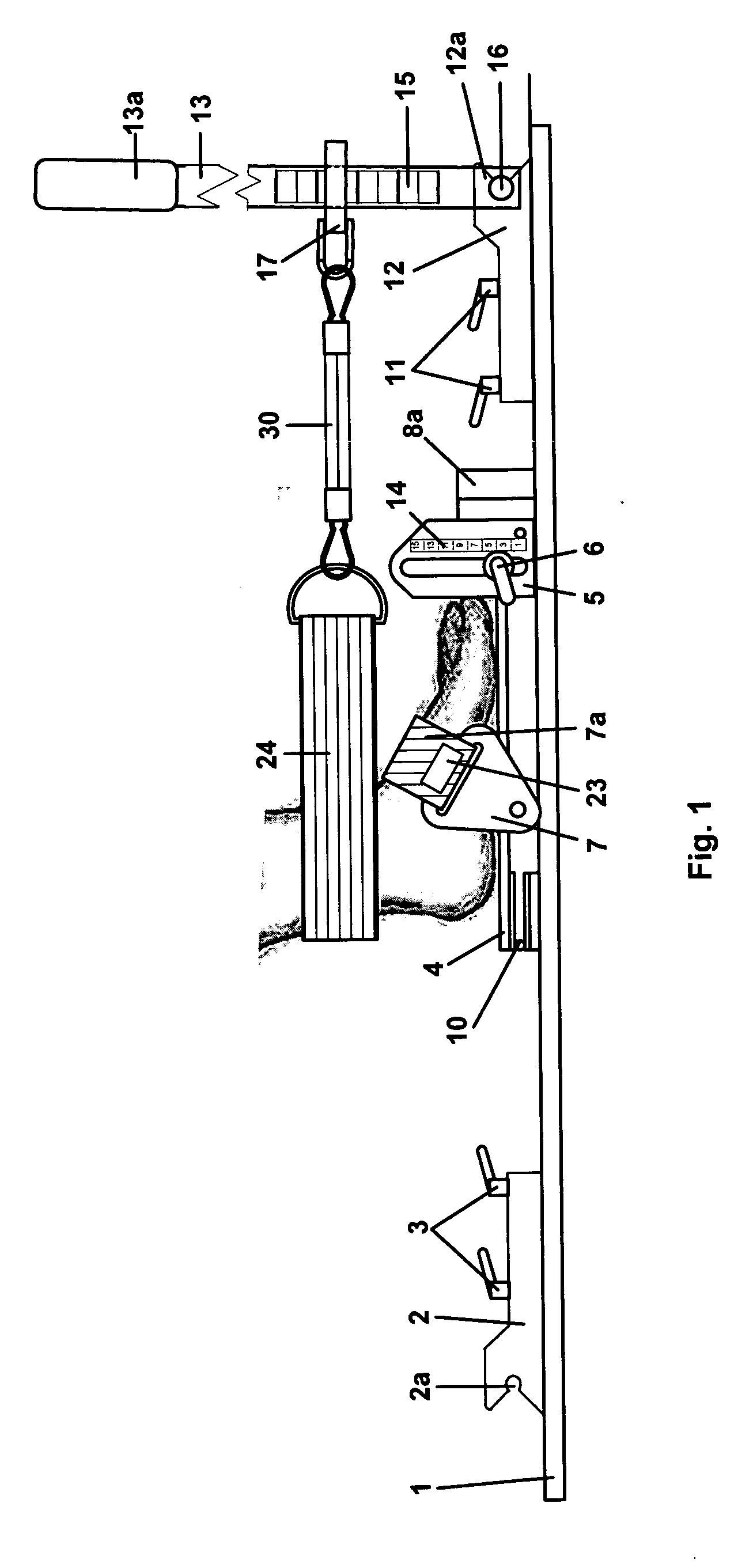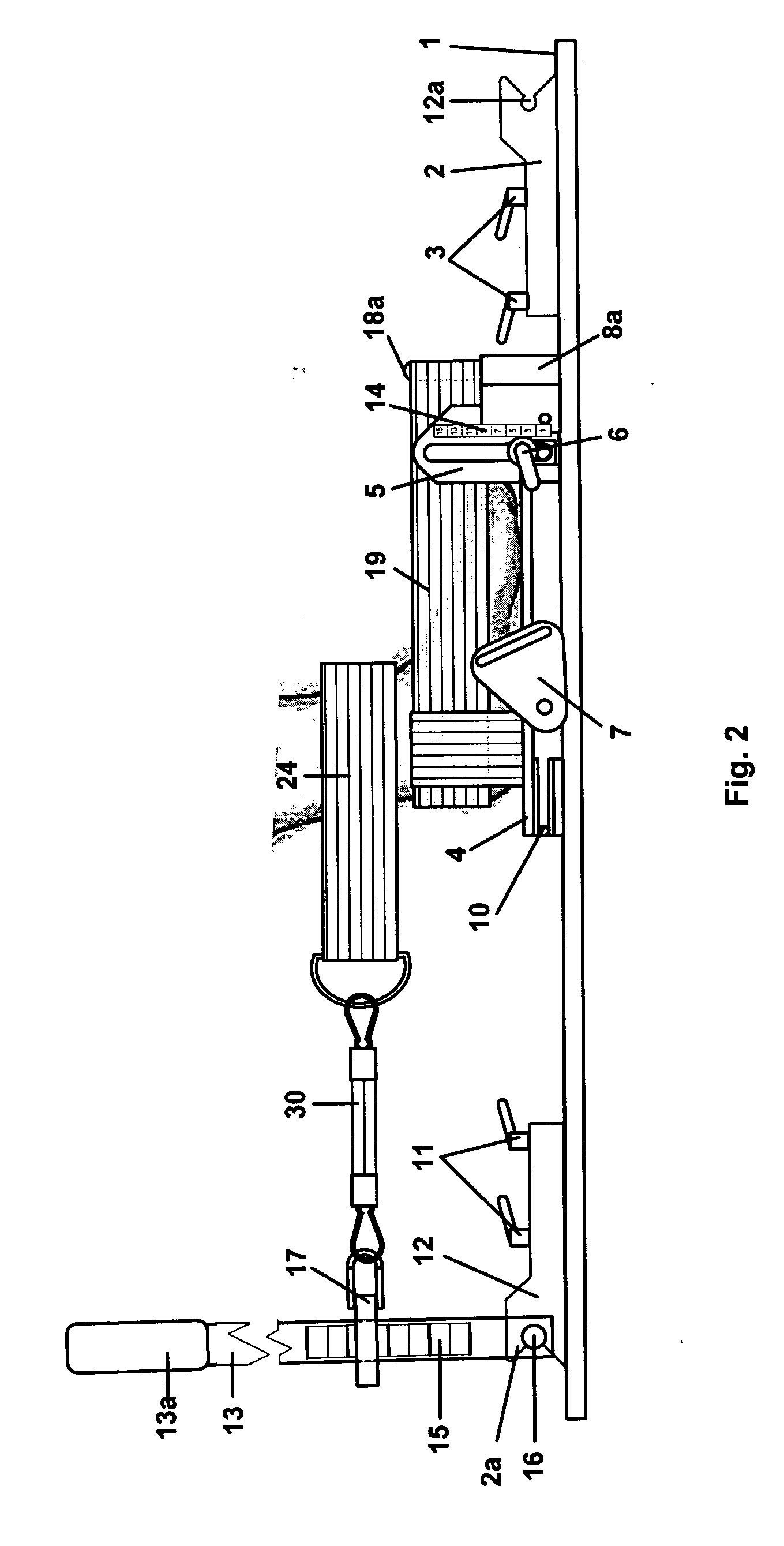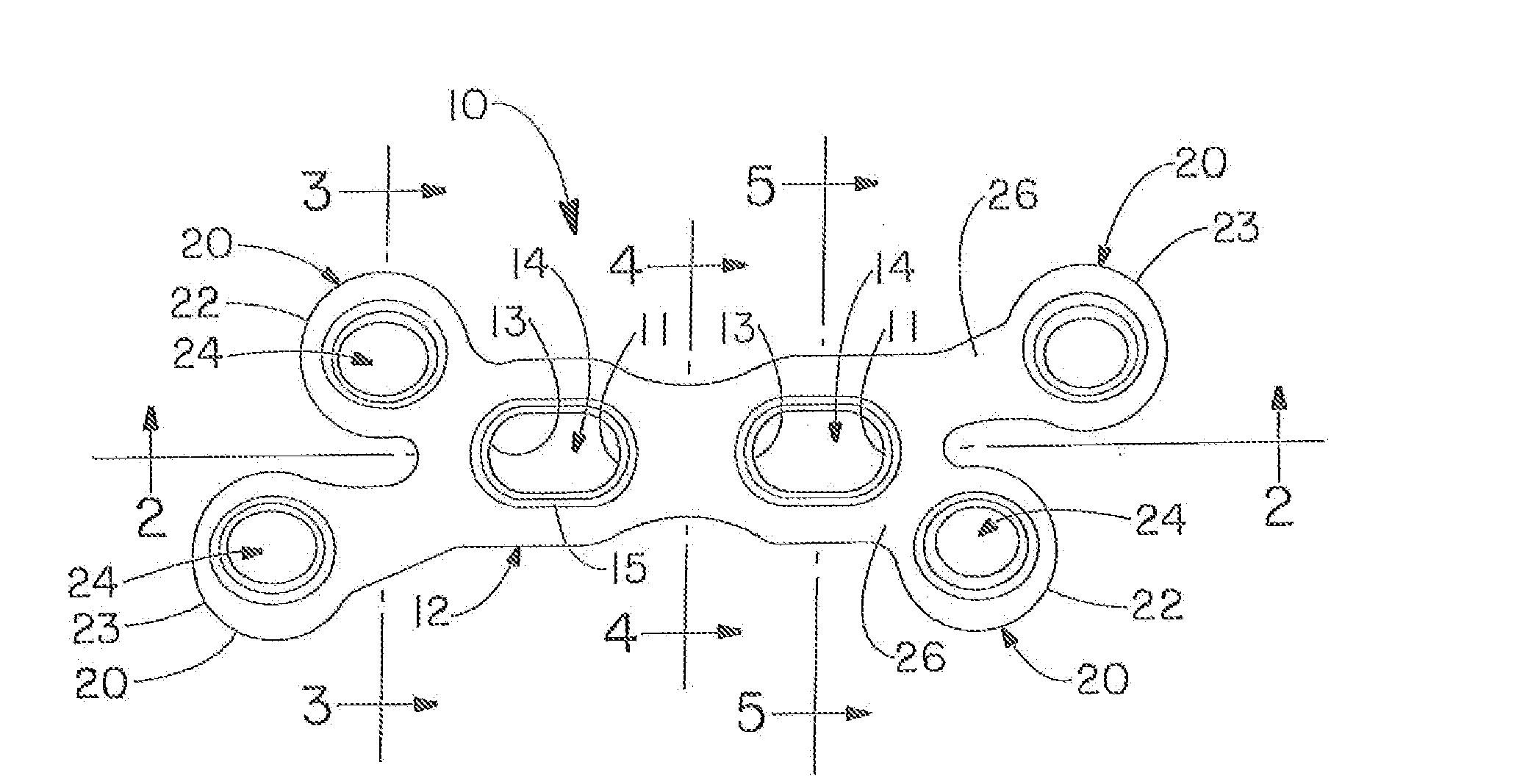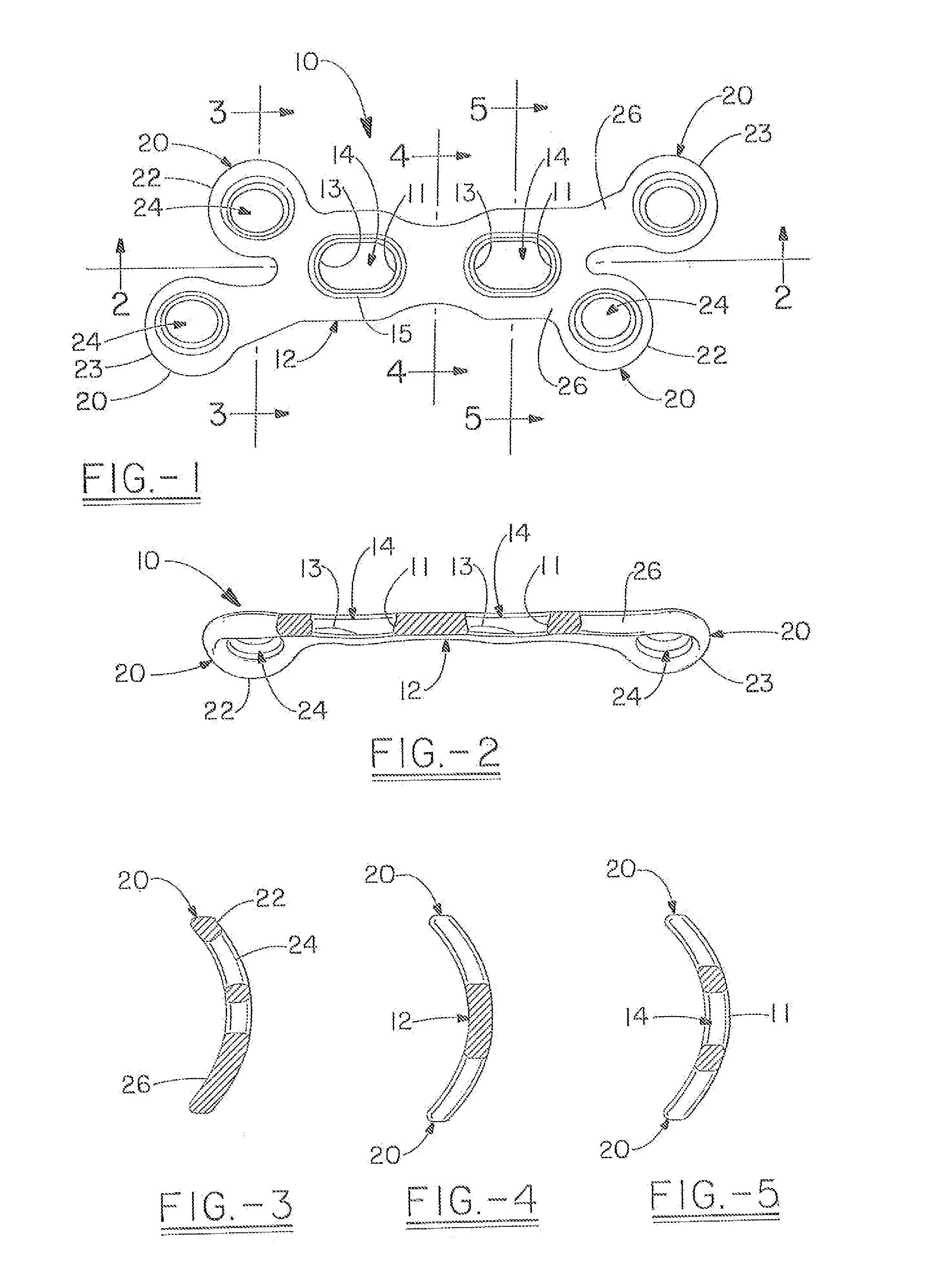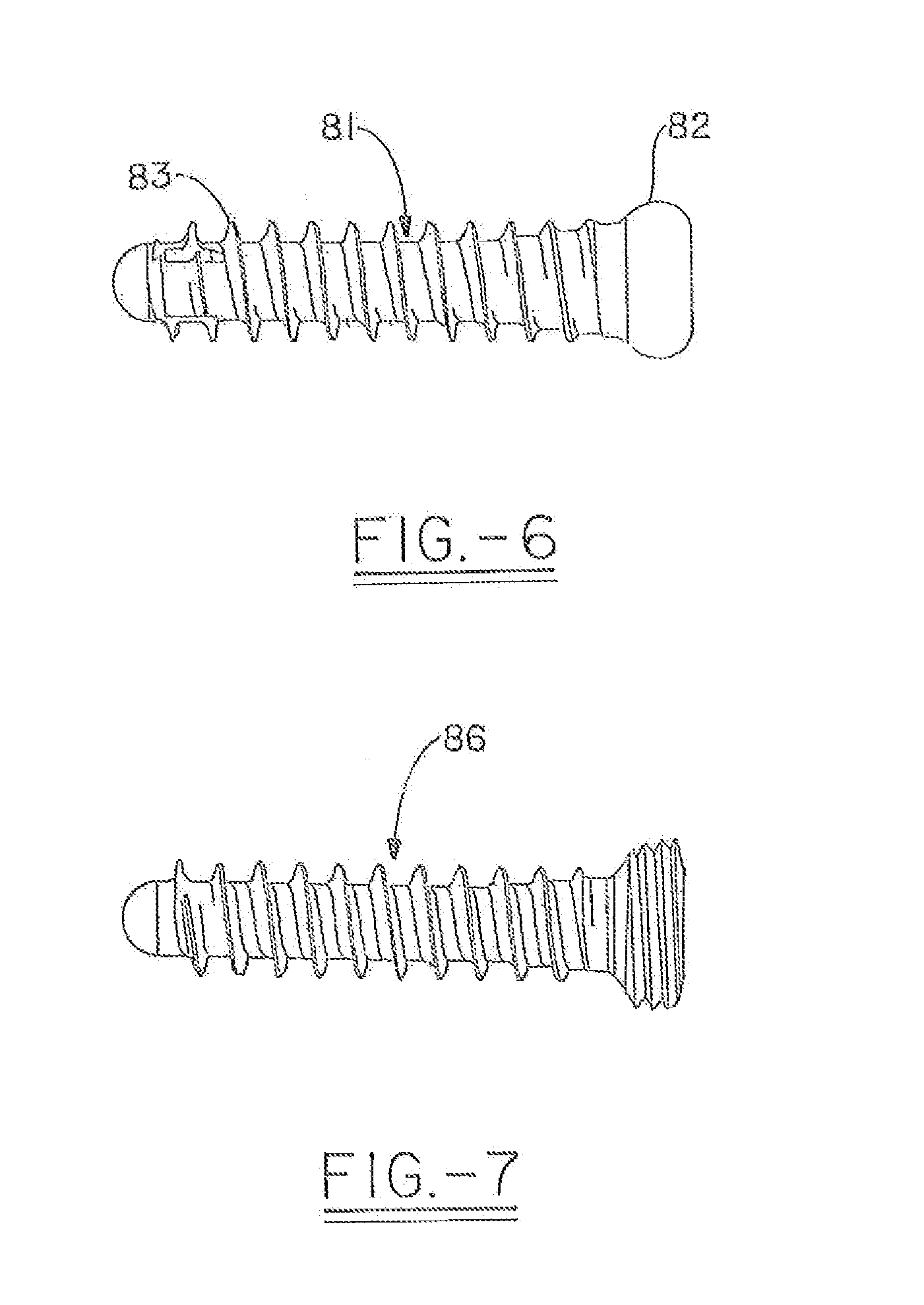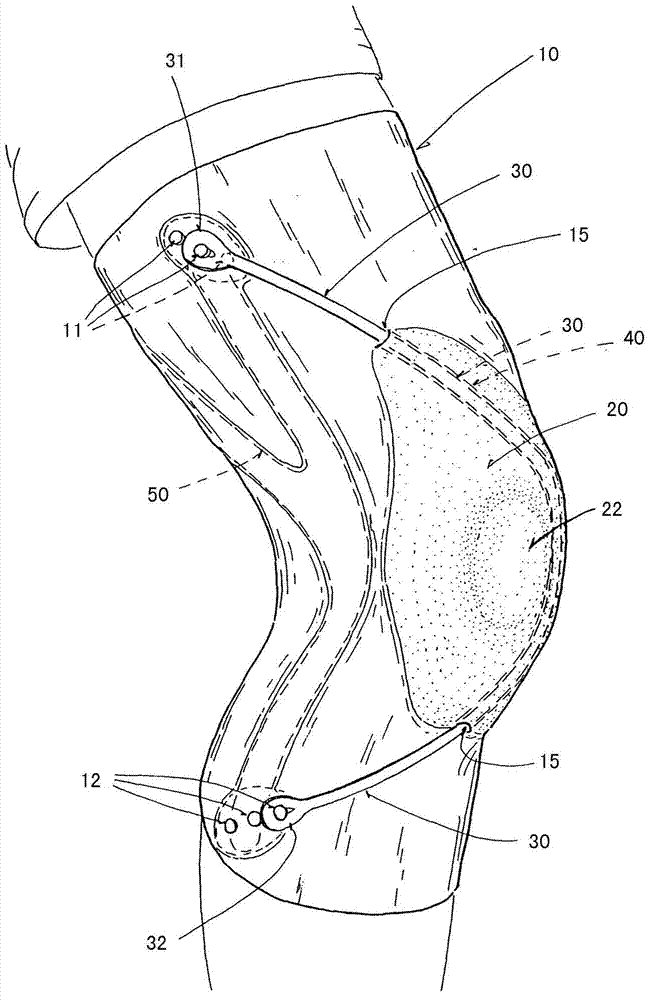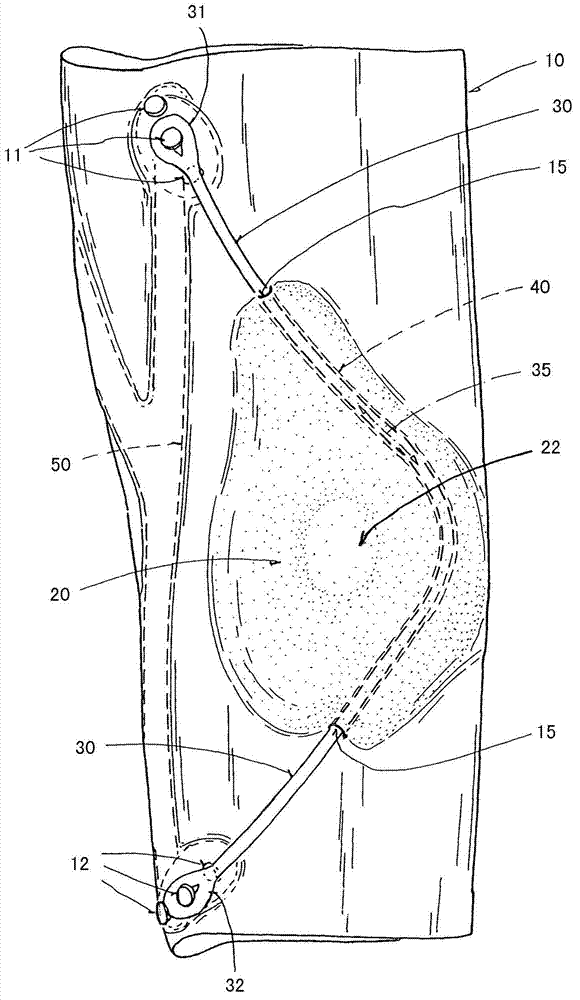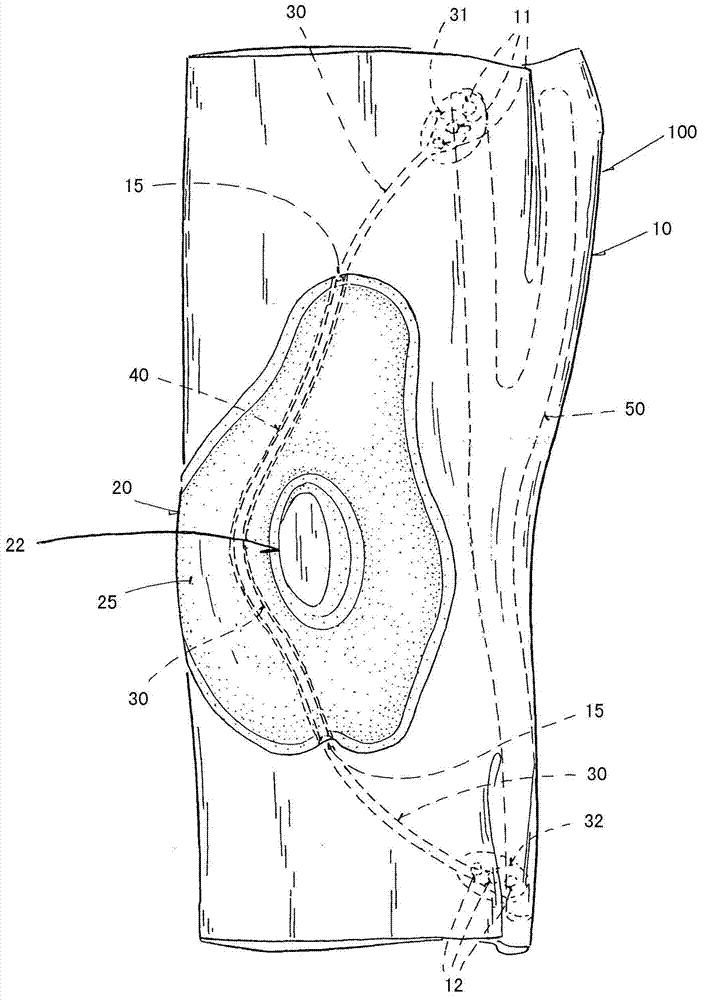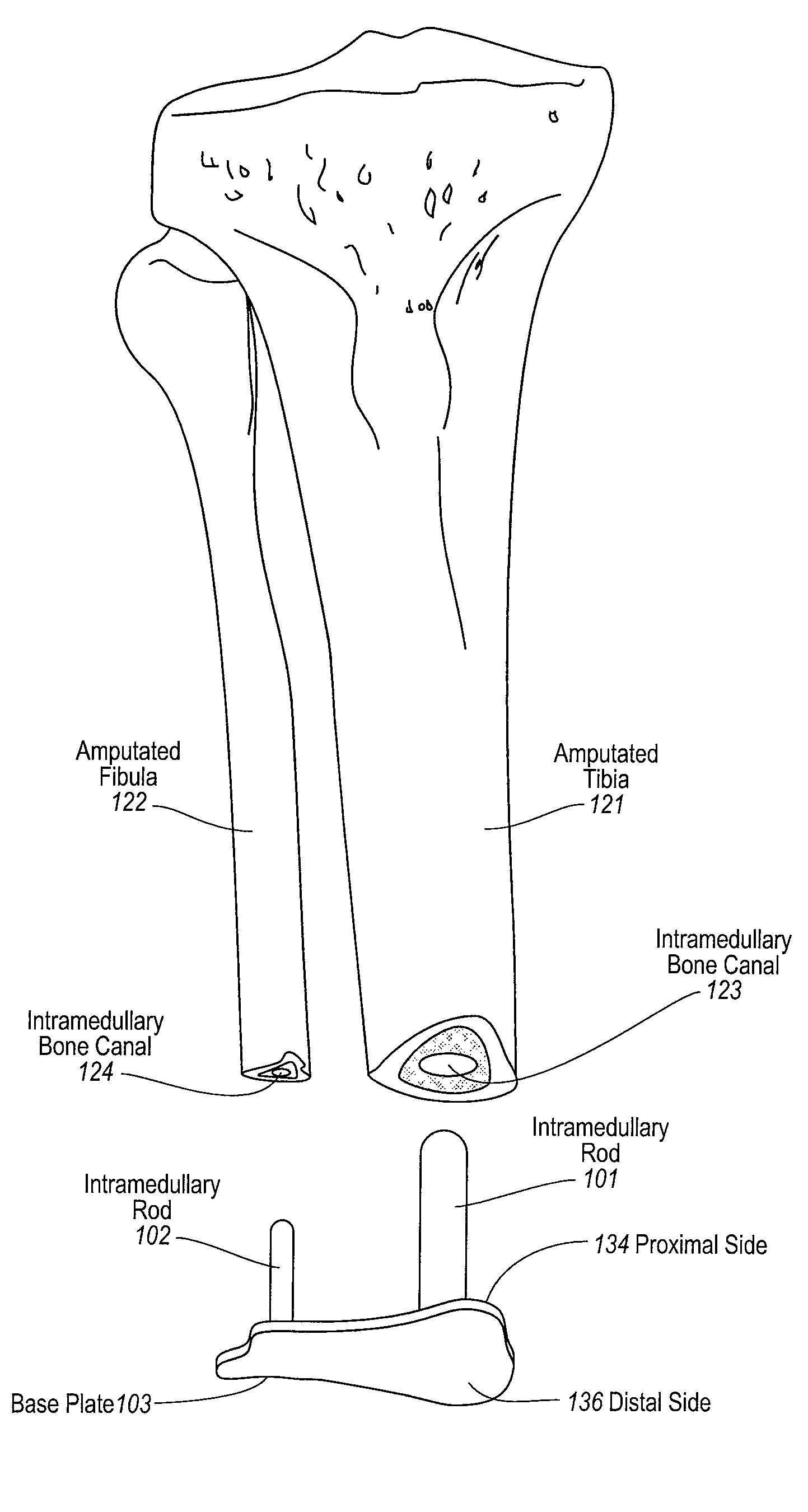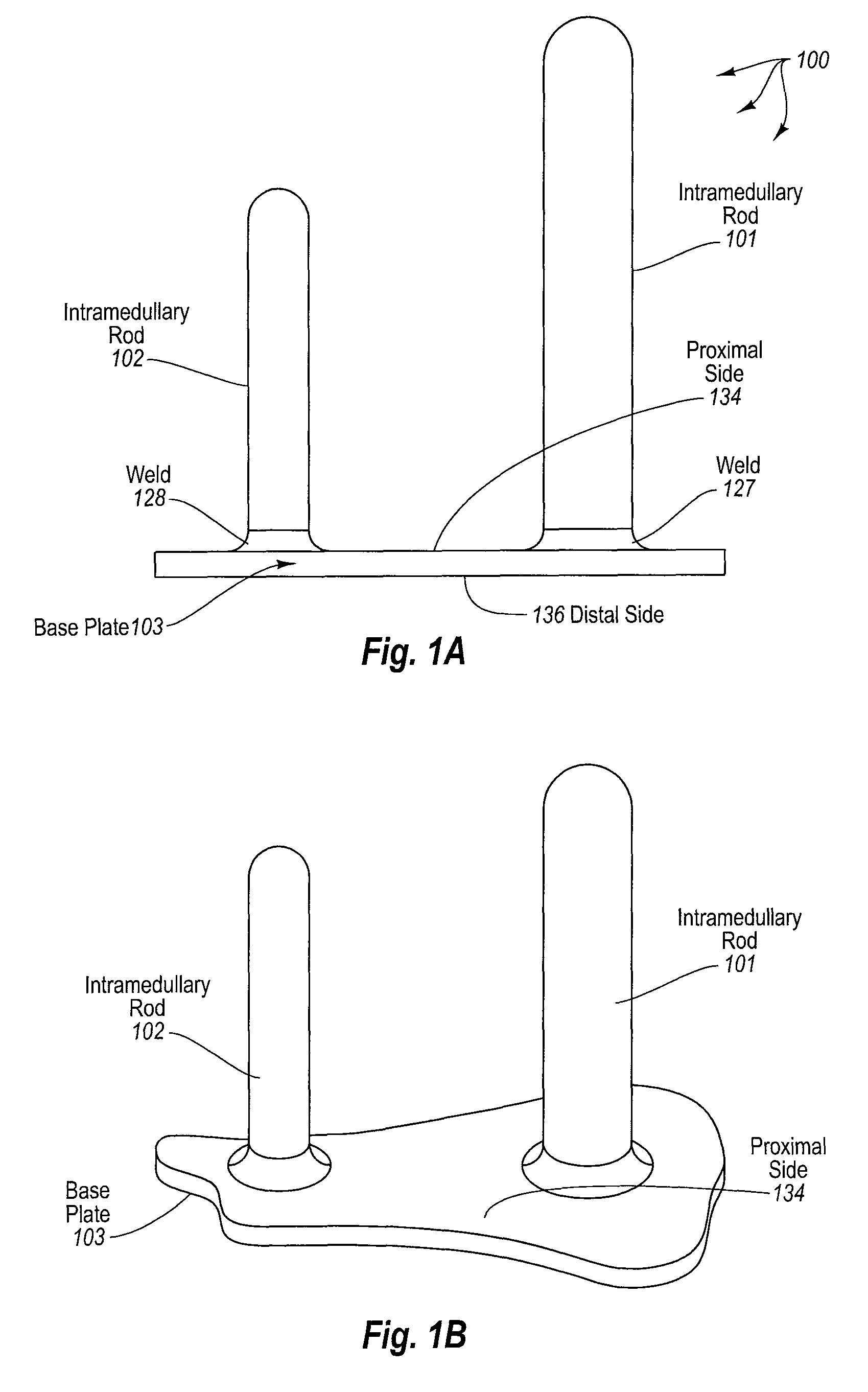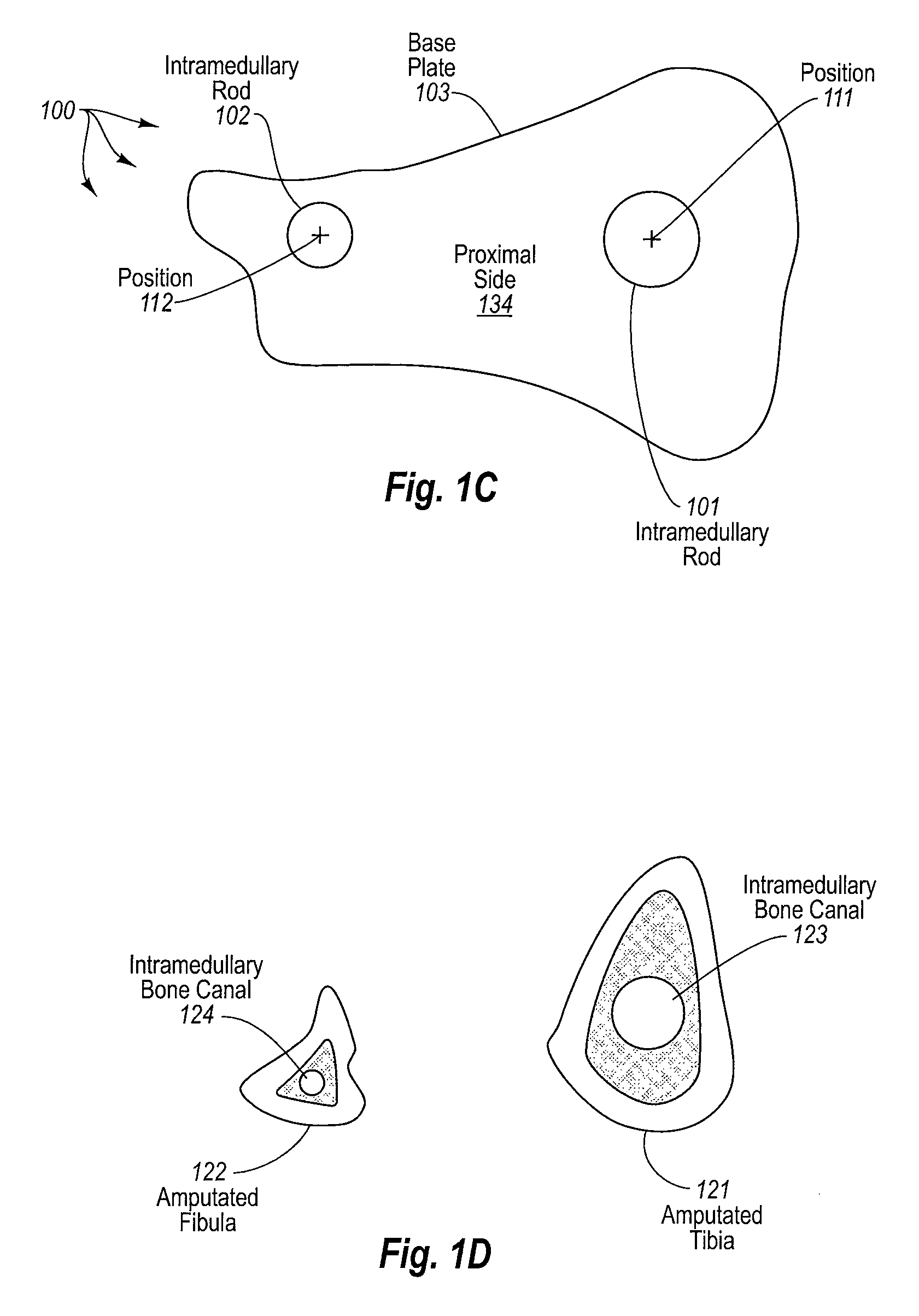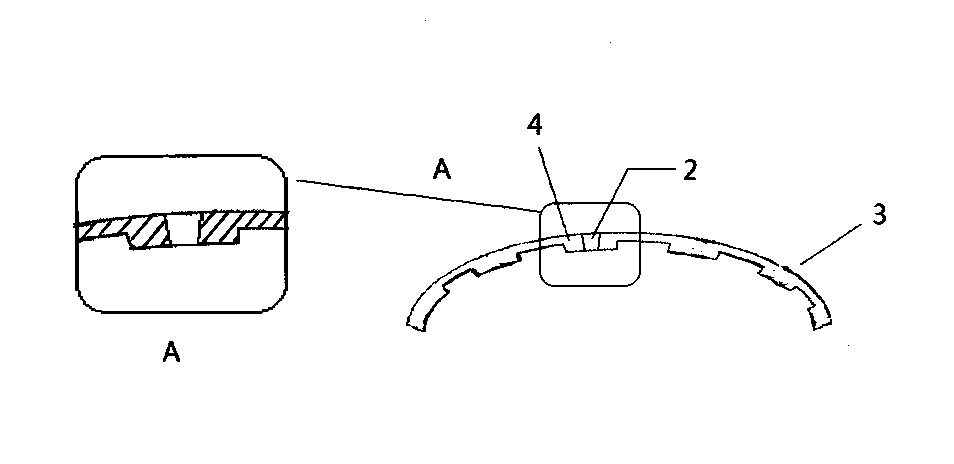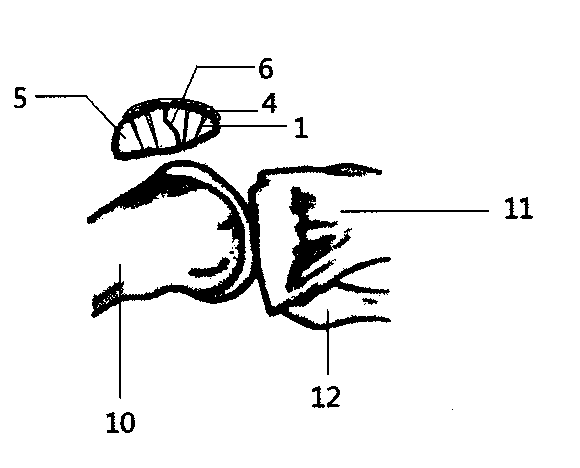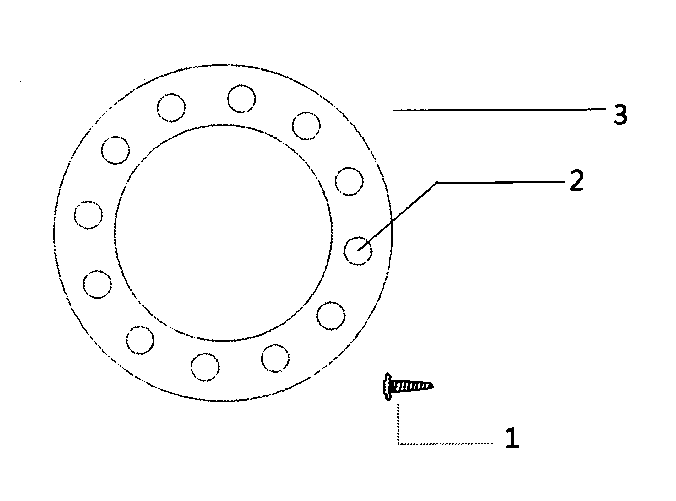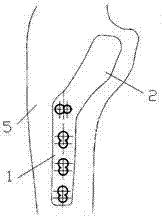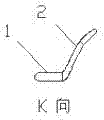Patents
Literature
65 results about "Right fibula" patented technology
Efficacy Topic
Property
Owner
Technical Advancement
Application Domain
Technology Topic
Technology Field Word
Patent Country/Region
Patent Type
Patent Status
Application Year
Inventor
The fibula or calf bone is a leg bone located on the lateral side of the tibia, with which it is connected above and below. It is the smaller of the two bones, and, in proportion to its length, the slenderest of all the long bones.
Adjustable suture-button construct for ankle syndesmosis repair
An adjustable, knotless button / loop construct for fixation of ankle syndesmosis tibio-fibular diastasis and an associated method of ankle repair using the same. The knotless construct comprises a pair of buttons attached to a flexible, continuous, self-cinching, adjustable loop integrated with two splices that are interconnected. The knotless construct is passed through fibular and tibia tunnels and the buttons are secured on the cortical surfaces of tibia and fibula. One of the buttons (for example, an oblong button) is secured on the medial side of the tibia by passing the button and the flexible, adjustable loop though the fibular and tibia tunnels and then flipping and seating the button outside the tibia. The length of the flexible adjustable loop is adjusted so that the second button (for example, a round button) is appropriately secured on the lateral fibula.
Owner:ARTHREX
Adjustable suture-button construct for ankle syndesmosis repair
An adjustable, knotless button / loop construct for fixation of ankle syndesmosis tibio-fibular diastasis and an associated method of ankle repair using the same. The knotless construct comprises a pair of buttons attached to a flexible, continuous, self-cinching, adjustable loop integrated with two splices that are interconnected. The knotless construct is passed through fibular and tibia tunnels and the buttons are secured on the cortical surfaces of tibia and fibula. One of the buttons (for example, an oblong button) is secured on the medial side of the tibia by passing the button and the flexible, adjustable loop though the fibular and tibia tunnels and then flipping and seating the button outside the tibia. The length of the flexible adjustable loop is adjusted so that the second button (for example, a round button) is appropriately secured on the lateral fibula.
Owner:ARTHREX
Modular total ankle prosthesis apparatuses and methods
Ankle implant systems and methods are provided that can allow a surgeon to select the type of prosthesis desired during an ankle surgical operation. The surgeon can implant a set of standardized fixation components into the tibia and / or fibula bones and the talus bone. Once implanted, the surgeon can select a bearing component from a number of bearing components that allow for different size patients, but also modify the manner in which the prosthesis functions (either semiconstrained or unconstrained). In one embodiment, an ankle implant can include a talar component having a lower surface with a bone fixation portion for fixation to a talus bone. A tibial component has an upper surface with a bone fixation portion for fixation of the tibial component to a tibia bone and / or a fibula bone, and the tibial component also has a lower surface with at least one protrusion extending from the lower surface. A bearing component is included between the tibial and talar components and has a lower surface for cooperative engagement with an upper surface of the talar component. The protrusion of the tibial component is adapted to engage a recess of the bearing component to desirably limit rotational and translational movement of the tibial component relative to the bearing component.
Owner:SMITH & NEPHEW INC
Method of positioning a malleolar implant for partial or total ankle prosthesis
InactiveUS6824567B2Efficient effortPrecise positioningWrist jointsAnkle jointsBiomedical engineeringProsthetic knee
Owner:SMITH & NEPHEW INC
Systems and methods for using polyaxial plates
Certain embodiments of the invention provide plates for treating periarticular fractures or other non-full body weight bearing applications that combine polyaxial fixation with a low profile and enhanced contouring that more closely conforms to bone. Such plates can be designed to achieve buttressing effect and / or to be used in a reinforcement mode. Other features can be combined with these. Such plates can be created for use on bone sites such as on a tibia, fibula, metatarsal, calcaneous, other foot bone, humerus, radius, ulna, spinal, maxillofacial, as well as sites on other bones.
Owner:SMITH & NEPHEW INC
Malleolar implant for partial or total ankle prosthesis
InactiveUS6488712B1Efficient effortPrecise positioningWrist jointsAnkle jointsBiomedical engineeringProsthetic knee
A malleolar implant for partial or total ankle prosthesis which includes a head having a surface to bear against an astragalus or astragalian prosthetic component and from which head extends a shank adapted to be inserted through a bore in a fibula wherein the shank is provided with means for hooking a traction member which is adapted to be inserted through the bore in the fibula in order to apply a force to pull the implant into the bore such that the implant is seated within the bore of the fibula.
Owner:SMITH & NEPHEW INC
Bone fixation device and method of use thereof
InactiveUS20090198287A1Promote healingImprove fatigue resistanceSuture equipmentsDiagnosticsTibiaProximate
A device for flexibly connecting bones, and a method of using the device for repairing a syndesmotic joint of an ankle are disclosed. The connector has, spaced sequentially, a first portion, a central portion and a second portion, and the portions define a longitudinally extending axis. The method comprises securing the first portion of the connector to a tibia of a patient proximate the syndesmotic joint, securing the second portion of the connector to a fibula of the patient proximate the syndesmotic joint, and, positioning at least a portion of the central portion having increased flexibility in the syndesmotic space.
Owner:SCHEMITSCH +1
Joint replacement methods and apparatus
Apparatus and surgical techniques provide alternative cutting fixtures and other features to improve bone resection accuracy and joint stability. According to one embodiment, stabilizers are removably attached to a cutting guide to temporarily lengthen the surface against which a saw or other cutting device rests. Another embodiment provides differently shaped saw blades, having curved distal ends and right-angle bends applicable to box cuts of the type associated with cruciate sacrifice knee-replacement surgery. Methods are also disclosed whereby the box cuts, distal and posterior augment cuts may be approached from a distal perspective, both laterally and medially. A different embodiment provides a trial / cutting guide having flat surfaces as opposed to curved surfaces adapted for articulation within a joint. Yet a further alternative embodiment teaches a device for determining the joint line relative to a tibia using the fibula as reference.
Owner:MEDIDEA
Orthopedic plate for use in fibula repair
ActiveUS8118848B2Increased pull-out strengthRoom for improvementJoint implantsBone platesEngineeringIliac screw
The present invention relates to an orthopedic plate for use in repair of a fibula. The plate has a Y-shaped profile which has the contour of a spoon where the bowl includes a terminal pair of arms that form differing angles and lengths relative to the trunk portion of the plate. The arms include locking screw holes where the screws converge toward each other, but do not impinge so as to provide-multiplanar fixation.
Owner:WRIGHT MEDICAL TECH
Joint replacement methods and apparatus
Apparatus and surgical techniques provide alternative cutting fixtures and other features to improve bone resection accuracy and joint stability. According to one embodiment, stabilizers are removably attached to a cutting guide to temporarily lengthen the surface against which a saw or other cutting device rests. Another embodiment provides differently shaped saw blades, having curved distal ends and right-angle bends applicable to box cuts of the type associated with cruciate sacrifice knee-replacement surgery. Methods are also disclosed whereby the box cuts, distal and posterior augment cuts may be approached from a distal perspective, both laterally and medially. A different embodiment provides a trial / cutting guide having flat surfaces as opposed to curved surfaces adapted for articulation within a joint. Yet a further alternative embodiment teaches a device for determining the joint line relative to a tibia using the fibula as reference.
Owner:MASINI MICHAEL A
Knee protector
ActiveUS7114189B1Improve protectionProtective garmentPhysical medicine and rehabilitationKnee protector
A knee protector includes a plurality of pads positioned to cover a patella, a lower portion of the distal femur, the femoral condyles, the upper end of the fibula and an upper end of the proximal tibia with spacings between said pads to accommodate the flexion and extension of the knee when in use from a standing to a squatting position by a wearer.
Owner:HILLERICH & BRADSBY
Calcaneal plate
The present invention is a fully contoured calcaneal plate having substantially no planar surfaces except at the origin. The contoured plate includes radiused sections, one extending inferior to superior is curved inferior to superior in a shape which is close to cylindrical and which approximates the shape of the cuboid bone. The second radiused section is curved in the vicinity of the anterior strut, and in particular at the inferior portion of the plate, to accommodate the peroneal tubercle. The plate has a rectangular or modified ovoid body section and a dog boned shaped tail with triangular placed holes for fixation.
Owner:ORTHOHELIX SURGICAL DESIGNS
Osteosynthesis plate for distal fibula / lateral malleoulus
An osteosynthesis plate suitable for the fixation of fractures of the distal fibula / lateral malleolus includes a twisted distal portion and a proximal portion with a constant orientation that is perfectly congruent with the actual geometry of the distal fibula and it can be positioned with a rear orientation in the distal region. An osteosynthesis plate according to the invention favours, among other things, the restoration of the length and bone rotation and the peroneal-talar joint congruence, decreases tissue sufferance and facilitates the positioning of syndesmosis screws.
Owner:RAGGHIANTI UMBERTO
Knee joint bandage
ActiveUS20100036303A1Increase heightCounteracts liftFeet bandagesNon-surgical orthopedic devicesKnee JointEngineering
A knee joint bandage made of elastic textile material having a profiled insert encompassing the kneecap in a recess, the insert being covered by an overlay fastened to the textile material. Within the profile insert is a flexible, non-expandable tensioning member for connecting the regions of the kneecap poles on the fibula side in an arc around the kneecap wherein the distance between these regions increases during bending of the knee joint, the distance of the arc from the connecting line of the knee poles in decreased, and the tensioning member presses on the adjacent side of the kneecap, displacing the same medially and centering it. The bandage is provided with a flexible tensioning band, which partially covers the kneecap in its peripheral area relative to the tensioning member, the tensioning band substantially extends in the direction between the kneecap poles such that it counteracts a lifting of the kneecap.
Owner:BAUERFEIND GMBH & CO
Orthopedic plate for use in fibula repair
ActiveUS20090312759A1Increased pull-out strengthRoom for improvementJoint implantsBone platesEngineeringIliac screw
The present invention relates to an orthopedic plate for use in repair of a fibula. The plate has a Y-shaped profile which has the contour of a spoon where the bowl includes a terminal pair of arms that form differing angles and lengths relative to the trunk portion of the plate. The arms include locking screw holes where the screws converge toward each other, but do not impinge so as to provide-multiplanar fixation.
Owner:WRIGHT MEDICAL TECH
Humanoid upper limb based on pneumatic muscle
InactiveCN107283413AAchieve movementHigh power/mass ratioProgramme-controlled manipulatorHuman useForearm muscle
The invention discloses a humanoid upper limb based on pneumatic muscle. The pneumatic muscle simulates human muscle for driving a shoulder joint, an elbow joint and a wrist joint to move, and the function of completely simulating the motion of the upper limb of a person is achieved. The humanoid upper limb is composed of a rib, a vertebra, a shoulder blade, a humerus, a fibula, an ulna, a spherical hinge, the pneumatic muscle and a pneumatic muscle fixing plate; the pneumatic muscle of a humanoid upper limb girdle muscle drives the shoulder joint to retract and stretch, bend and extend, inwards rotate and outwards rotate; arm muscle drives the elbow joint to bend and extend, inwards rotate and outwards rotate, and meanwhile the arm muscle and the upper limb girdle muscle cooperatively drive the shoulder joint to inwards retract, outwards stretch, inwards rotate and outwards rotate; and forearm muscle drives the wrist joint to bend and extend and retract and stretch and drives the elbow joint to bend and extend, inwards rotate and outwards rotate. The humanoid upper limb is driven by the pneumatic muscle, has the beneficial effects of being compact in structure, clean and good in anti-explosion performance, and can be used for teaching demonstration, medicinal diagnosis and scientific research.
Owner:JIAXING UNIV
Device and method for preparing fibula near-end bone tumor focus removing guider
InactiveCN105105833AImprove surgical precisionReduce surgical riskSurgerySurgical riskComputed tomography
The invention relates to a fibula near-end bone tumor focus removing guider and a preparation method thereof. The fibula near-end bone tumor focus removing guider comprises a patient CT (Computed Tomography) scanning film, a bone reconstruction device, a guider construction device and a 3D (Three-dimensional) printer, wherein a CT scanning film reading port is formed in the input end of the bone reconstruction device; the patient CT scanning film is arranged in the CT scanning film reading port; a CT scanning film data analysis module is arranged in the bone reconstruction device; the output end of the CT scanning film data analysis module is connected with the input end of the guider construction device; the output end of the guider construction device is connected with the input end of the 3D printer. By directly utilizing a digital visualization bone tumor focus guider 3D printing working platform designed in the invention, a clinician inputs the CT data information of a surgical patient, a guider can be designed and prepared, the surgical accuracy is greatly improved, and the surgical risk is reduced.
Owner:武汉市普仁医院
Fibula cutting shaping positioner through 3D printing
The invention provides a fibula cutting shaping positioner through 3D printing. The fibula cutting shaping positioner comprises a bone-cutting guide plate and two positioning buckles, the bone-cutting guide plate is provided with a long-slot-shaped curved surface cavity fitted with a bone surface of a portion, planned for bone cutting, of a fibula, and the positioning buckles are connected to positions connected with two ends of the portion in a buckled manner and connected with two ends of the bone-cutting guide plate. By adopting the fibula cutting shaping positioner, the bone-cutting guide plate and the fibula can be in place accurately, twisting or sliding of the bone-cutting guide plate on the fibula can be avoided, the fibula is ensured to be subjected to bone-cutting shaping according to a preset design scheme, operating effect is accurate, operation is simple and convenient, requirements on experience of operators are low, and operating errors caused by the operators through operation based on sensation are completely eradicated.
Owner:SUN YAT SEN MEMORIAL HOSPITAL SUN YAT SEN UNIV +2
Additive-manufactured guiding positioning assembly for jawbone tumor resection and reconstruction
ActiveCN105852931ALow experience requirementEliminate surgical operation errorsDental implantsInstruments for stereotaxic surgerySurgical ManipulationSurgical operation
The invention provides an additive-manufactured guiding positioning assembly for jawbone tumor resection and reconstruction. The additive-manufactured guiding positioning assembly sequentially comprises a first guiding positioner, a second guiding positioner and a third guiding positioner according to the jawbone tumor resection and reconstruction operation process; the first guiding positioner is fixed to the fibula and assists in fibular osteotomy shaping; the second guiding positioner is fixed to the sclerotin parts of the front side and the back side of a jawbone tumor and assists in jawbone tumor resection; the third guiding positioner is connected with the osteotomy part of the fibula and connected between the sclerotin parts of the front side and the back side of the position where the jawbone tumor is resected and assists in jawbone reconstruction by taking the osteotomy part of the fibula as grafted bone. By means of the additive-manufactured guiding positioning assembly, operations such as fibular osteotomy, jawbone tumor resection and jawbone reconstruction can be guided to be accurately implemented, operation is easy and convenient, the experience requirements for an operator are low, and the problem of surgical operation errors caused due to the fact that the operator operates by feel can be completely eradicated.
Owner:SUN YAT SEN MEMORIAL HOSPITAL SUN YAT SEN UNIV +2
Osteotomy below the tibial tuberosity by multiple drilling
ActiveUS20150071885A1Conducted efficiently and accuratelyRegeneration of the bone in a relatively short time periodBiocideMammal material medical ingredientsMedicineKnee Joint
Surgical devices, kits and methods of using thereof are described. Generally, the surgical kit includes an osteotomy guide device and / or a bone spacer guide device. The surgical kit can be used in a surgical method for correcting a malalignment of the knee joint that involves performing a fibular osteotomy and / or a tibial osteotomy, and / or administering stem cells. Generally, the osteotomy guide device is configured to allow drilling to occur around the tibia and across a horizontal cross-sectional plane of the tibia so that a direction of each of the drill holes that are formed in the tibia is substantially parallel to or on the same horizontal cross-sectional plane of the tibia. The osteotomy guide device allows drilling to be conducted efficiently and accurately.
Owner:JEE CAROLINE SIEW YOKE +2
Amputation stabilization device
The present invention extends to a stemmed amputation implant. In some embodiments, a dual stemmed implant includes a base plate and two intramedullary rods extending from the proximal side of the base plate. The two intramedullary rods are configured for insertion into corresponding intramedullary bone canals reamed into remaining portions of amputated bones, such as, for example, a tibia and fibula or an ulna and radius. The position of the intramedullary rods relative to one another is configured to maintain appropriate separation between amputated bones when the first intramedullary rod and the second intramedullary rod are inserted into the amputated bones. In some embodiments, a hollow tube replaces one or more of the intramedullary rods. A hollow tube can be configured to cover the exterior of a bone, such as, for example, the fibula, when the bone is not stable enough for intramedullary fixation.
Owner:PARSELL DOUGLAS ERIC
Fibula positioning and shaping assisting plastic device and manufacturing method thereof
InactiveCN103961165ASimple structureEasy to operateComputer-aided surgeryEngineeringMechanical engineering
A manufacturing method of a fibula positioning and shaping assisting device comprises the steps that a jaw surface bone model and a fibula model are reconstructed; the parts in need of cutting and cutting paths are determined; cutting is simulated to find out a most suitable backup fibula section model; positioning and shaping guide plate models are obtained; a model of the fibula positioning and shaping assisting device is obtained and the fibula positioning and shaping assisting device is manufactured. The fibula positioning and shaping assisting device manufactured through the manufacturing method of the fibula positioning and shaping assisting device is formed by connecting a plurality of positioning and shaping guide plates, the inner surface of each positioning and shaping guide plate is completely attached with the outer surface of a corresponding fibula section, and a track formed by fixing the adjacent positioning and shaping guide plates end to end according to the break angle is uniform with the installation track of the set fibula on the maxillofacial skeleton. By means of the fibula positioning and shaping assisting device, the cut fibular can be accurately installed into the jaw surface bone according to the ideal operative plan, and the operation effect is guaranteed.
Owner:ZHEJIANG UNIV OF TECH
Method and apparatus for anterior and posterior mobilization of the human ankle
An apparatus for anterior and posterior mobilization of the human talocrural joints for rehabilitation and / or therapeutic utilization. A patient's foot is secured in an apparatus and an Ankle Mortise Strap is looped around the mortise of an ankle of the foot. A force strap is attached to the ends of the Ankle Ankle Mortise Strap. Anterior mobilization is achieved by moving the force strap ventrally from the foot so that the foot including the talus remains stationary while the tibia and fibula glide anteriorly. Posterior mobilizations are achieved by securing the foot, and looping an Ankle Mortise Strap around the front of the ankle. A force strap is attached to the ends of the Ankle Mortise Strap. Posterior mobilization is achieved by moving the force strap dorsally from the foot so that the foot including the talus remains stationary while the tibia and fibula glide posteriorly.
Owner:NUSHART MICHAEL J
Internal fixer of hook plate for treating distal tibiofibula separation
InactiveCN1390525AConvenient treatmentReasonable designOsteosynthesis devicesTibiaArticular fracture
An internal fixer of hook plate for treating distal tibiofibula separation caused by condylar fracture is composed of a fibula fixing plate with several fibula fixing holes and arc part matched with the fibula, and the tibiofibula pull-hook unit consisting of main body, pull hooks for fibula and tibia fixing holes.
Owner:王静成 +2
Method and apparatus for anterior and posterior mobilization of the human ankle
InactiveUS20060058719A1Easy to transportRelieve painChiropractic devicesNon-surgical orthopedic devicesAnkle MortiseTibia
An apparatus for anterior and posterior mobilization of the human talocrural joints for rehabilitation and / or therapeutic utilization. A patient's foot is secured in an apparatus and an Ankle Mortise Strap is looped around the mortise of an ankle of the foot A force strap is attached to the ends of the Ankle Mortise Strap. Anterior mobilization is achieved by moving the force strap ventrally from the foot so that the foot including the talus remains stationary while the tibia and fibula glide anteriorly. Posterior mobilizations are achieved by securing the foot, and looping an Ankle Mortise Strap around the front of the ankle. A force strap is attached to the ends of the Ankle Mortise Strap. Posterior mobilization is achieved by moving the force strap dorsally from the foot so that the foot including the talus remains stationary while the tibia and fibula glide posteriorly.
Owner:NUSHART MICHAEL J
Orthopedic plate for use in fibula repair
InactiveUS20120109215A1Increased pull-out strengthRoom for improvementBone platesEngineeringIliac screw
Owner:ORTHOHELIX SURGICAL DESIGNS
Improved knee bandage having a corrective strap
InactiveCN103079501AAdjust effective lengthEasy to adjustFeet bandagesNon-surgical orthopedic devicesPhysical medicine and rehabilitationBandage
The invention relates to a bandage for a knee joint, comprising an elastic textile hose, a ring- or strap-shaped elastic profiled insert, which is arranged in or on the textile hose for encompassing at least the lateral (fibula-side) section of the patella of the knee joint, and at least one flexible tension band, which extends over the knee joint substantially in the longitudinal direction of the bandage and which is not extendible.
Owner:BAUERFEIND GMBH & CO
Amputation stabilization device
The present invention extends to a stemmed amputation implant. In some embodiments, a dual stemmed implant includes a base plate and two intramedullary rods extending from the proximal side of the base plate. The two intramedullary rods are configured for insertion into corresponding intramedullary bone canals reamed into remaining portions of amputated bones, such as, for example, a tibia and fibula or an ulna and radius. The position of the intramedullary rods relative to one another is configured to maintain appropriate separation between amputated bones when the first intramedullary rod and the second intramedullary rod are inserted into the amputated bones. In some embodiments, a hollow tube replaces one or more of the intramedullary rods. A hollow tube can be configured to cover the exterior of a bone, such as, for example, the fibula, when the bone is not stable enough for intramedullary fixation.
Owner:PARSELL DOUGLAS ERIC
Patellar fracture fixation splint
InactiveCN104173096AGood for functional exerciseReduce foreign body sensationInternal osteosythesisFunctional exercisesTibia
The invention provides a patellar fracture fixation splint, belongs to the medical treatment and public health technology, and relates to the field of the department of orthopaedics, in particular to a patellar fracture fixation technology. The patellar fracture fixation splint comprises connecting nails and is characterized in that the connecting nails adopts screws, and the screws penetrate through screw holes in an annular shaping steel plate belt surrounding fractured patella and are tightly screwed on the fractured patella fit according to a fracture line; the femur, the tibia and the fibula surround the patella; the annular shaping steel plate belt bends like the patella and has alternate concave-convex distribution thicknesses, and the holes allowing penetration of the screws are formed in convex parts. The patellar fracture fixation splint has the benefits that good mechanical stability is achieved, and functional exercise of a patient is facilitated; the integrity of the annular structure is high, and the splint is suitable for fracture fixation of multiple patellae and has a large application range; blood supply influence on the patella surface is reduced due to the alternate concave-convex design, growth and union are promoted, and foreign body sensation of the patient is reduced; and the splint is convenient to use and operate.
Owner:封启明 +2
Blade plate for posterolateral fractures of tibial plateau
The invention discloses a blade plate for posterolateral fractures of tibial plateau, which belongs to the technical field of orthopedic medical apparatuses and instruments, and is used for fixing posterolateral fractures of tibial plateau. The technical scheme of the invention is as follows: the blade plate is composed of a straight plate and a skew plate, wherein the straight plate and the skew plate are respectively an elongated plate, the skew plate is connected to the upper end of the straight plate, the plate surface of the skew plate obliquely extends to the obliquely upward side of the plate surface of the straight plate, the inclined angle of the plate surface of the skew plate is matched with the posterolateral curved surface of the upper tibia shin, and 2-4 fixed screw holes are uniformly distributed on the straight plate along the length of the straight plate. According to the invention, during operation, the blade plate is conveniently implanted through a conventional anterolateral operative incision which is small in damage and easy to operate, the straight plate is fixed on a tibia by a bolt, and the skew plate avoids important anatomical structures such as fibular heads, posterolateral complexes and anterior tibial arteries and the like which affect the reposition fixation of fractures, so that the possibility of causing damages is greatly reduced. According to the invention, a complex operation problem is solved in a simple and convenient mode, and no medical cost is increased, so that the blade plate benefits doctors and patients, therefore, the blade plate has an excellent promotion and application prospect.
Owner:王鹏程 +1
Features
- R&D
- Intellectual Property
- Life Sciences
- Materials
- Tech Scout
Why Patsnap Eureka
- Unparalleled Data Quality
- Higher Quality Content
- 60% Fewer Hallucinations
Social media
Patsnap Eureka Blog
Learn More Browse by: Latest US Patents, China's latest patents, Technical Efficacy Thesaurus, Application Domain, Technology Topic, Popular Technical Reports.
© 2025 PatSnap. All rights reserved.Legal|Privacy policy|Modern Slavery Act Transparency Statement|Sitemap|About US| Contact US: help@patsnap.com
